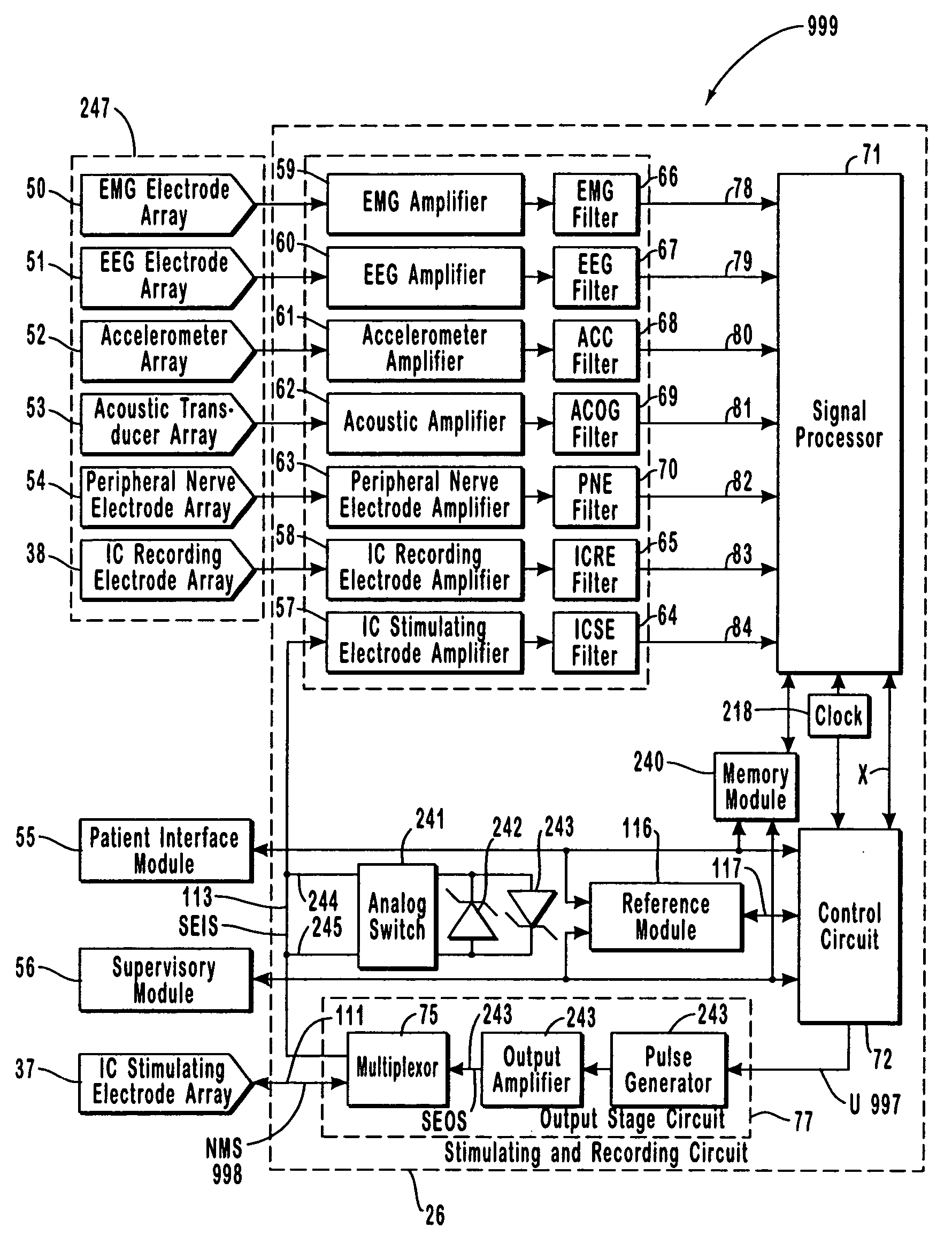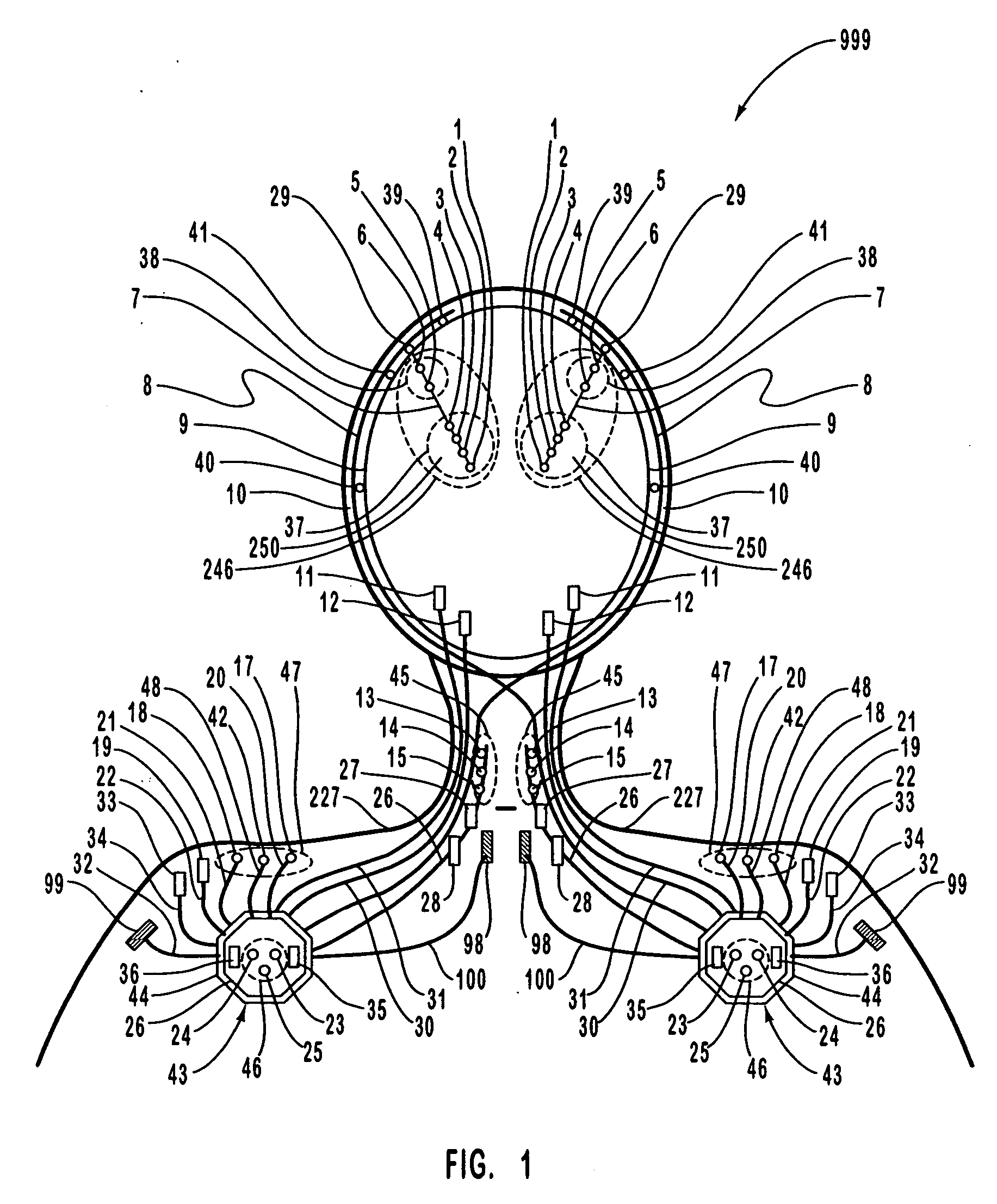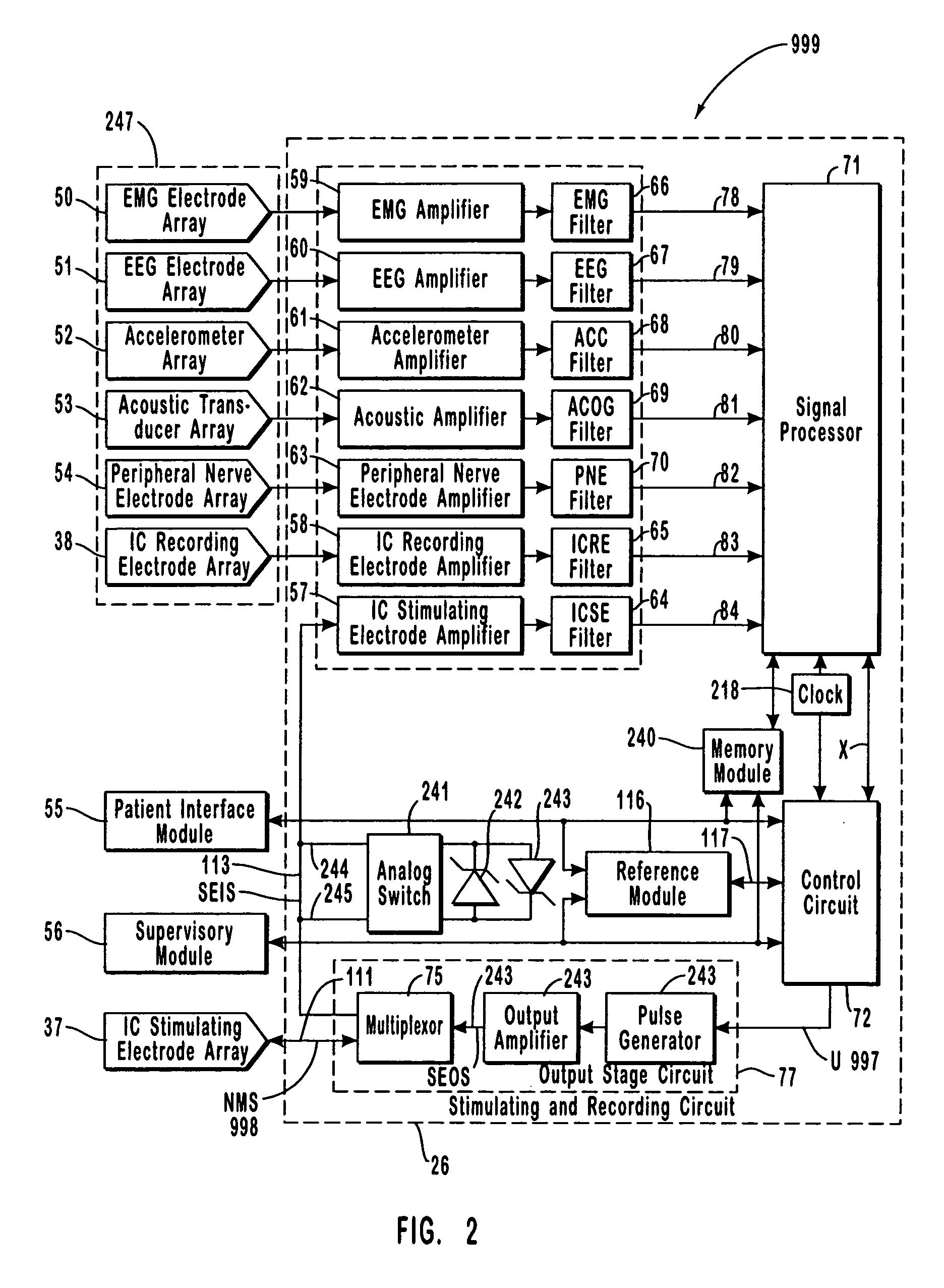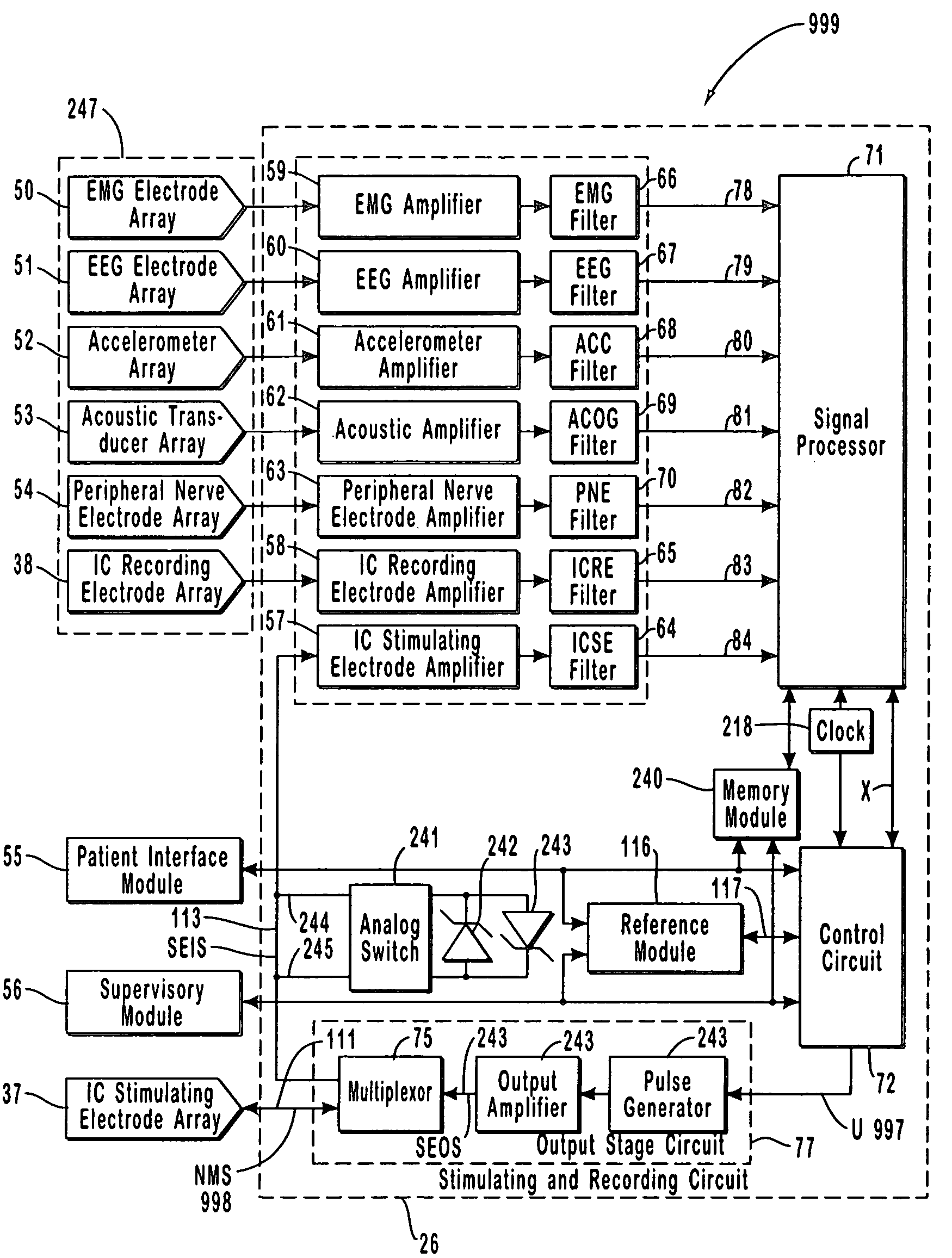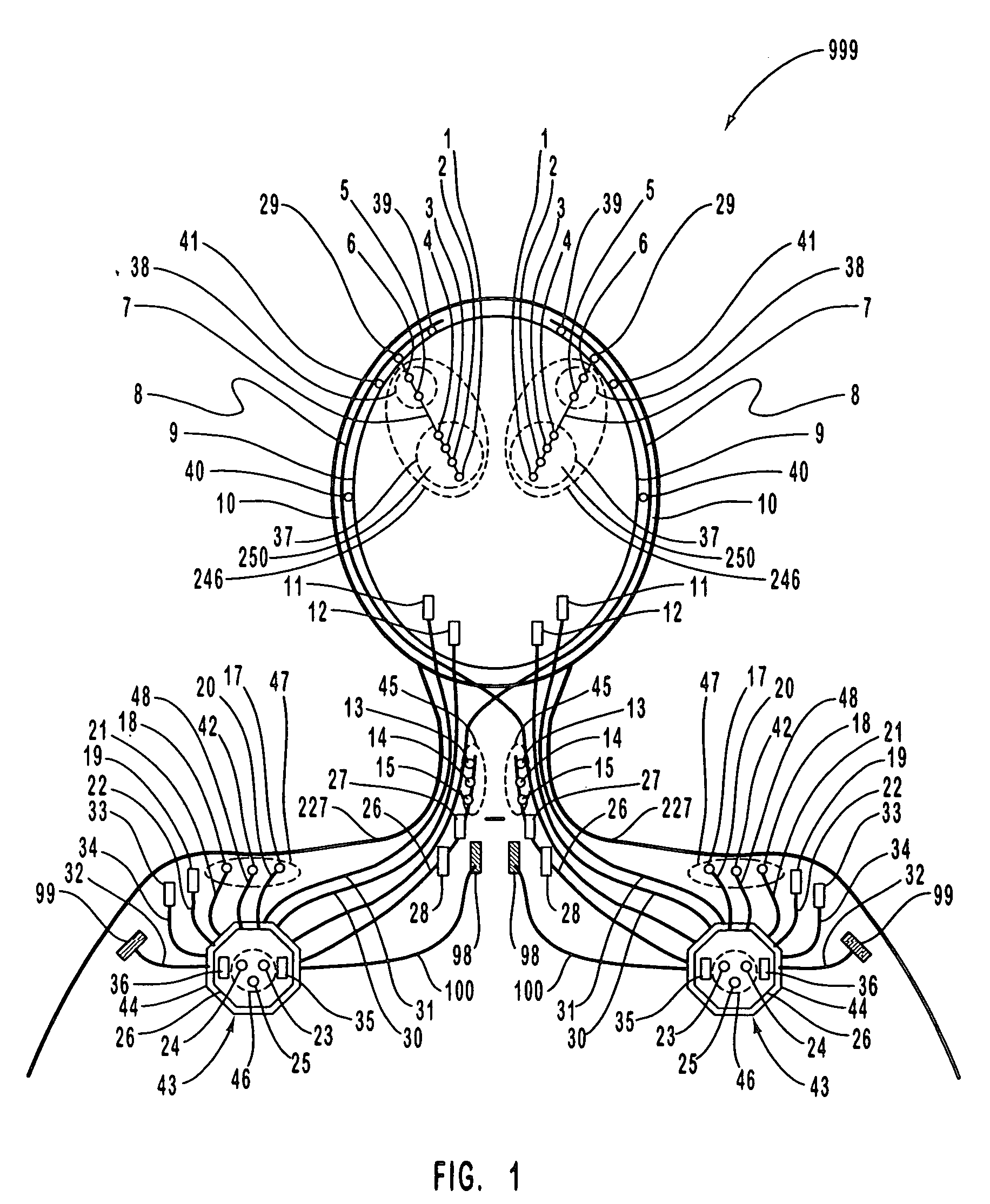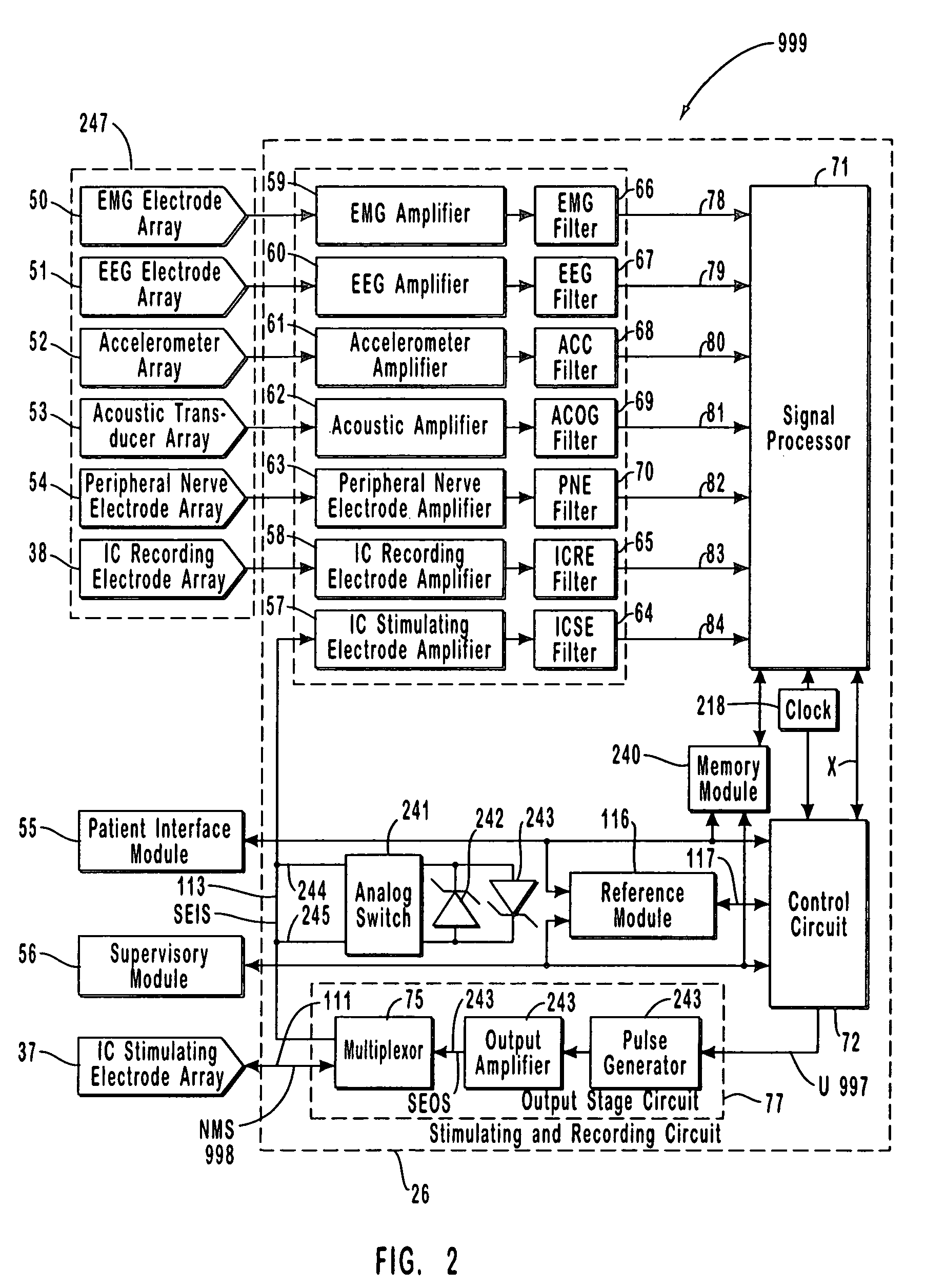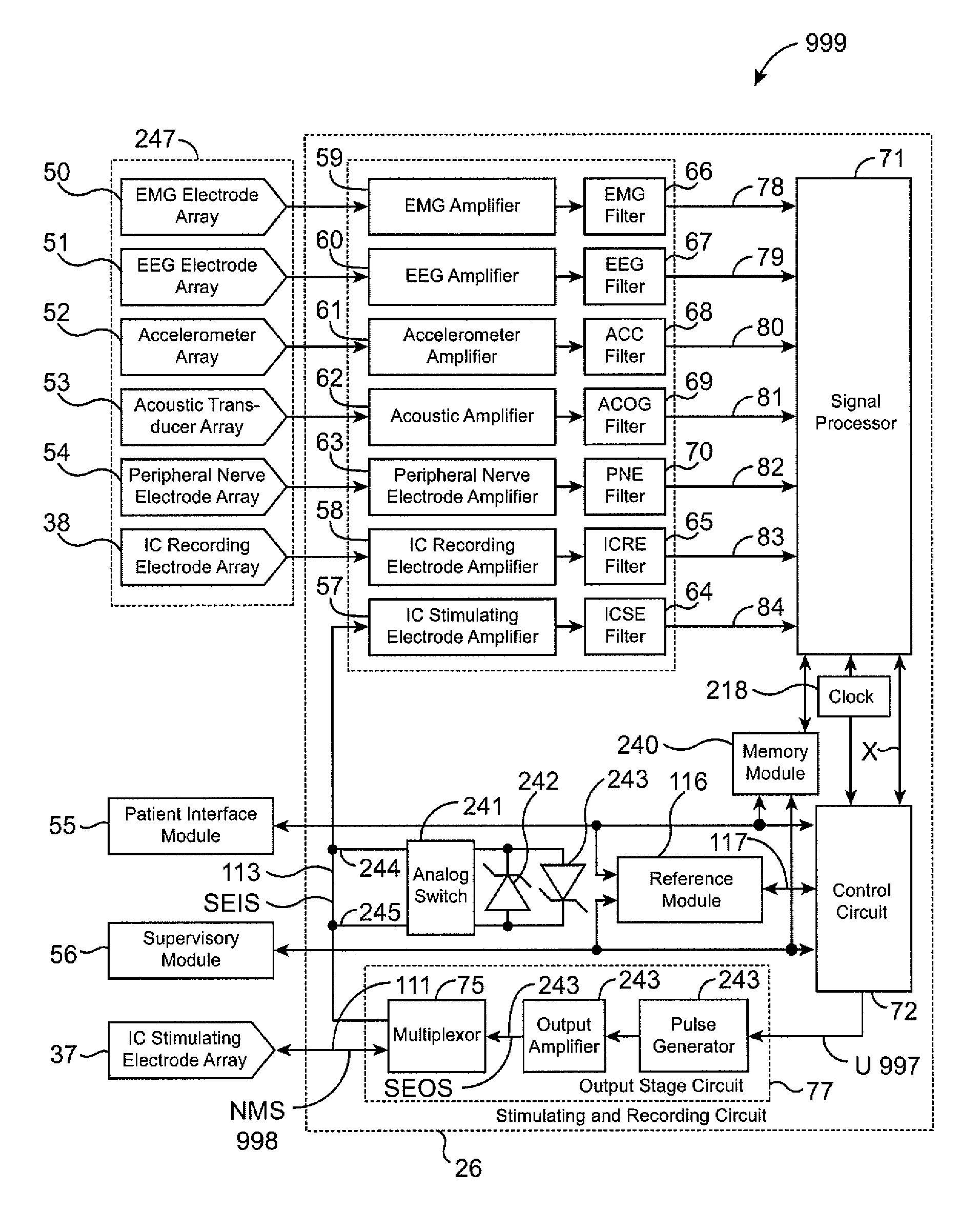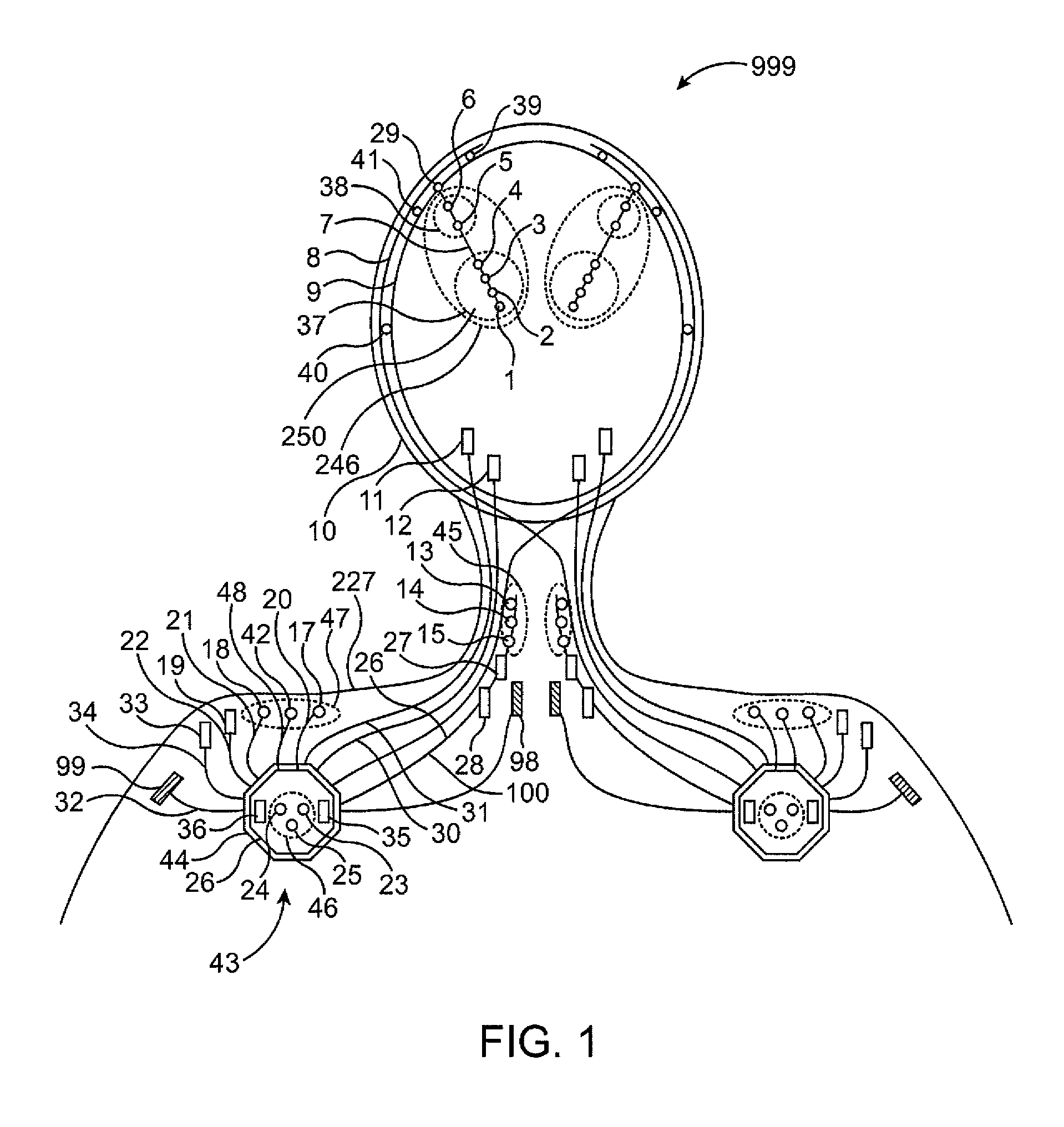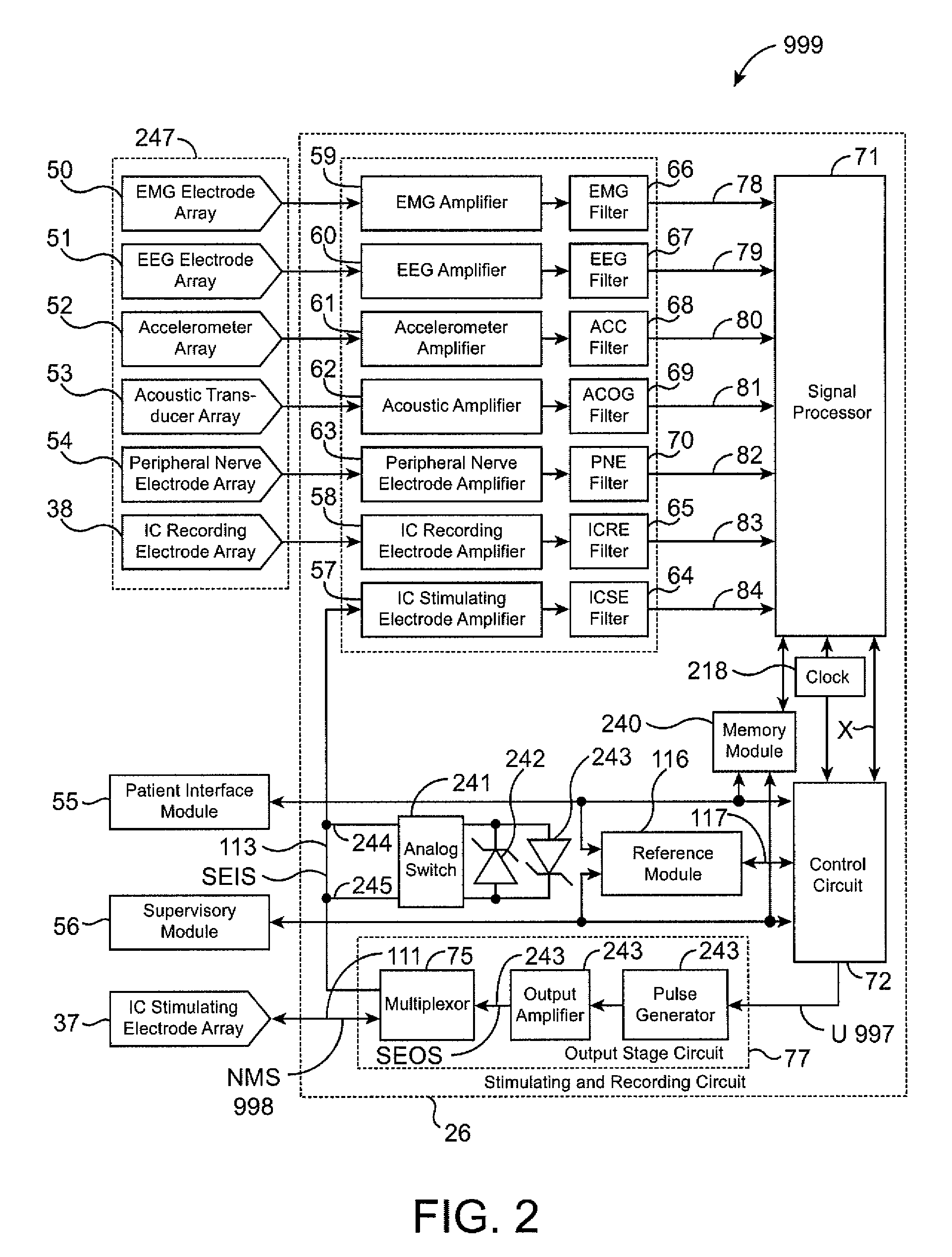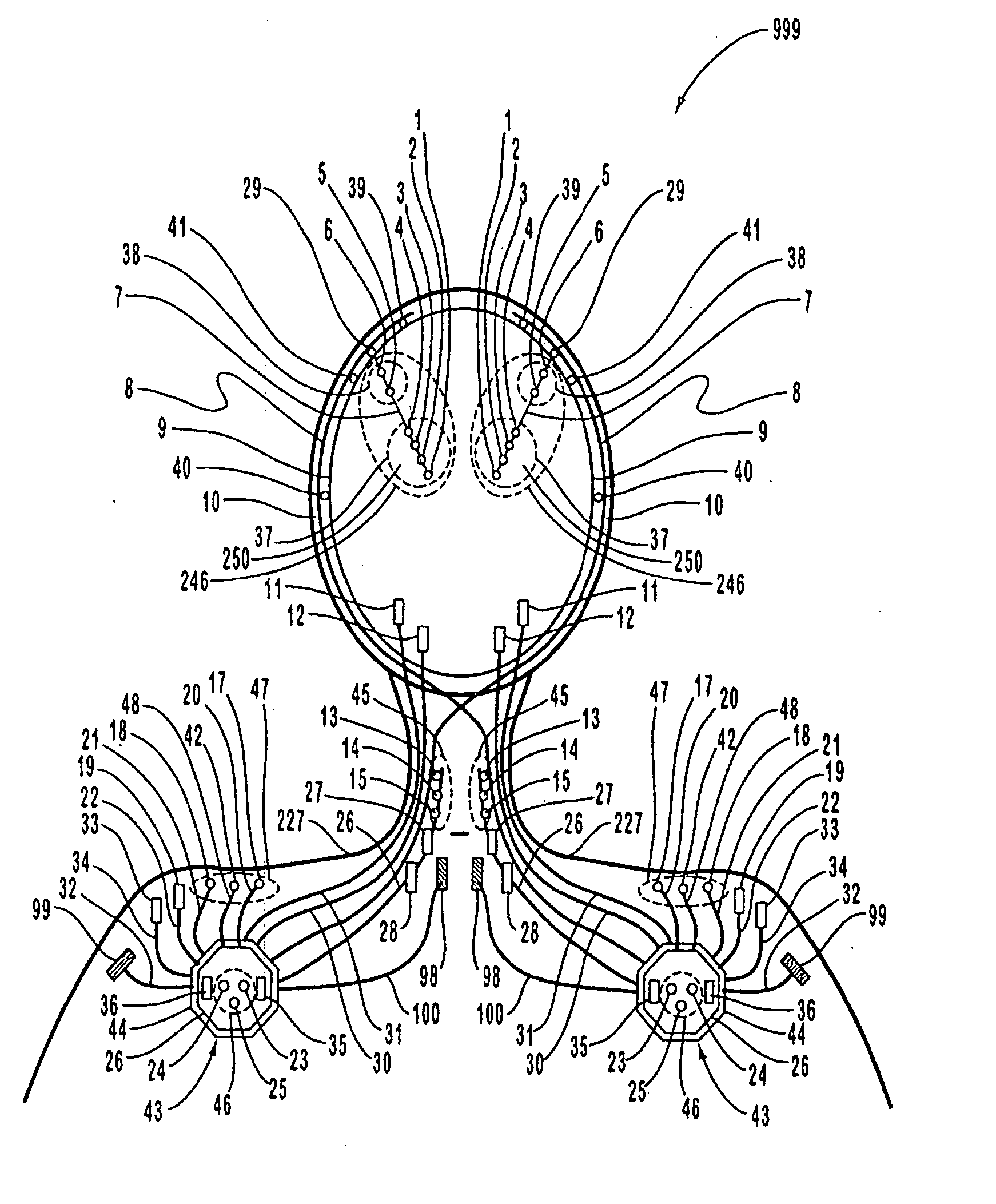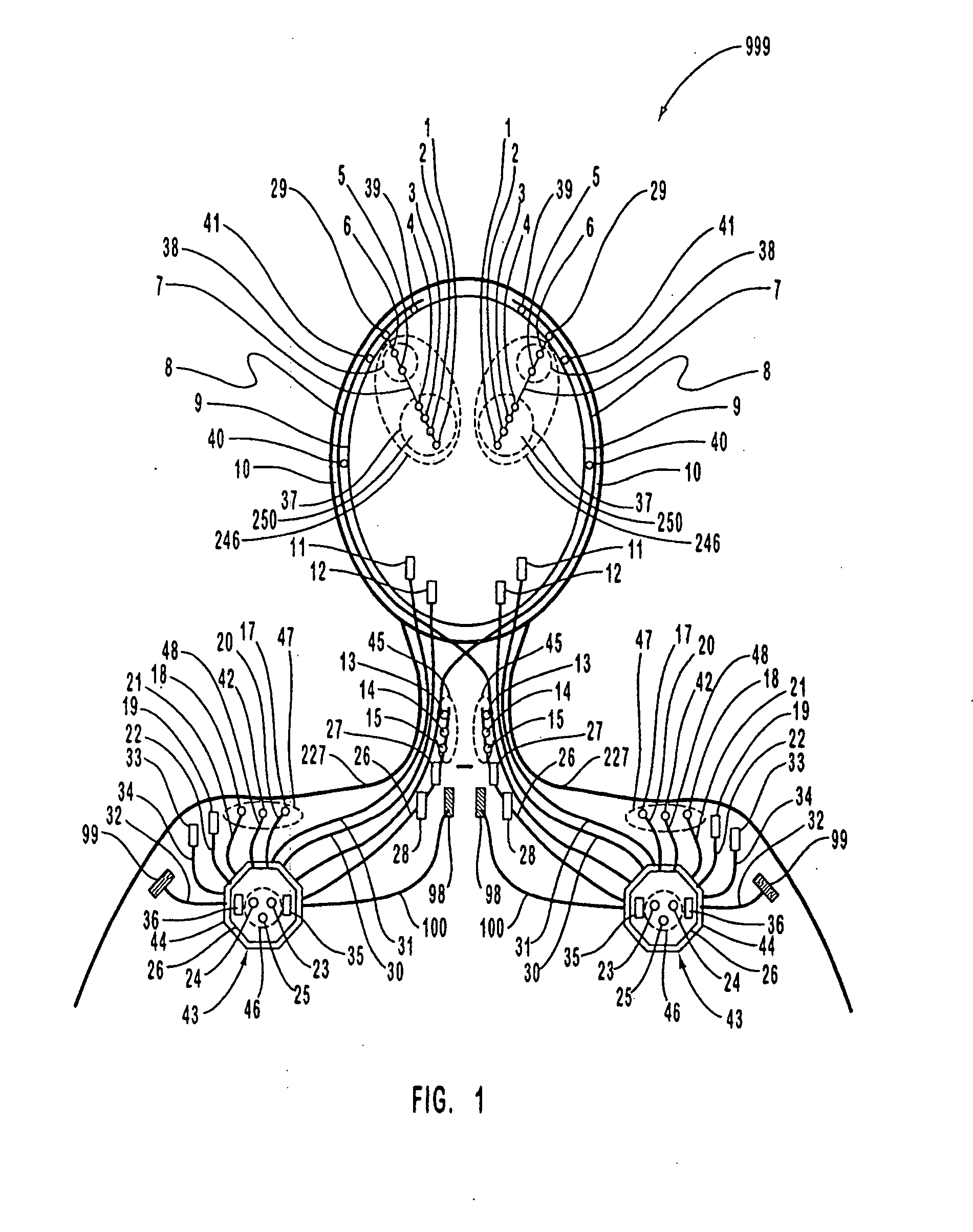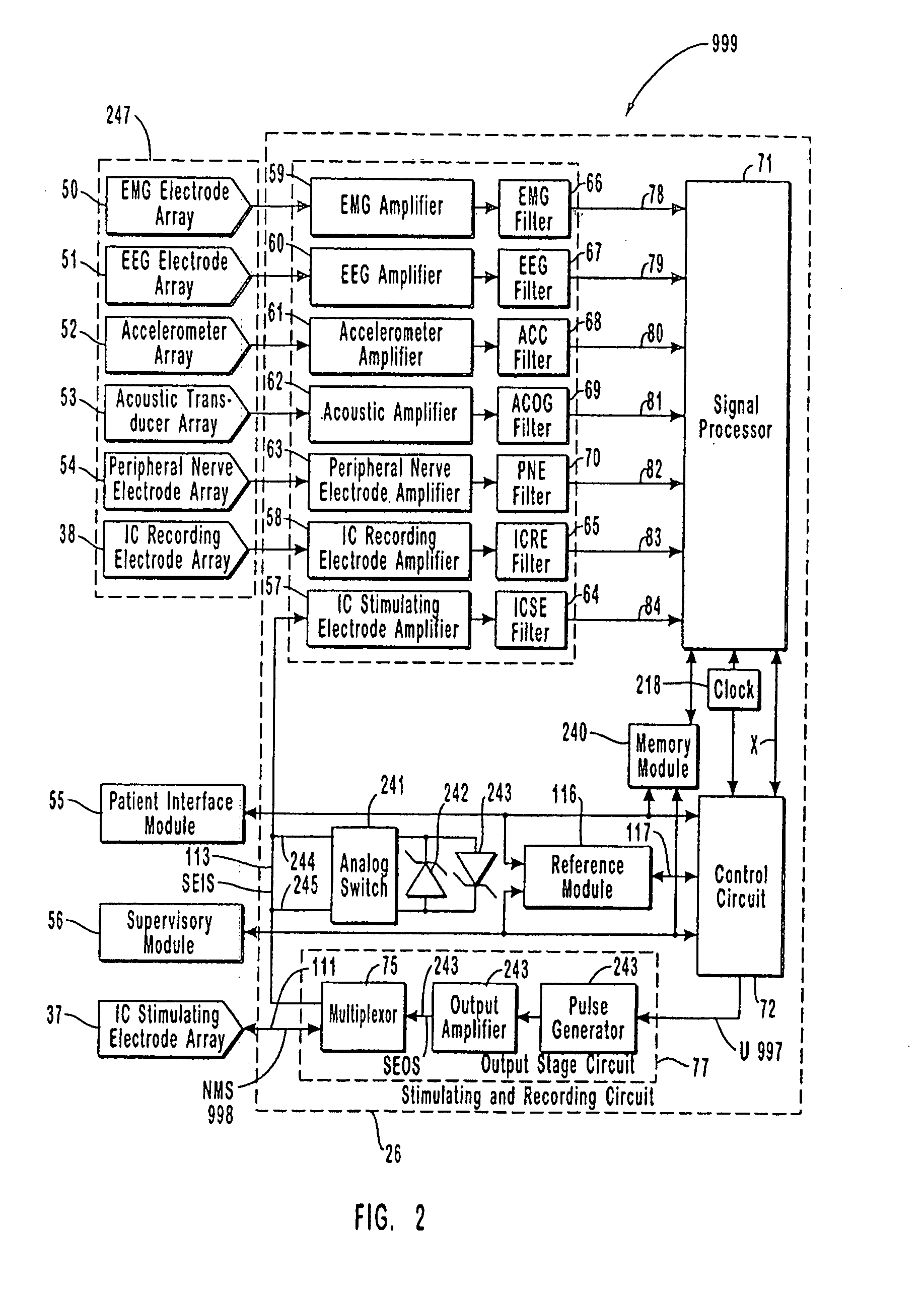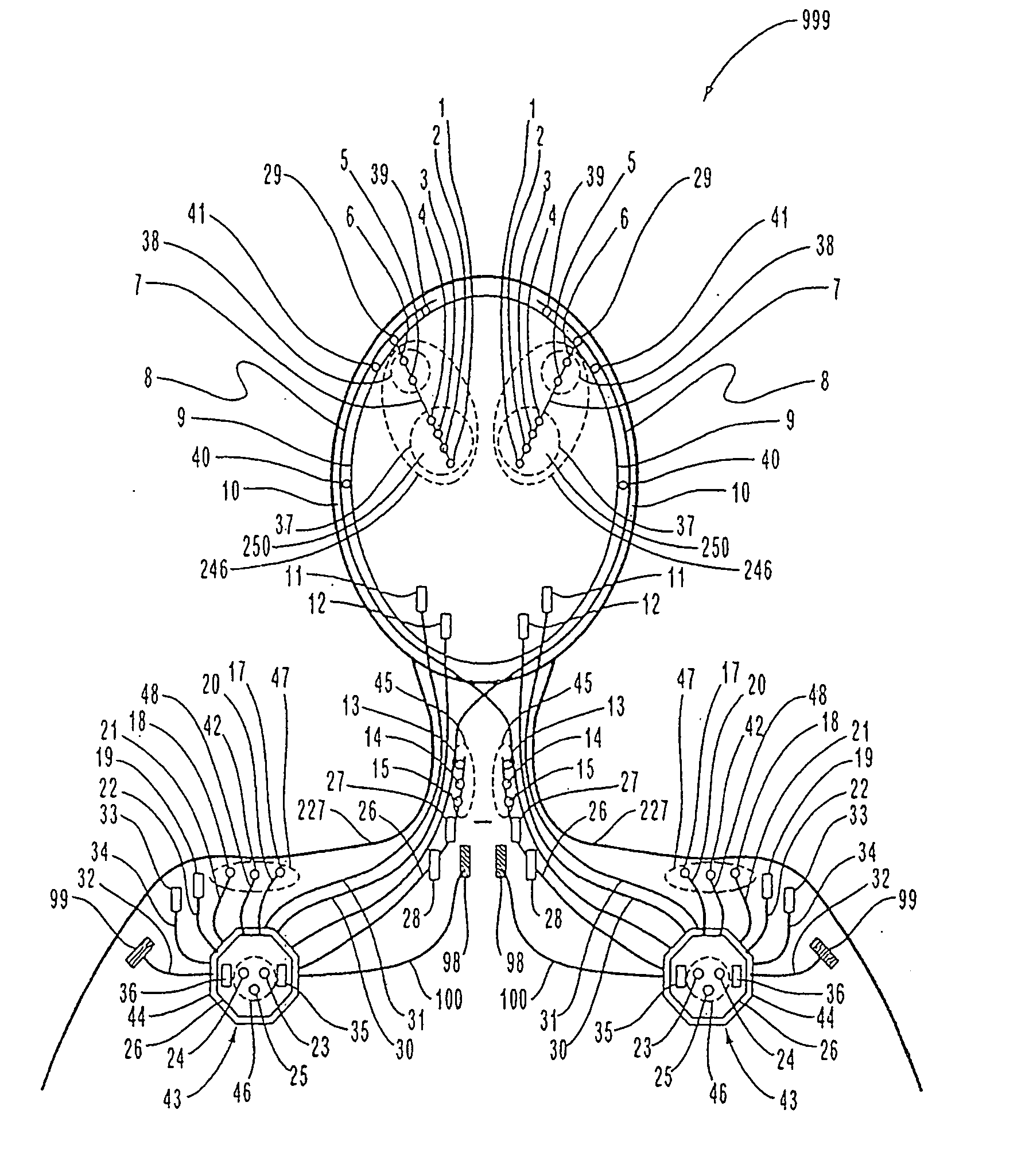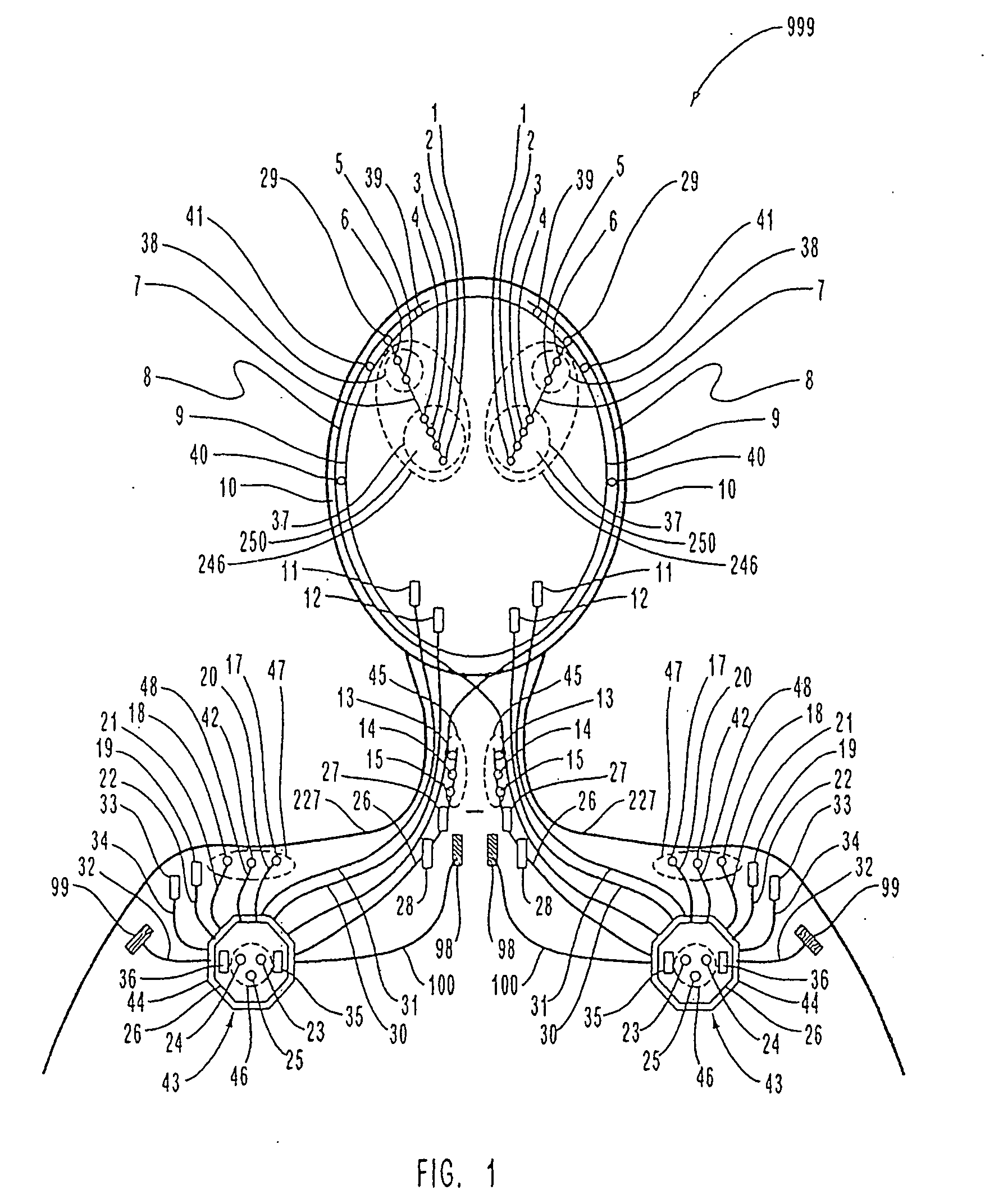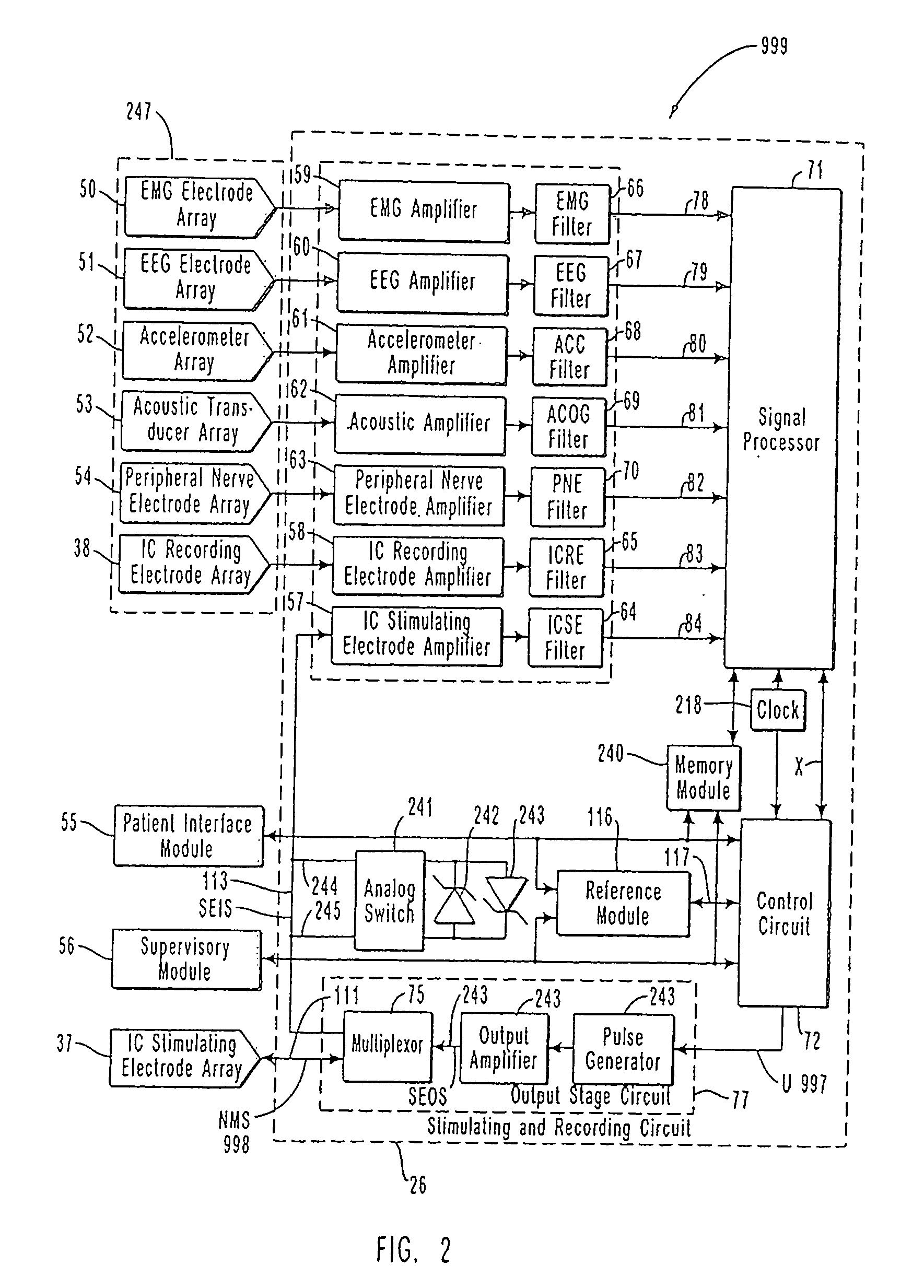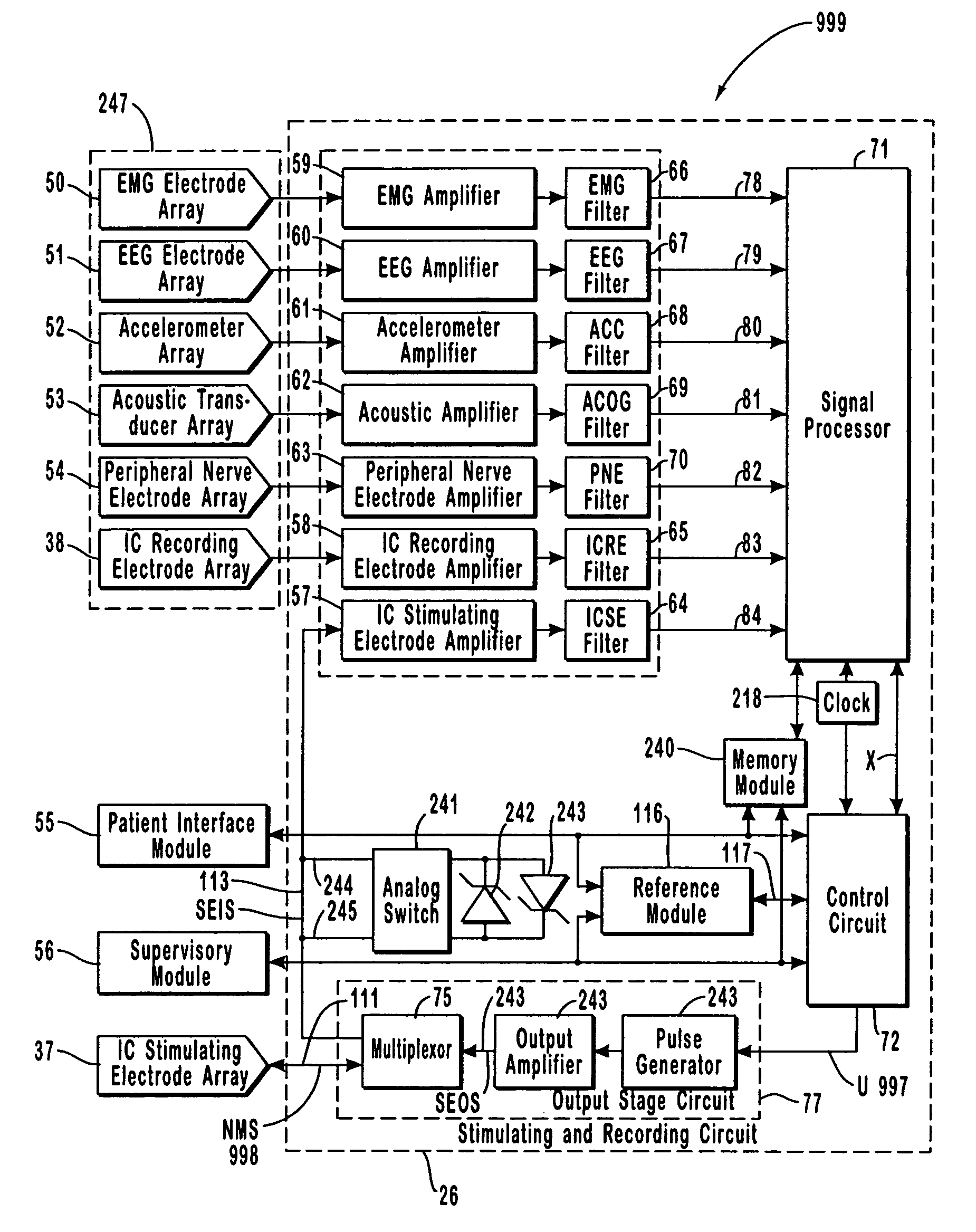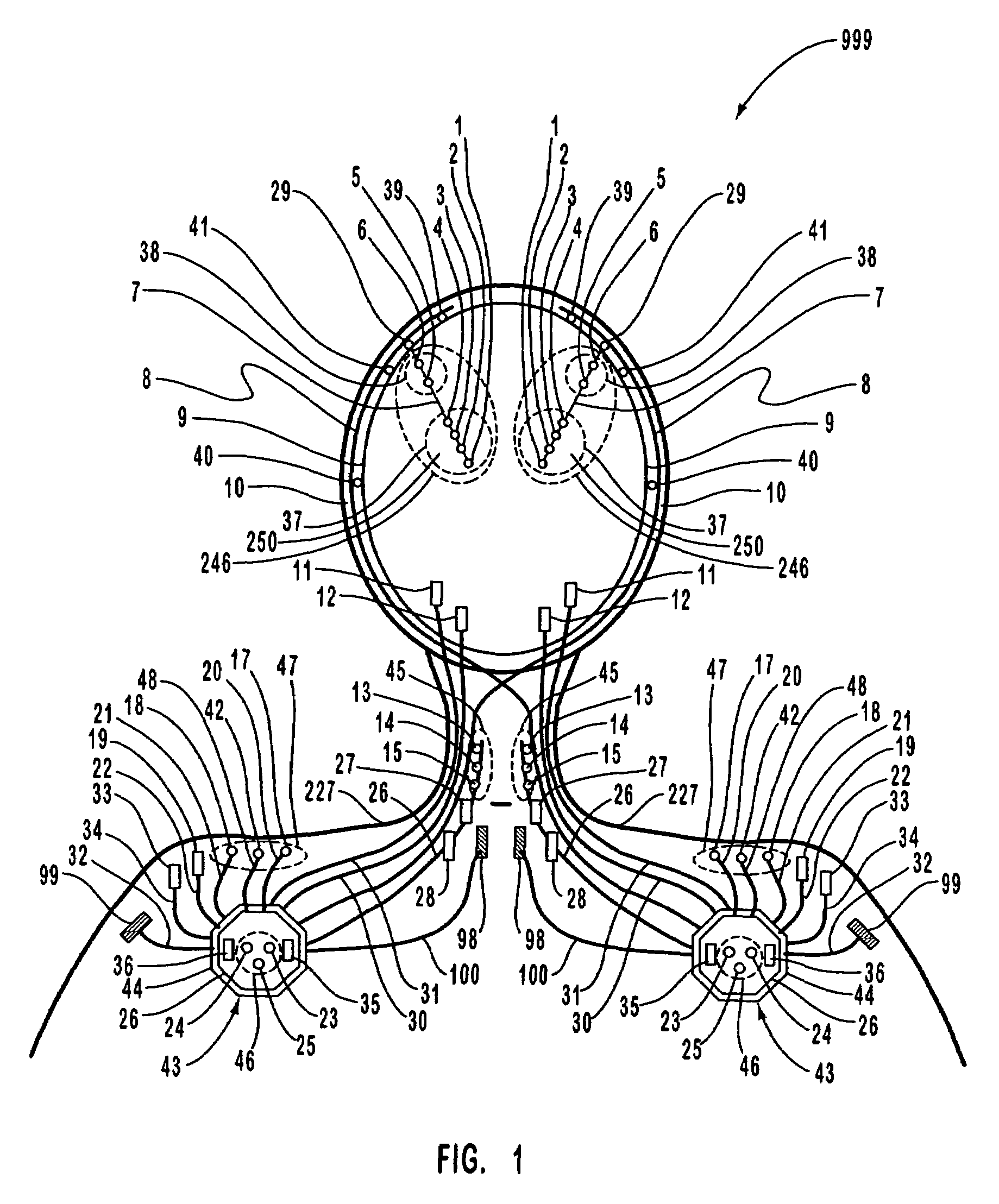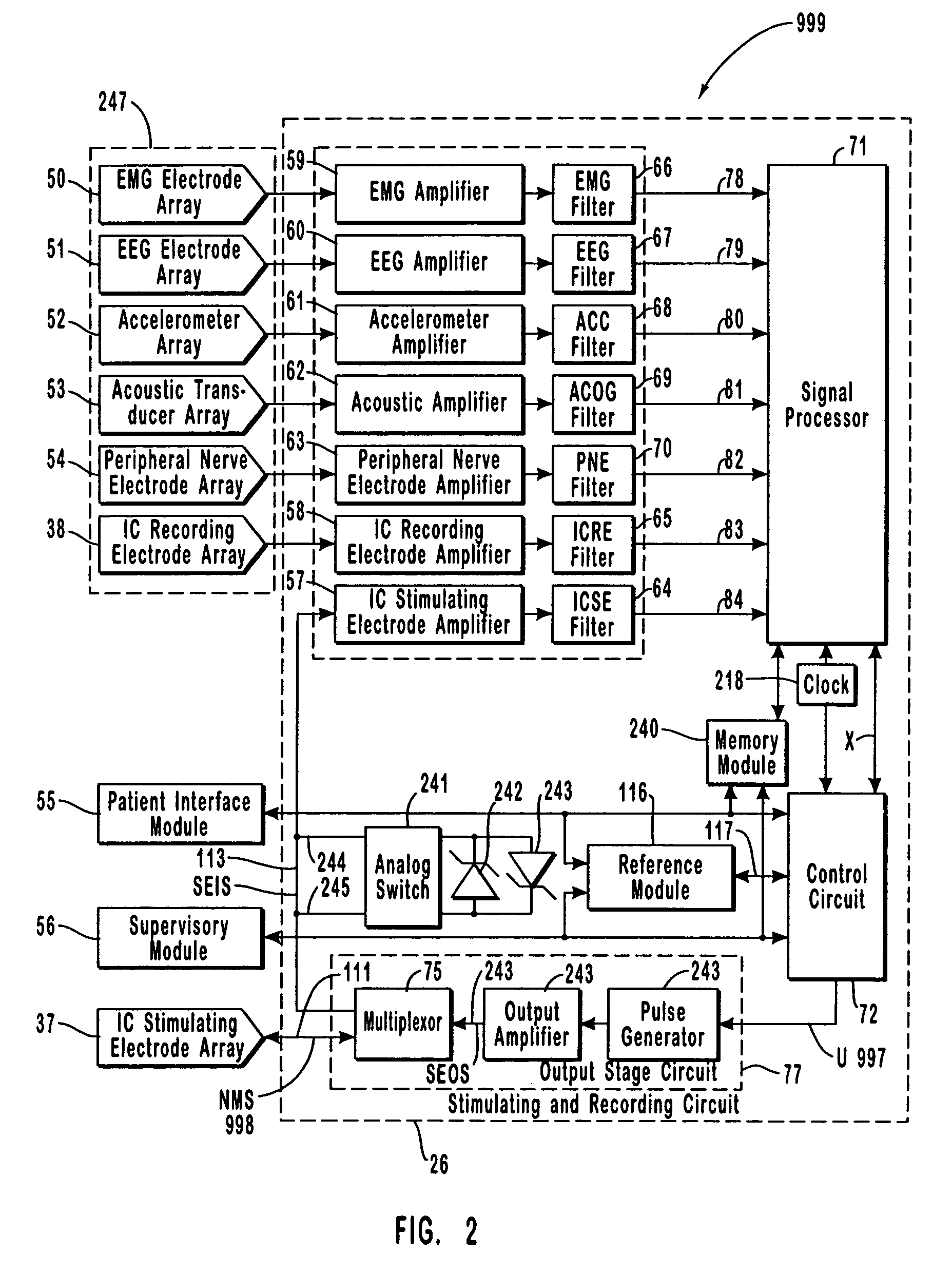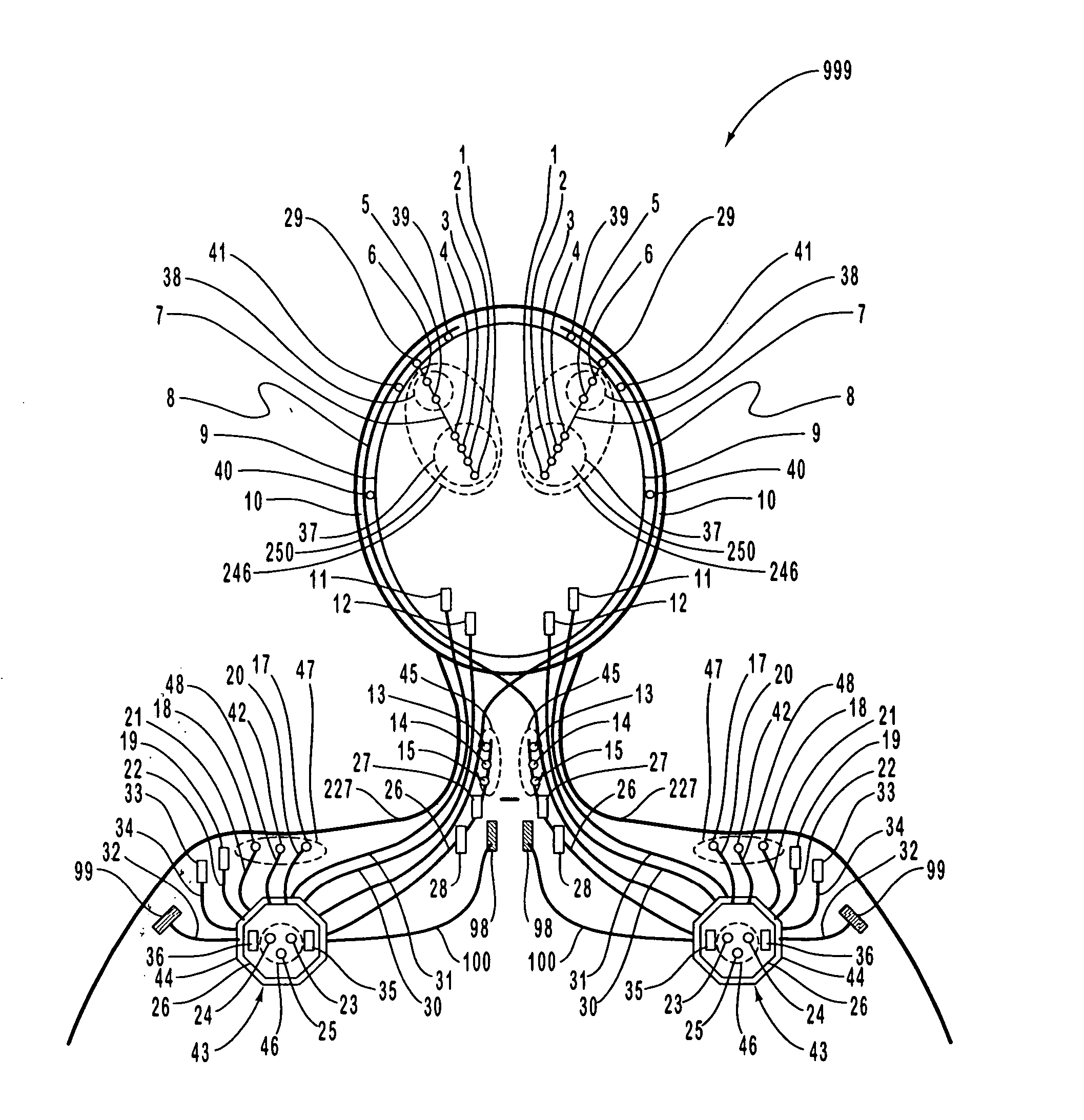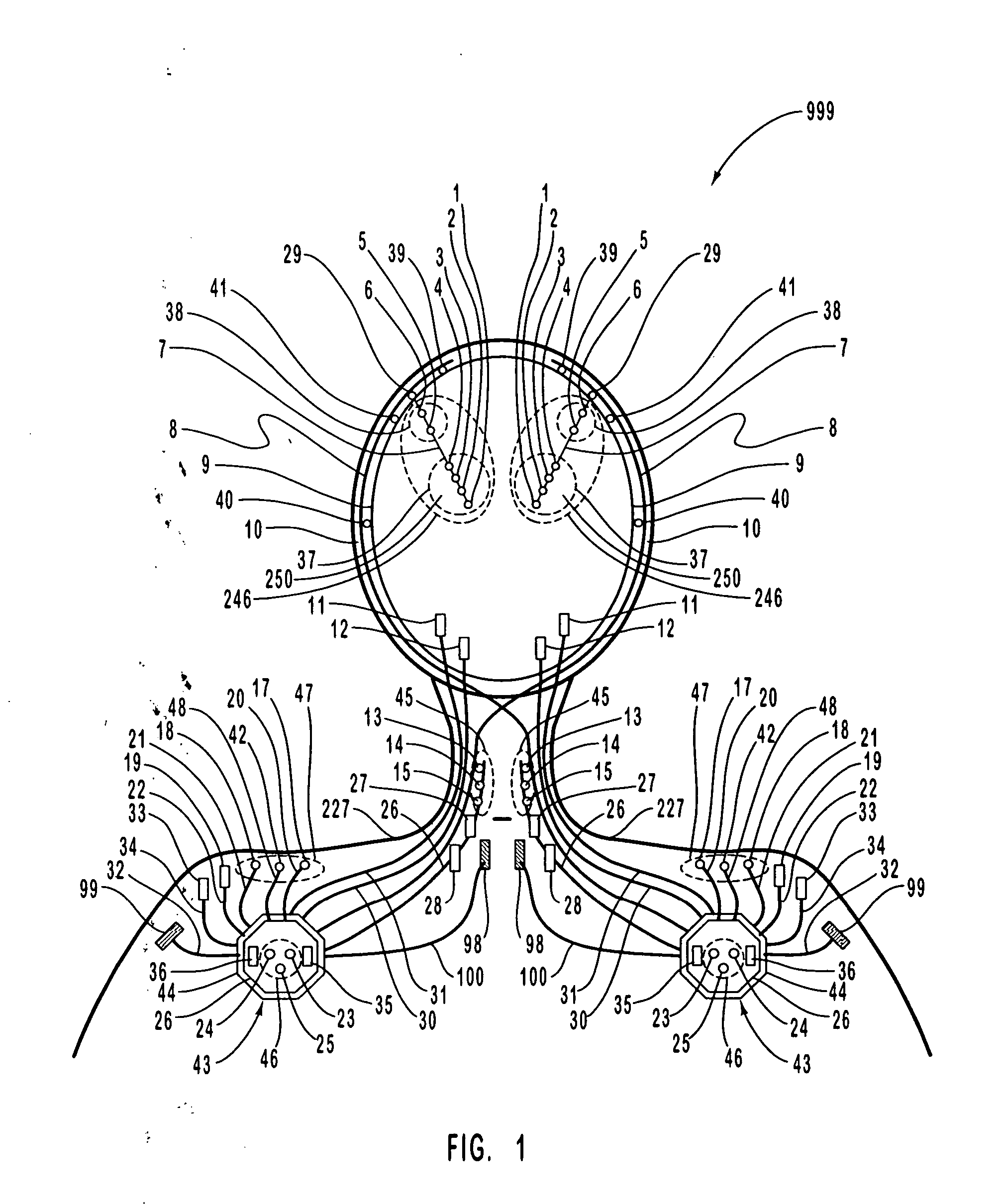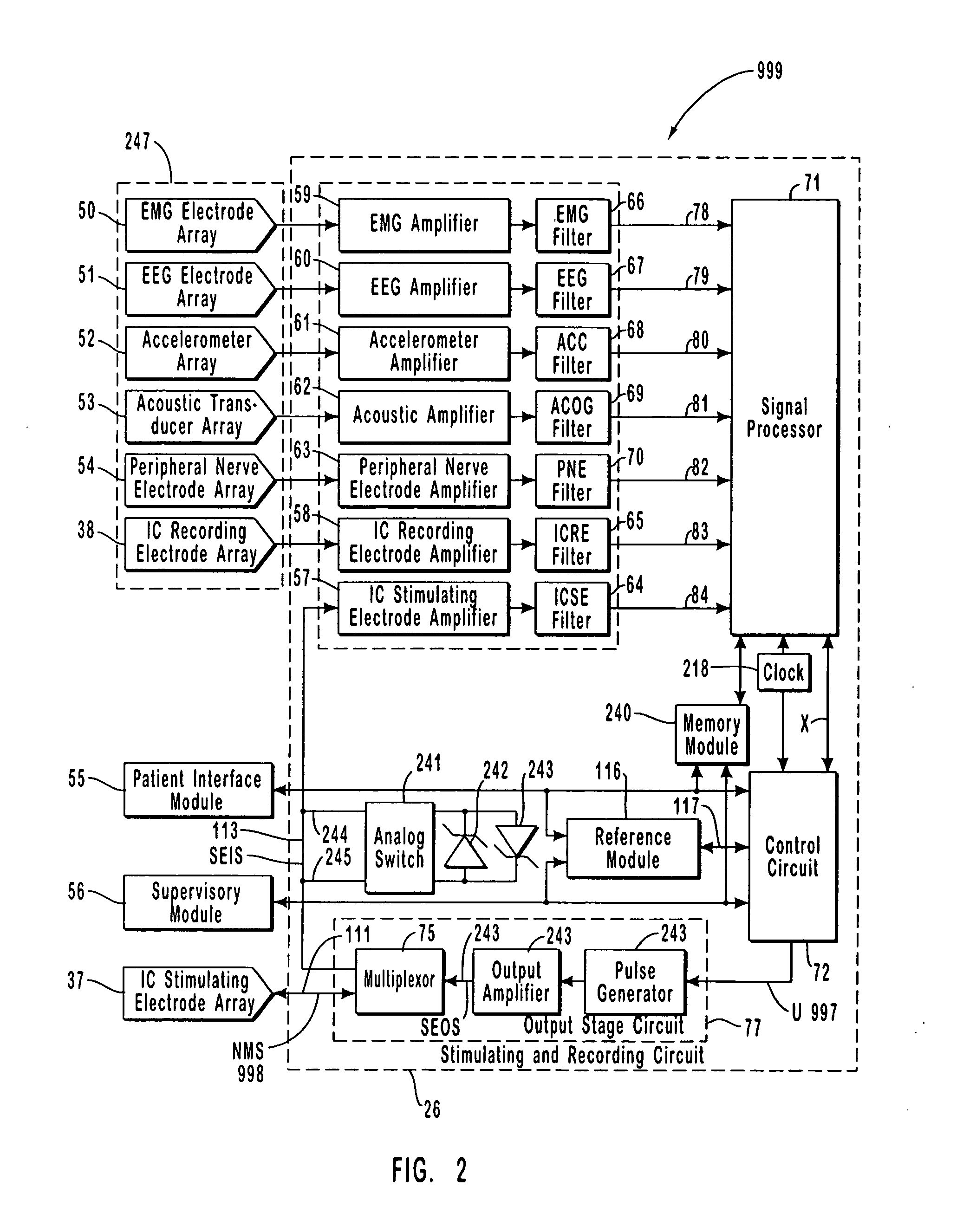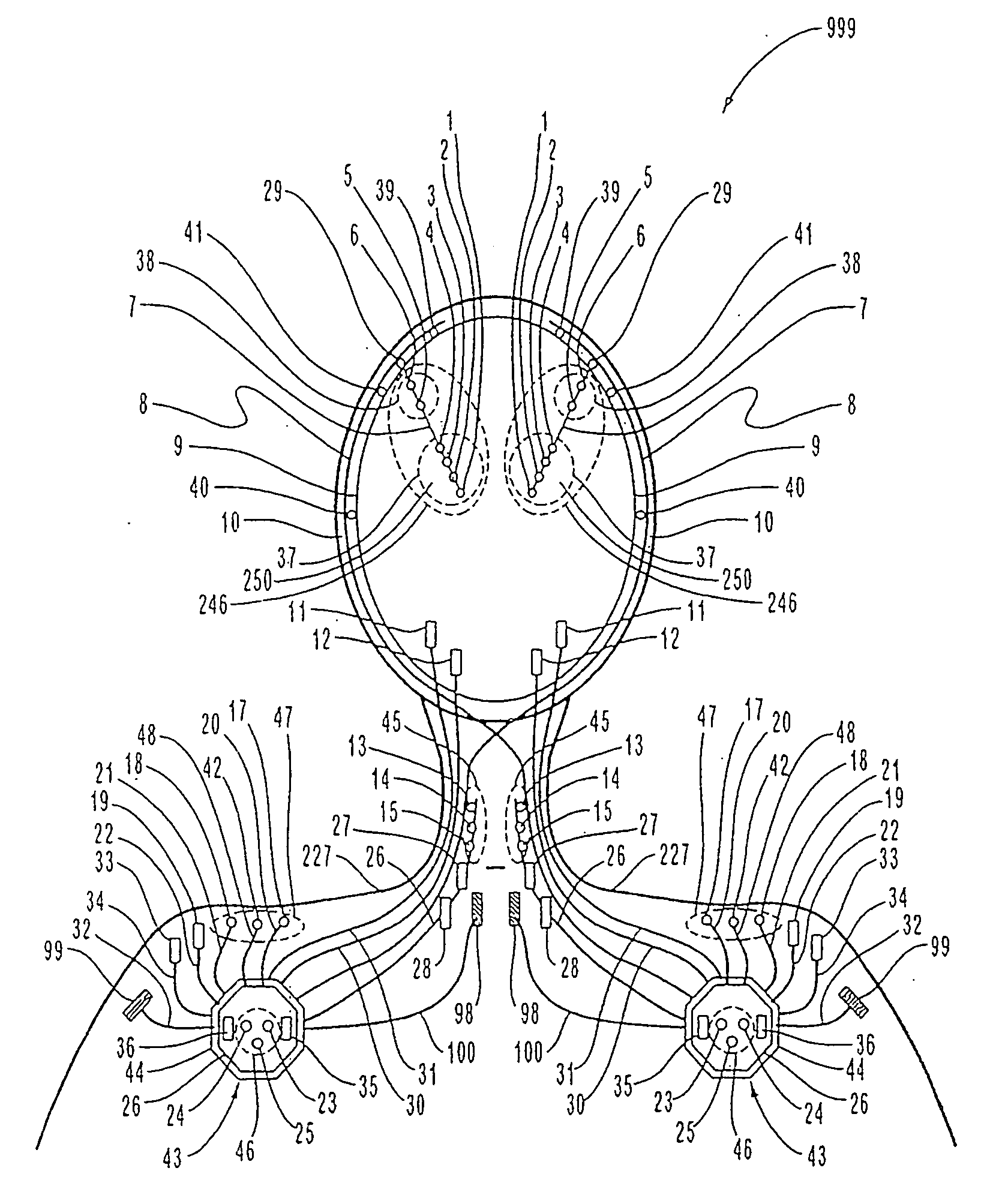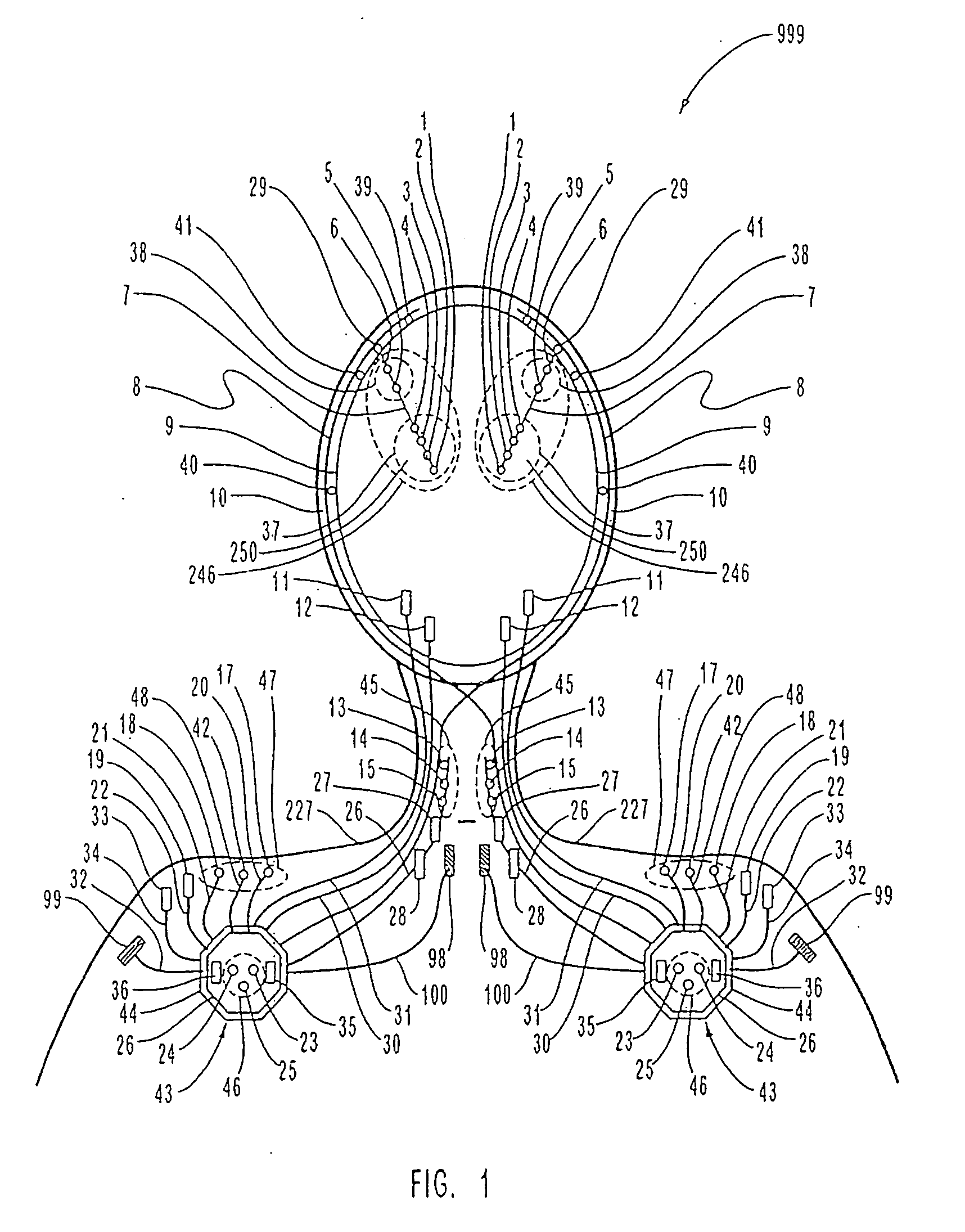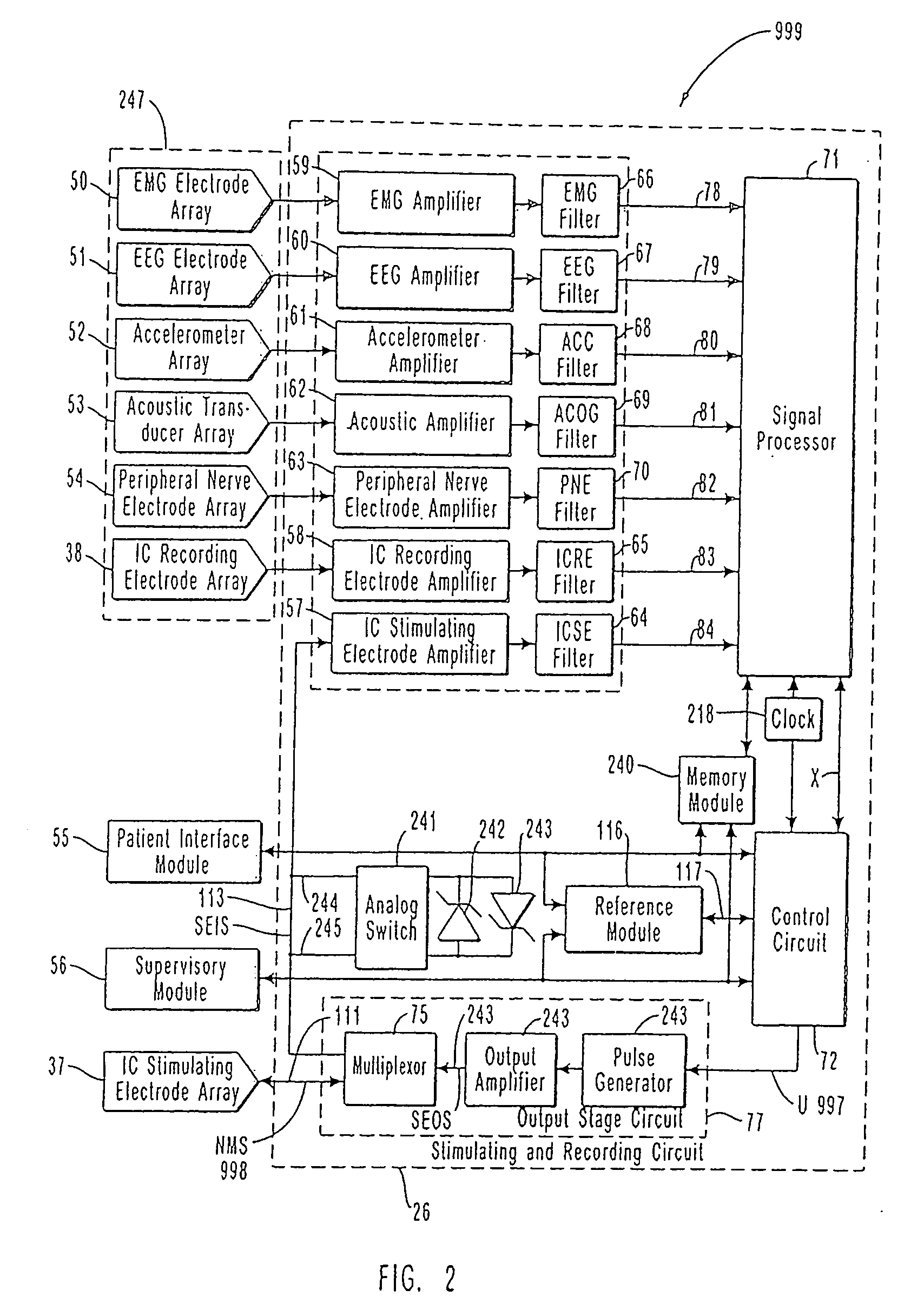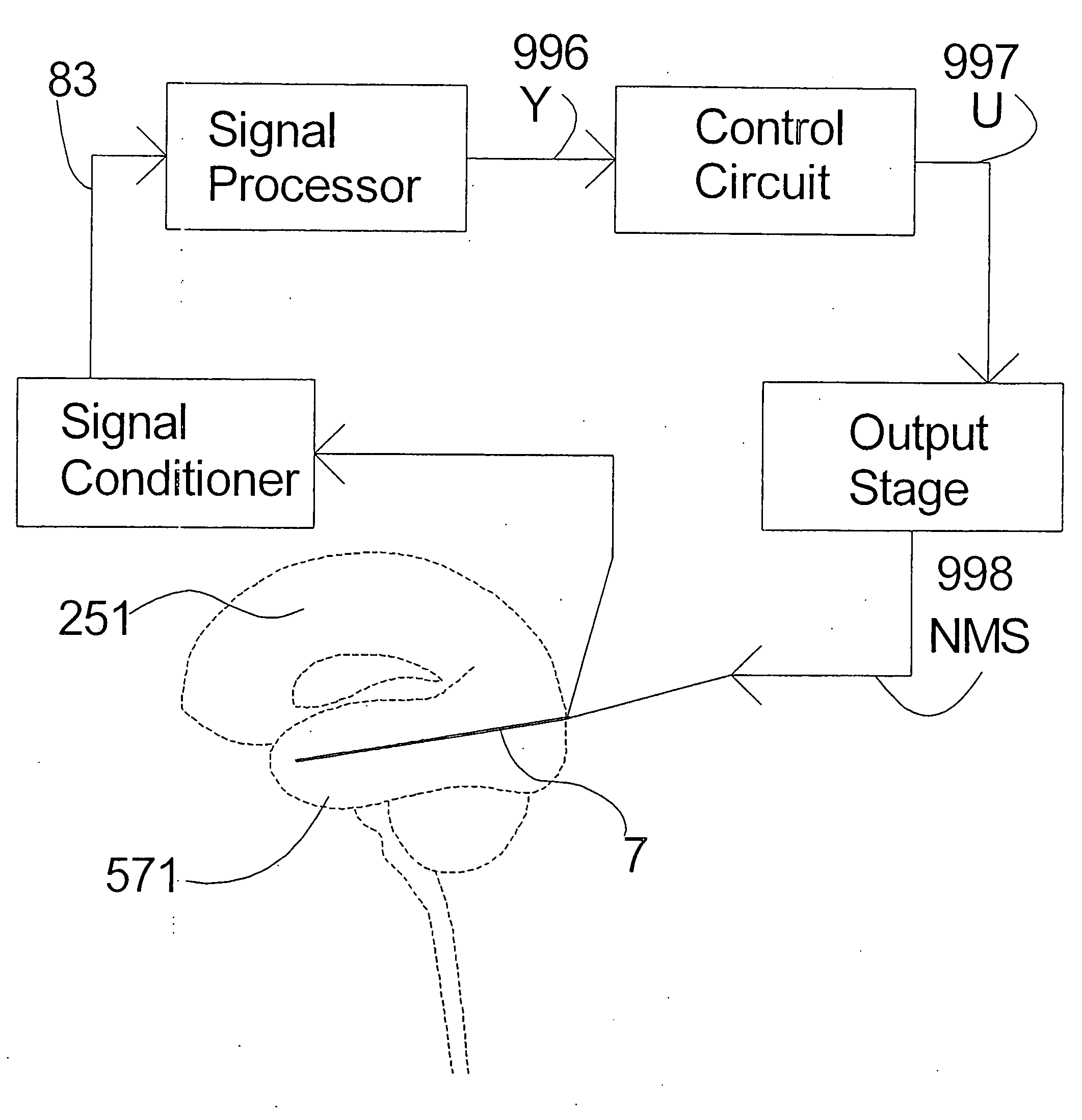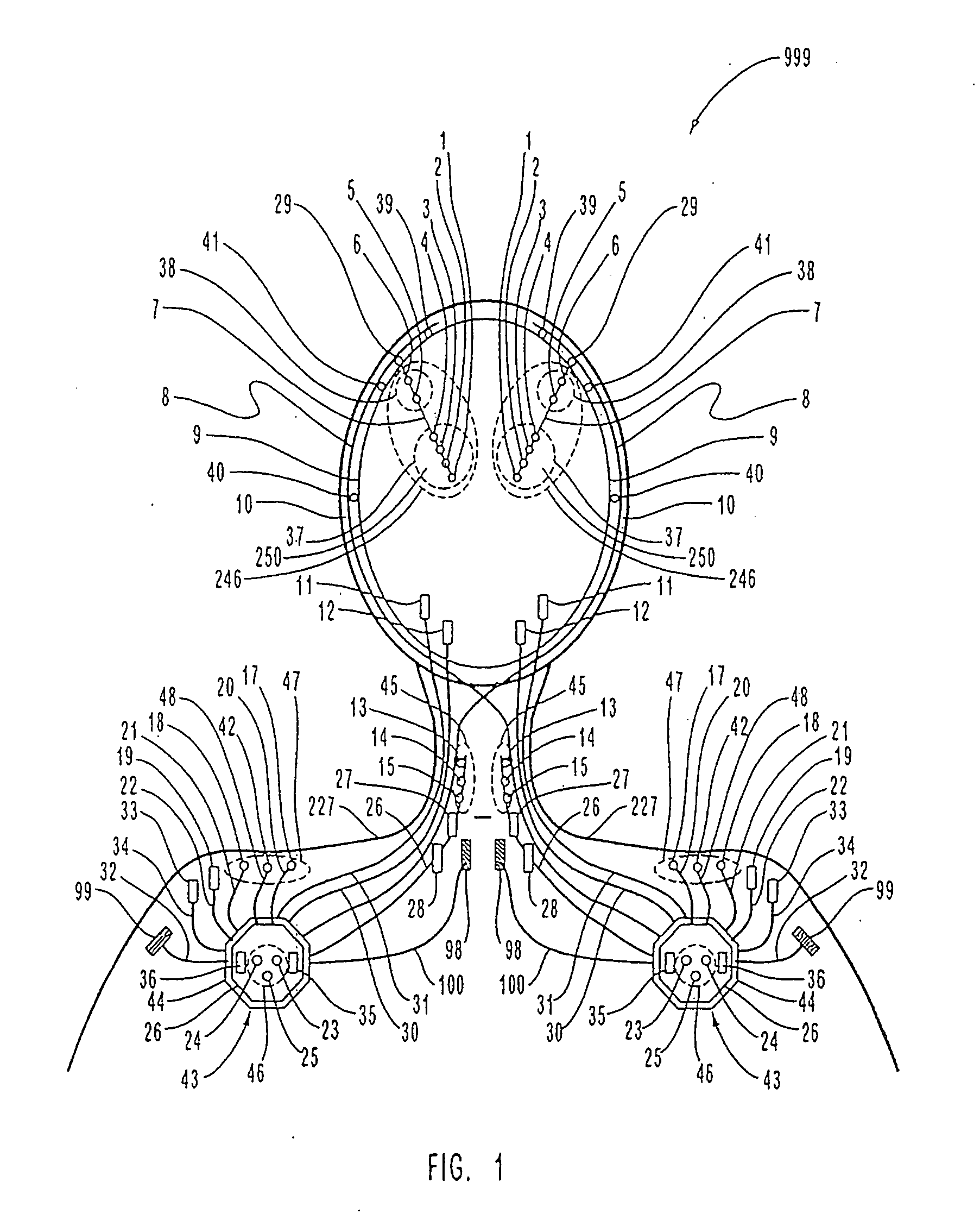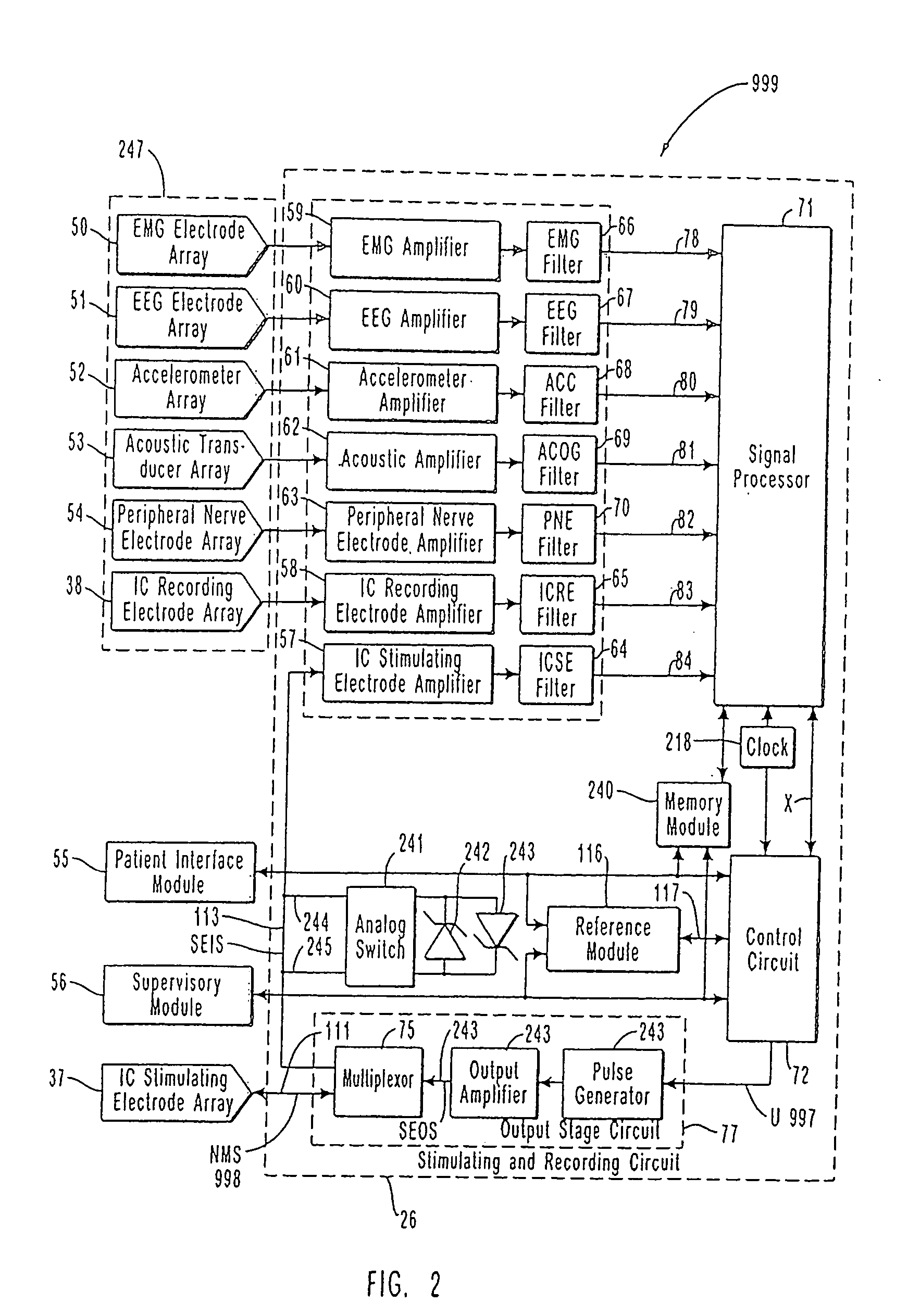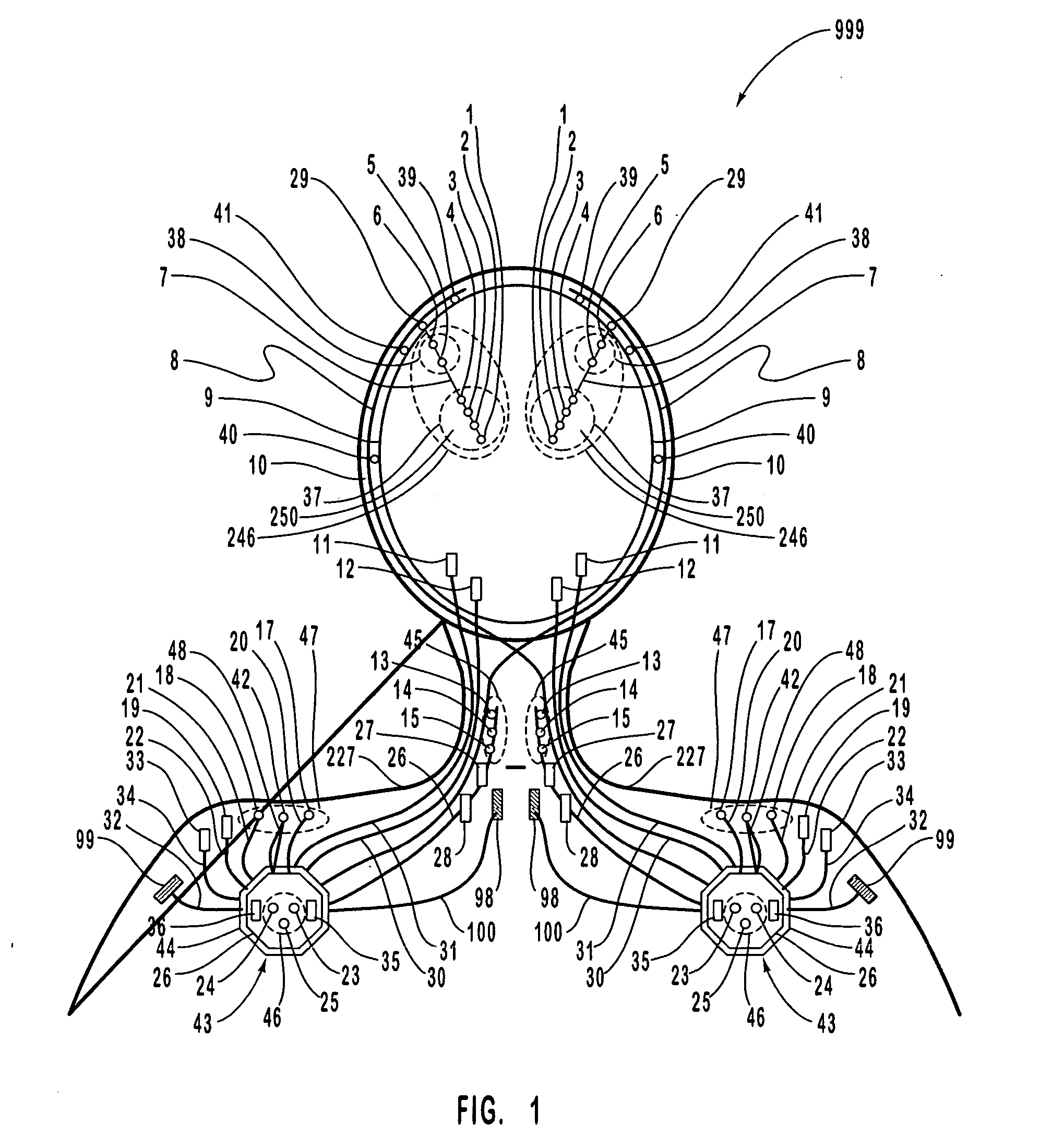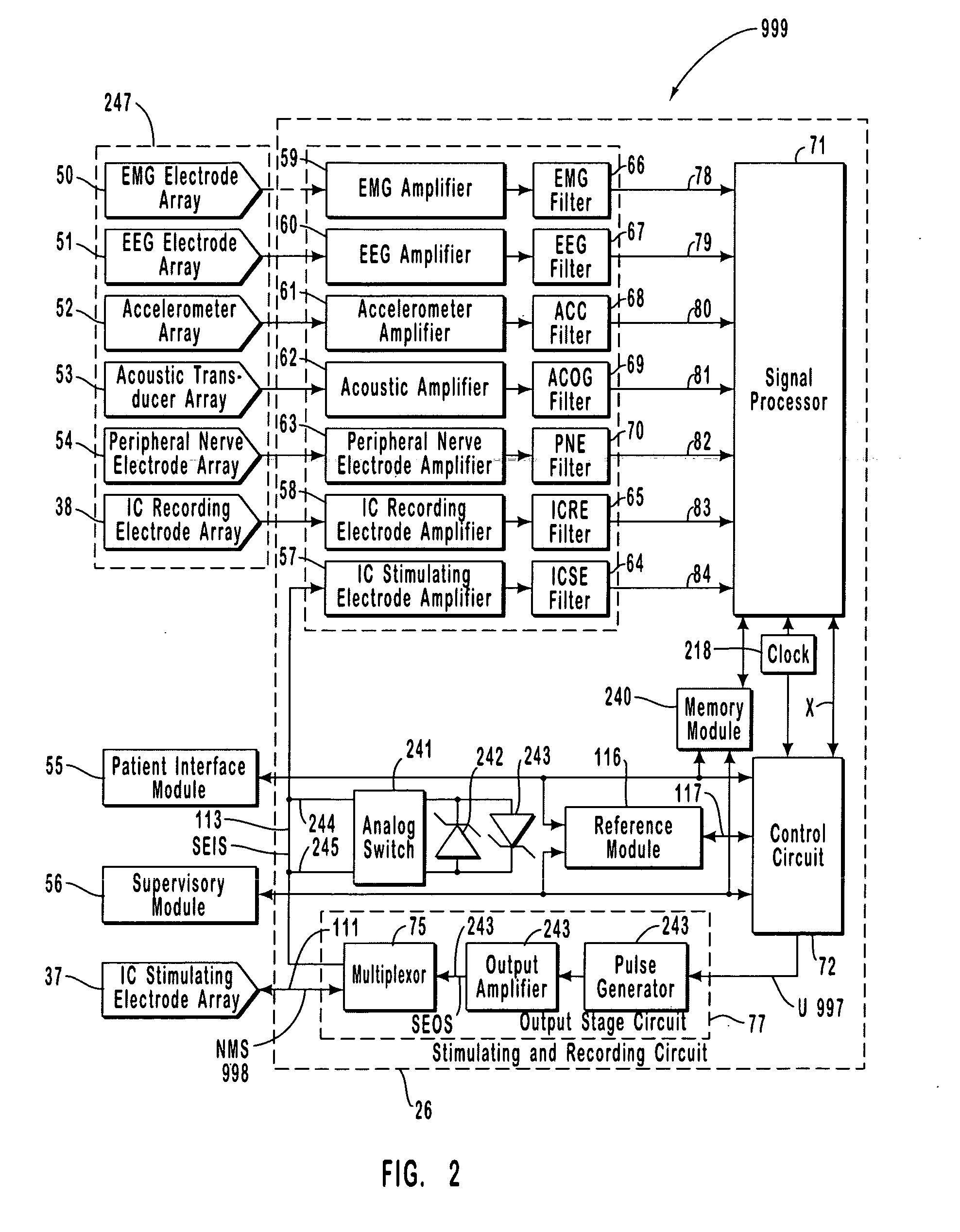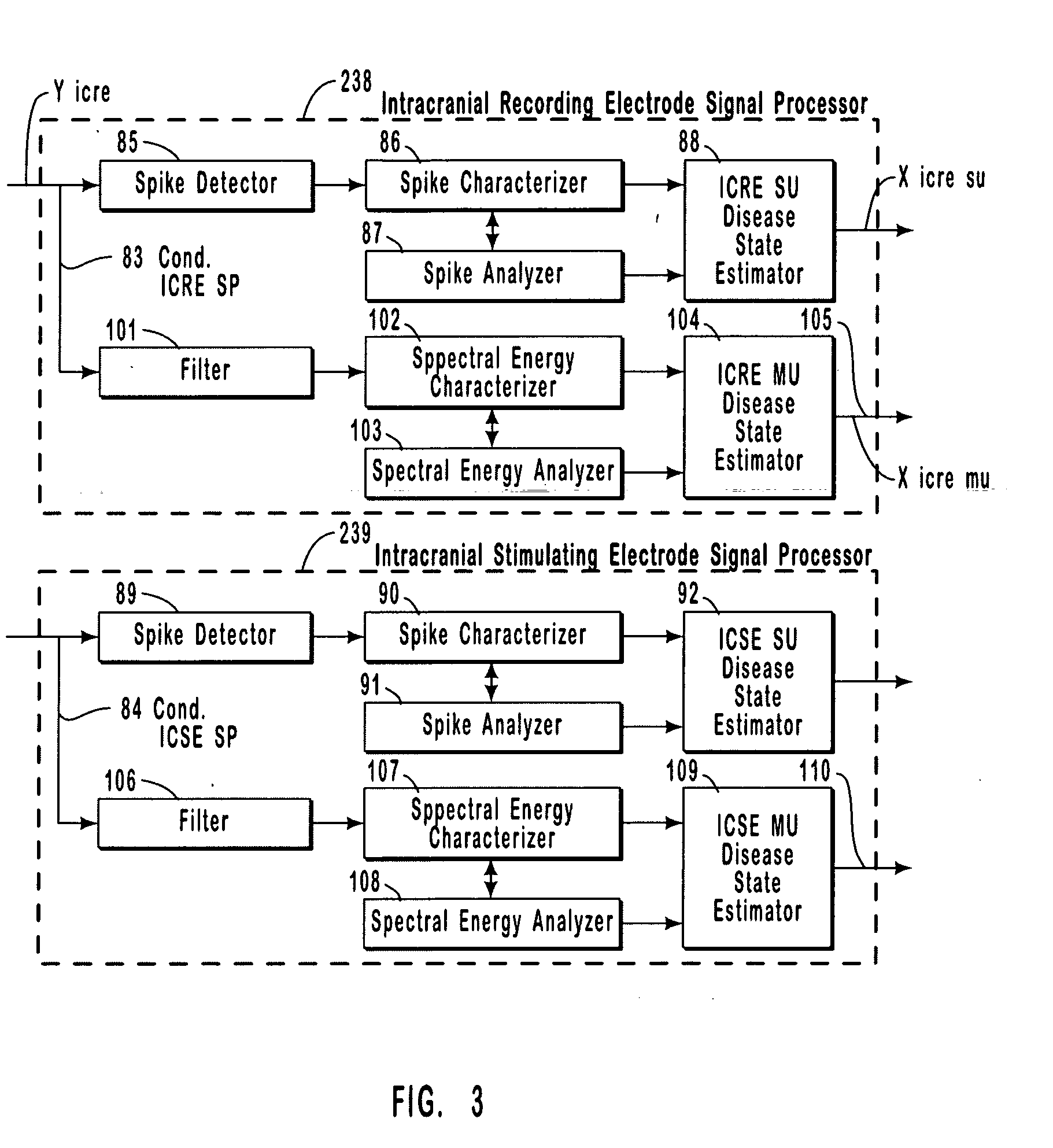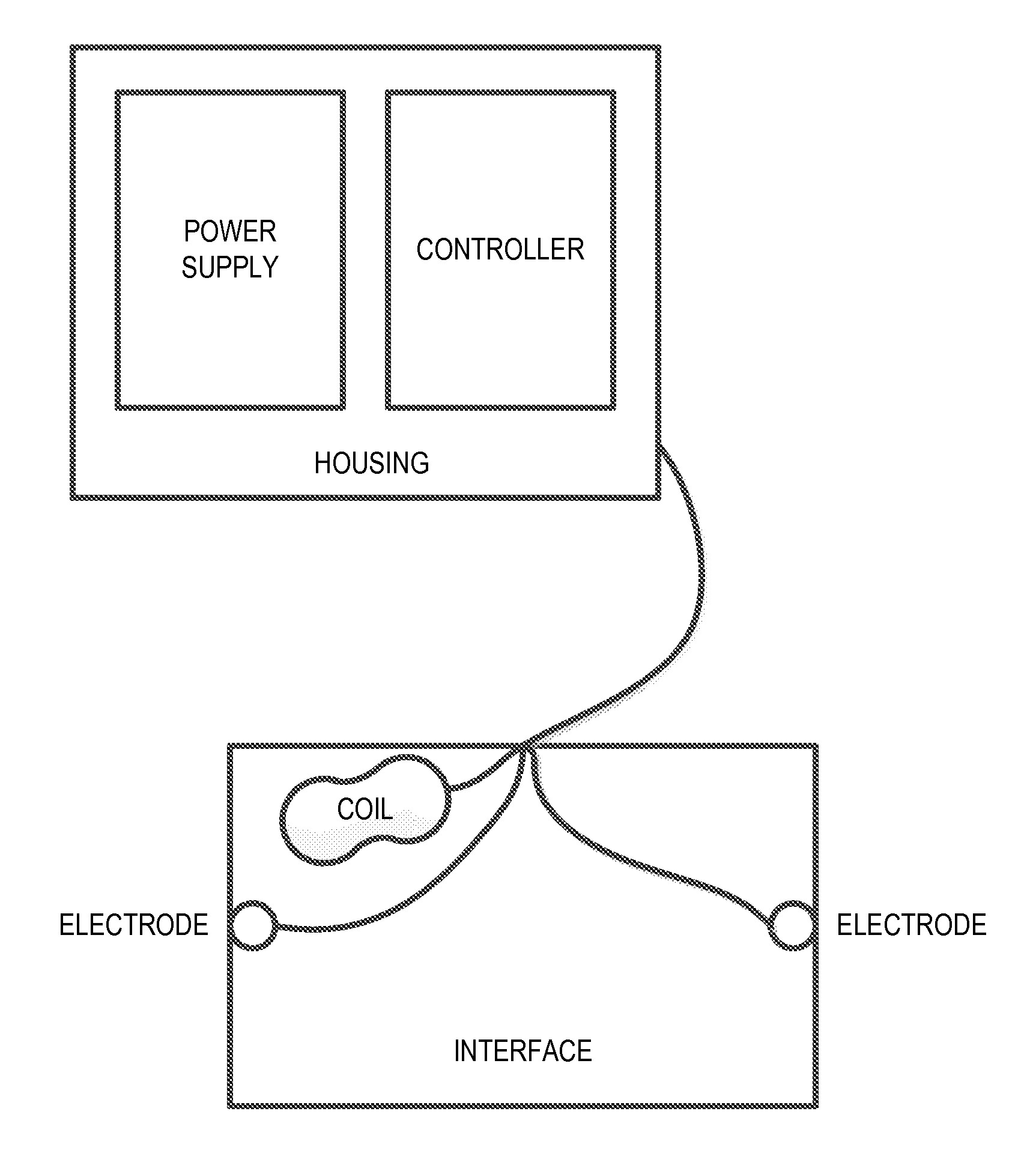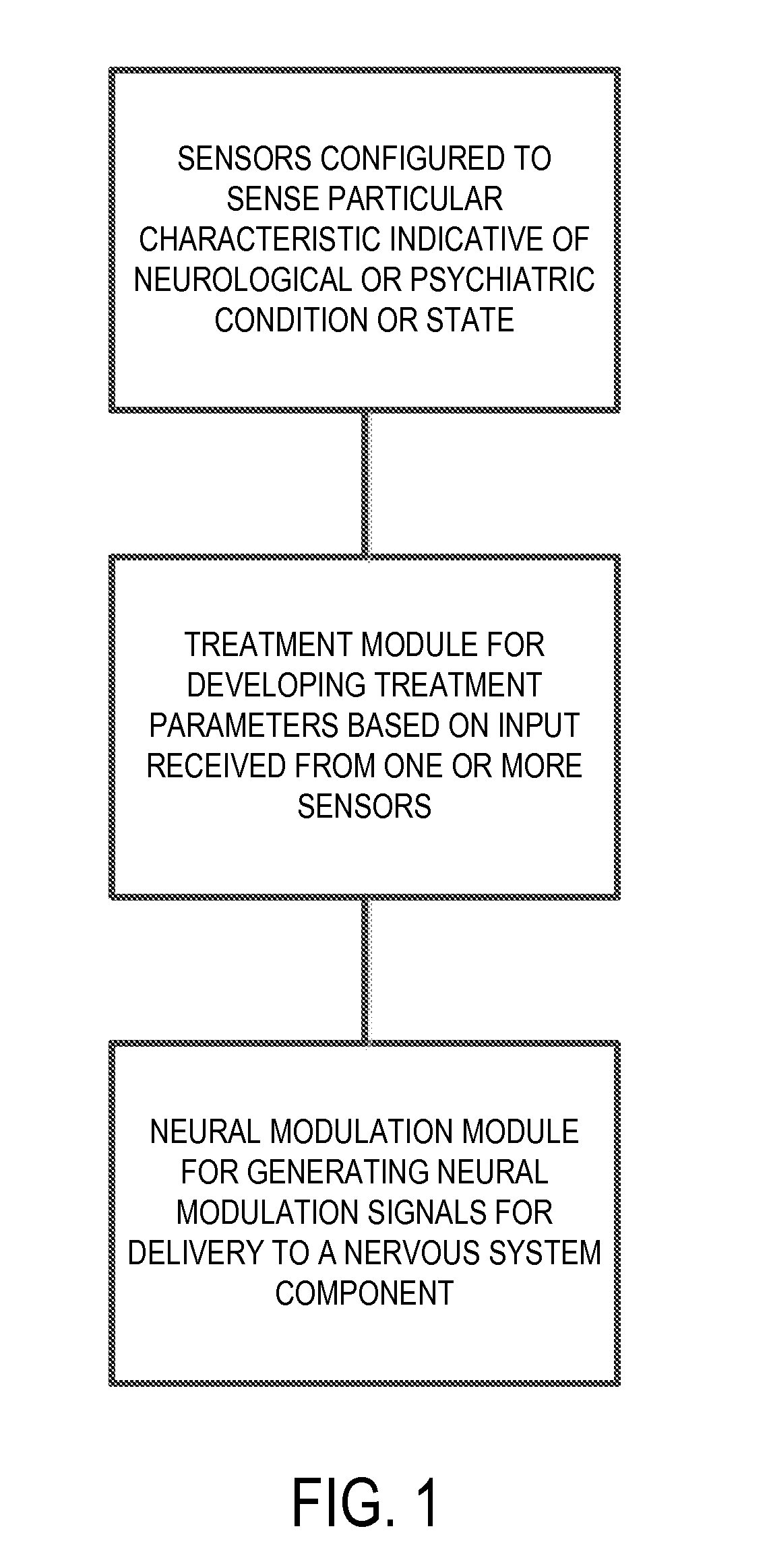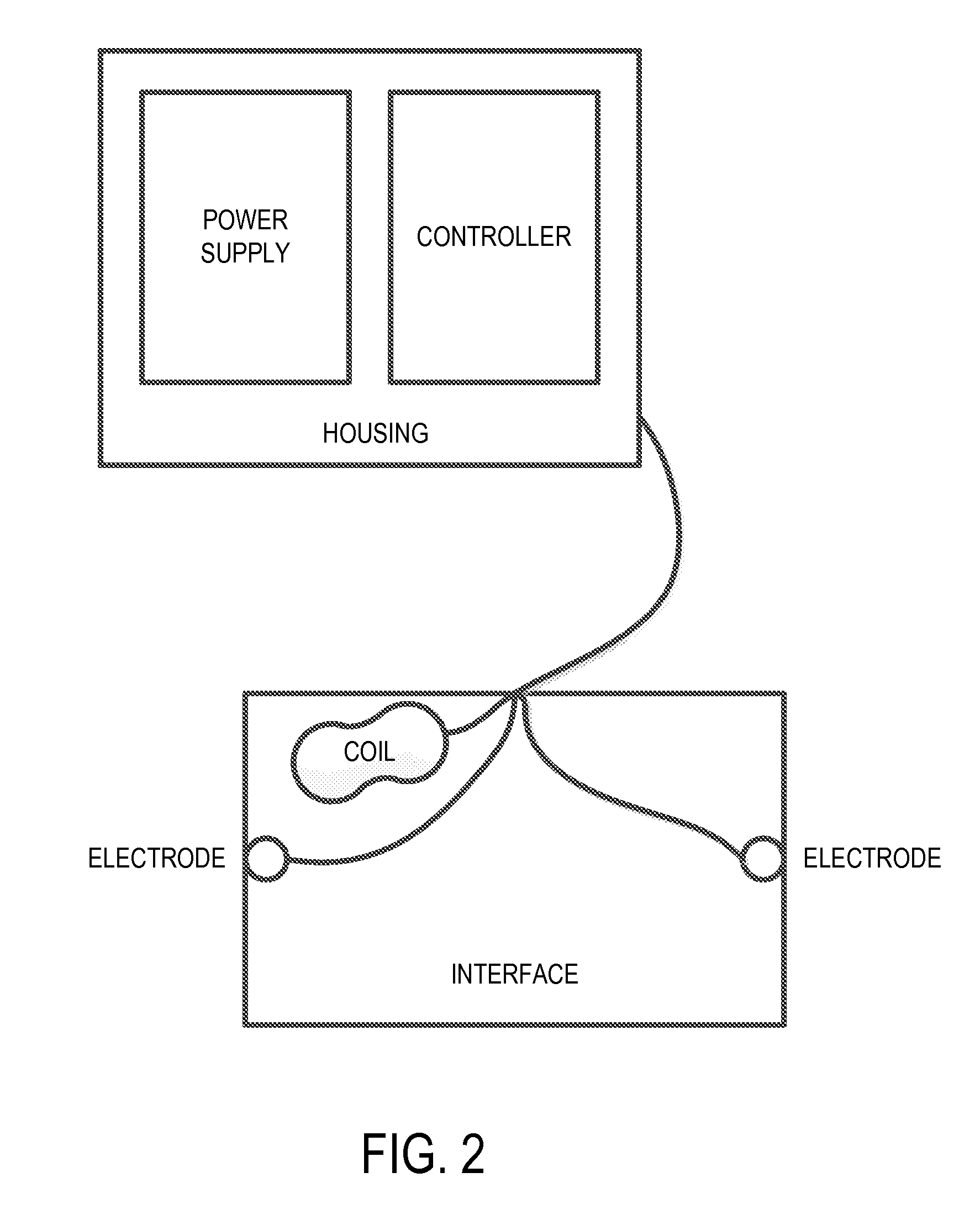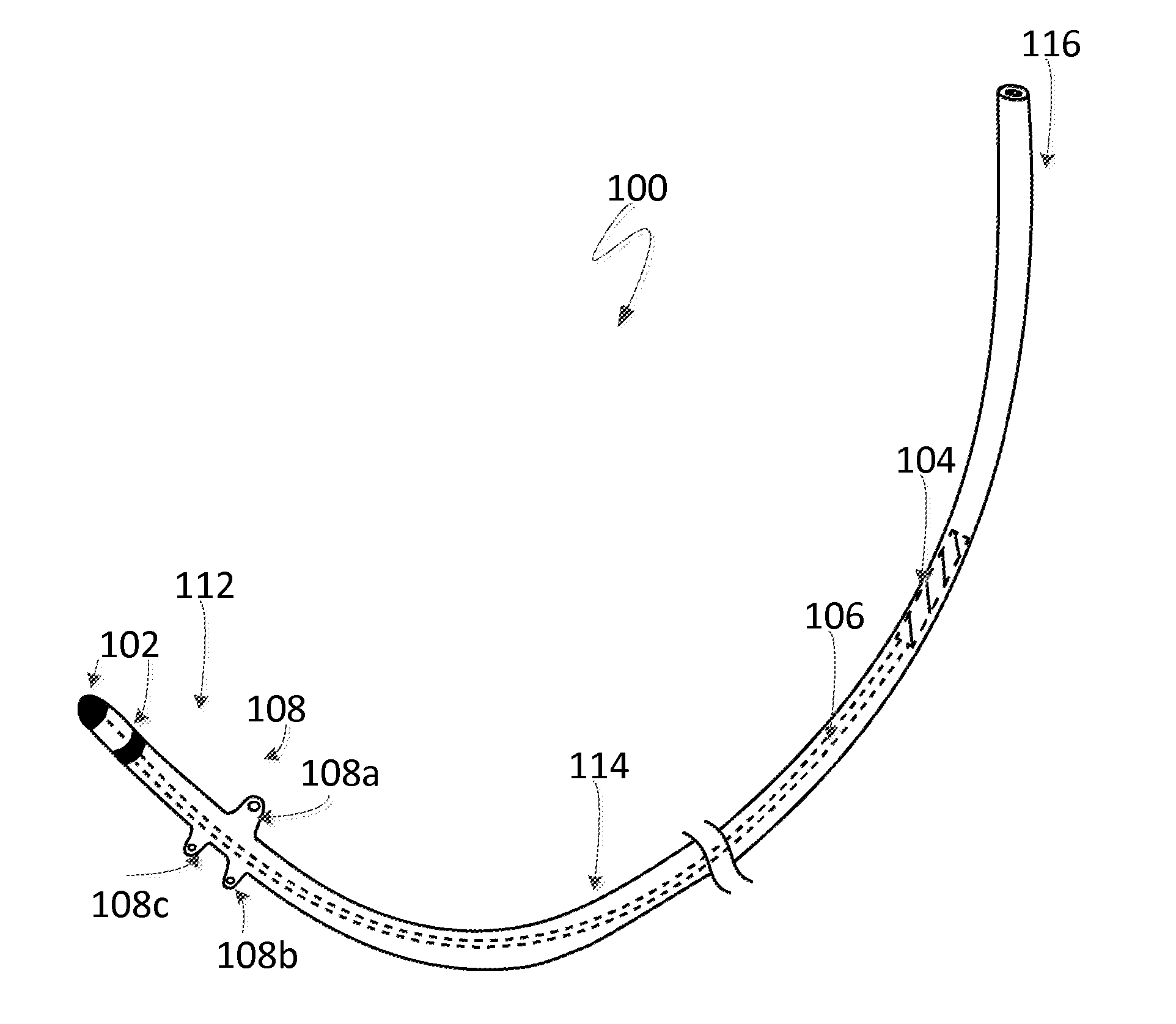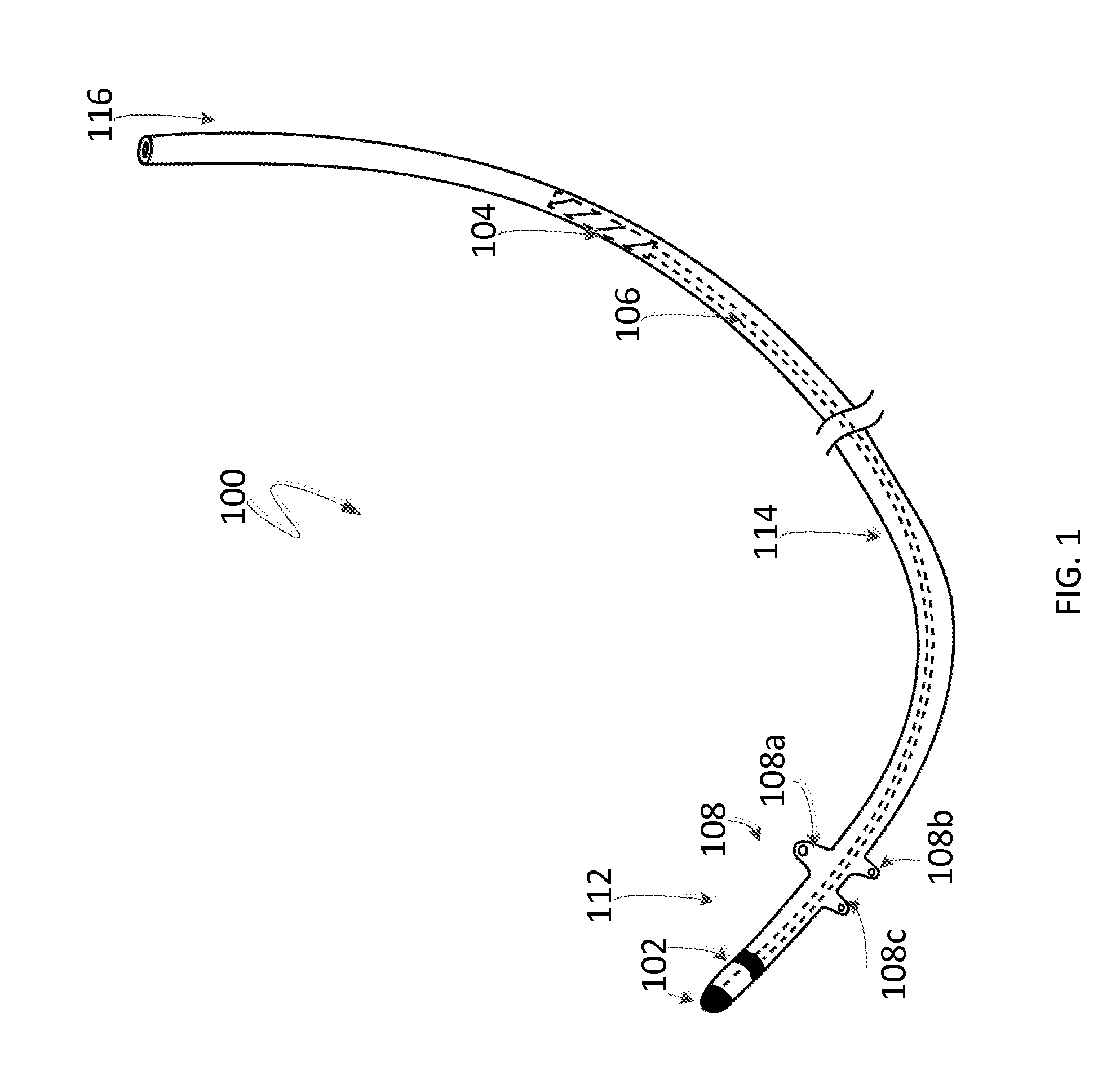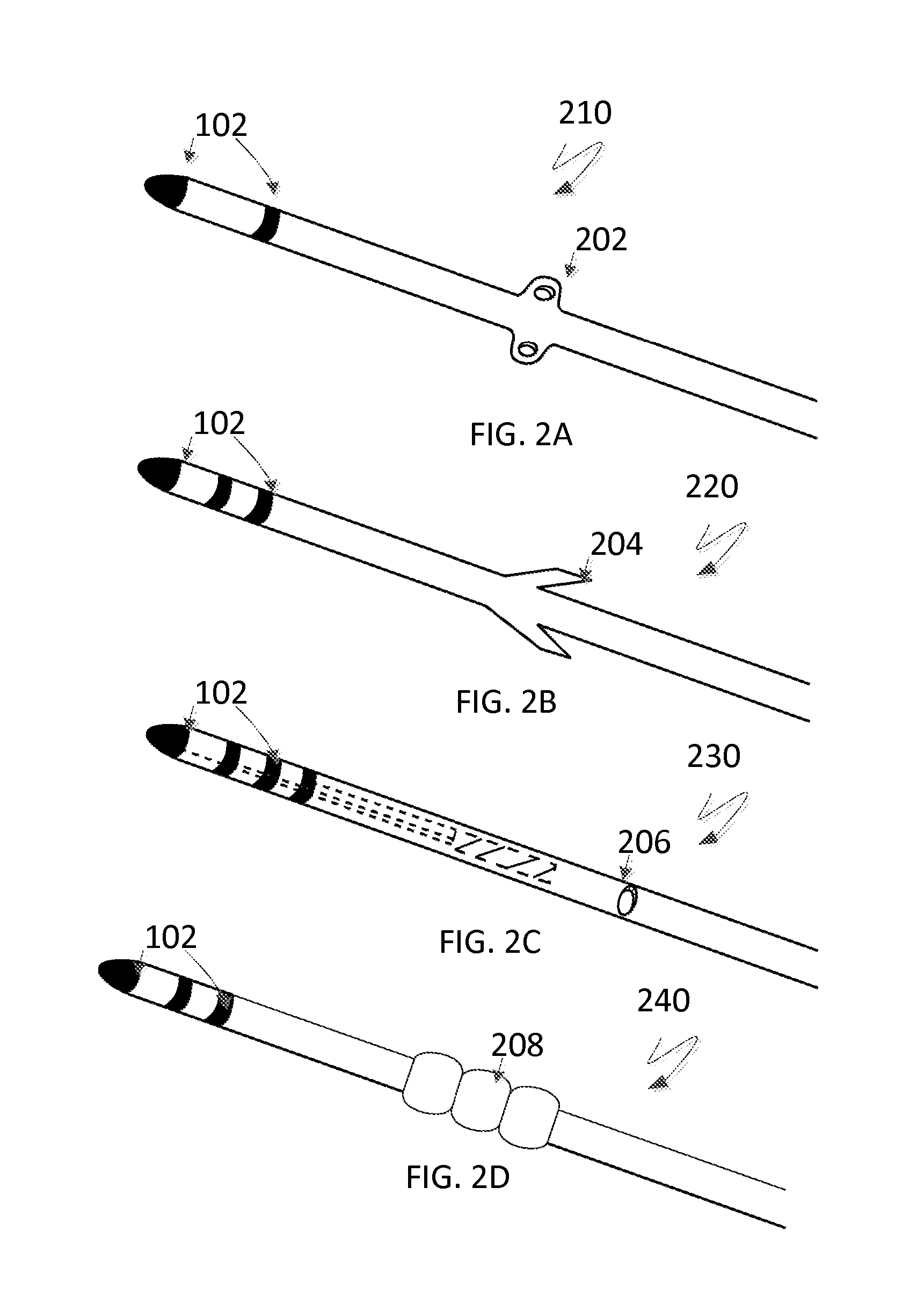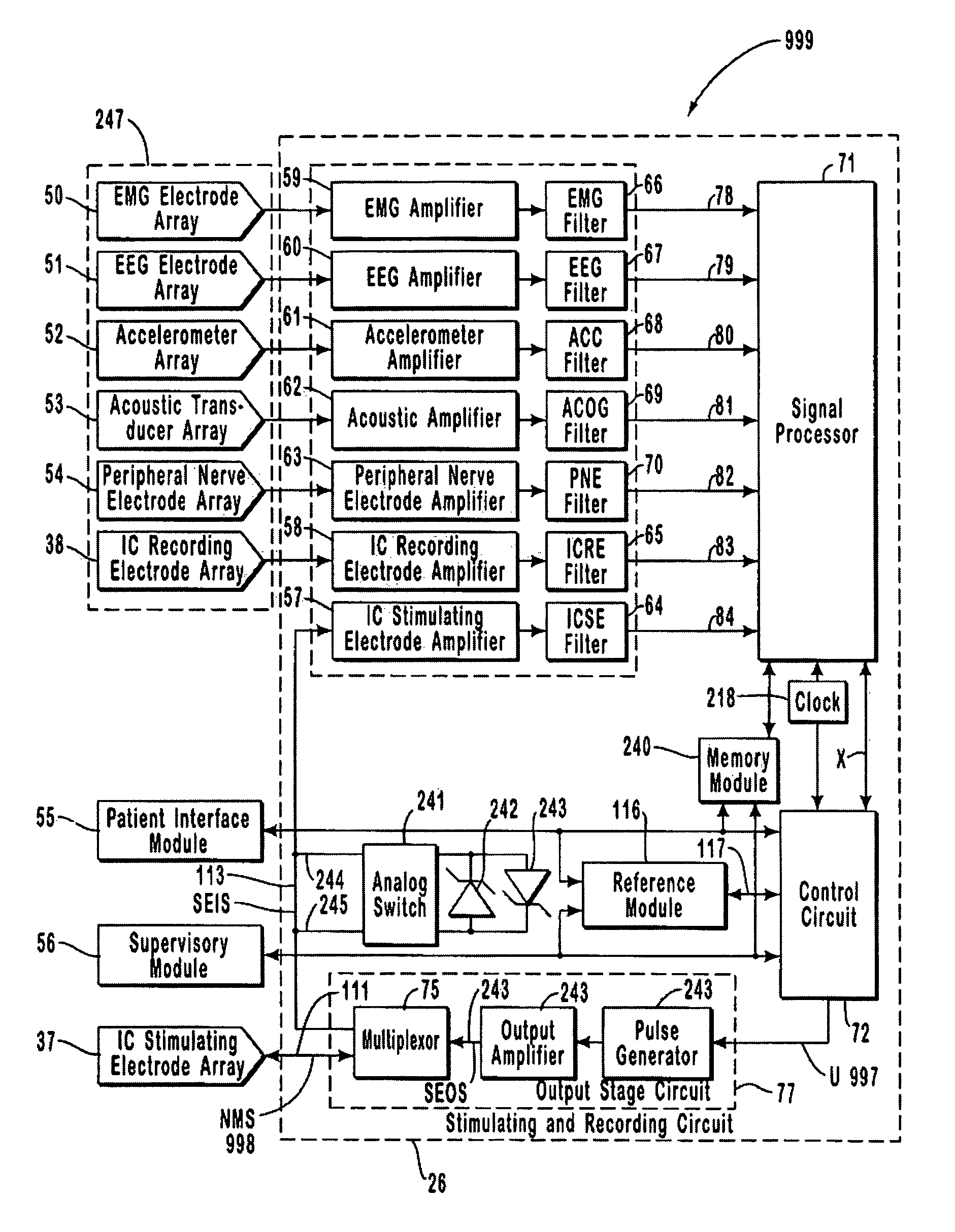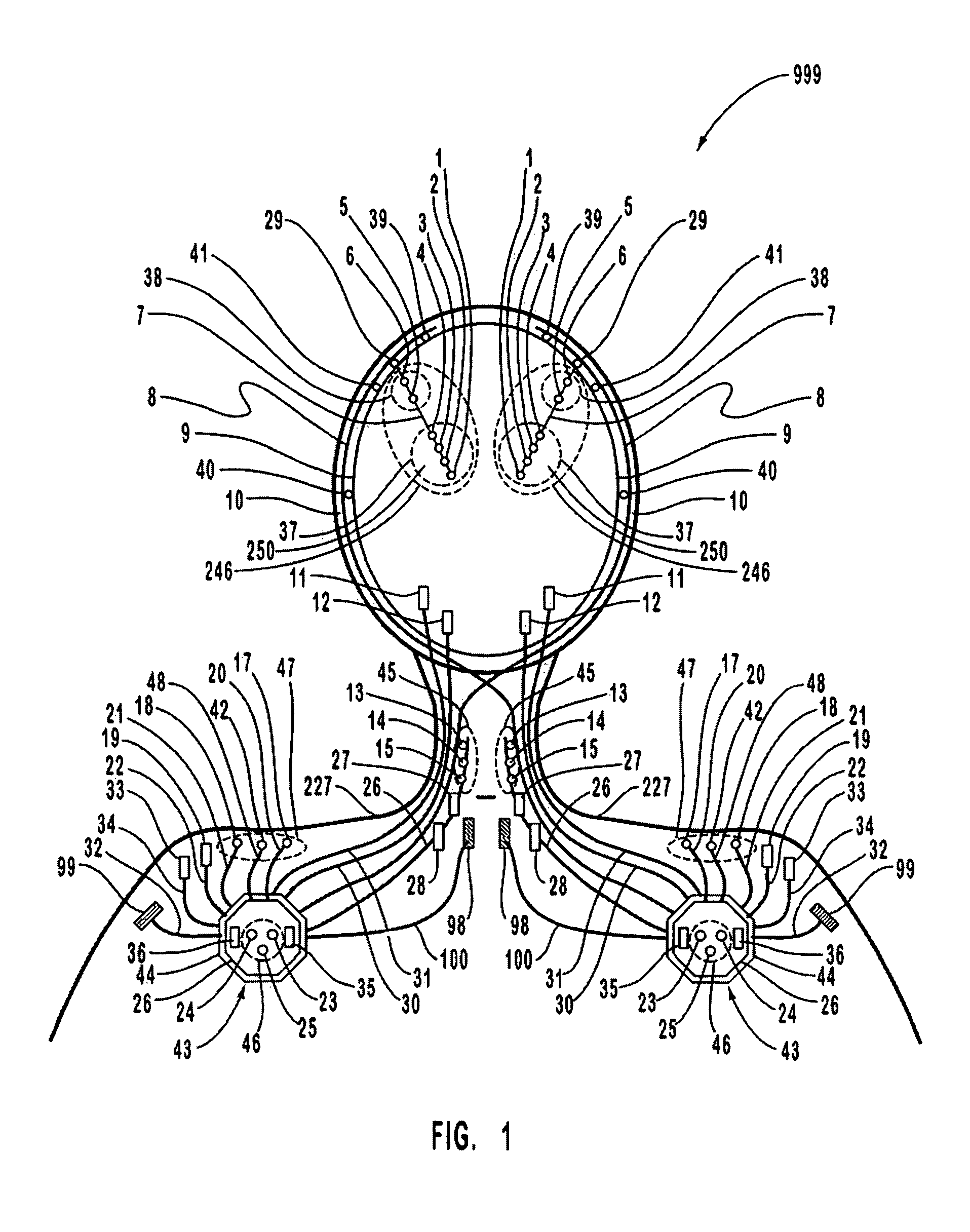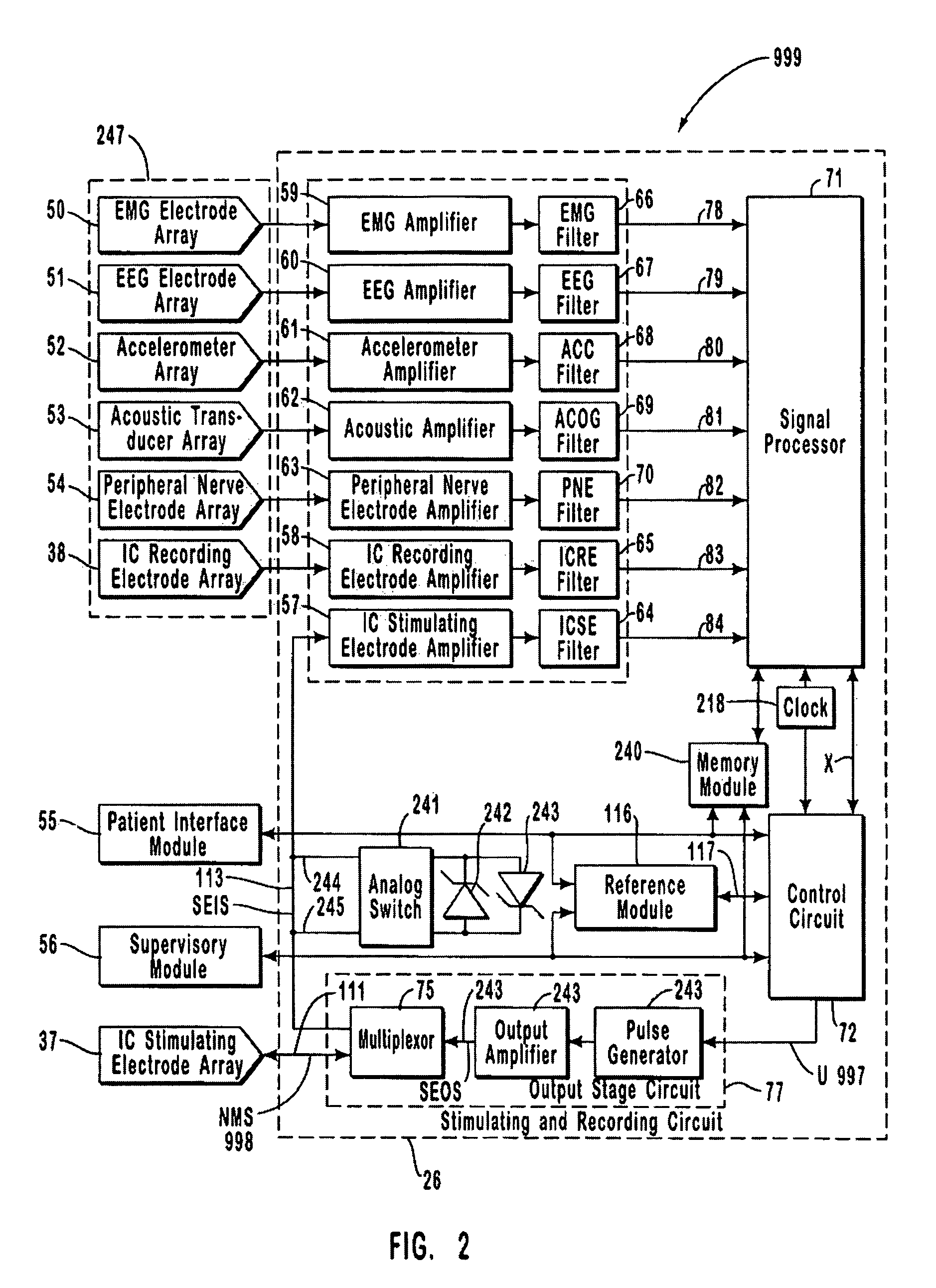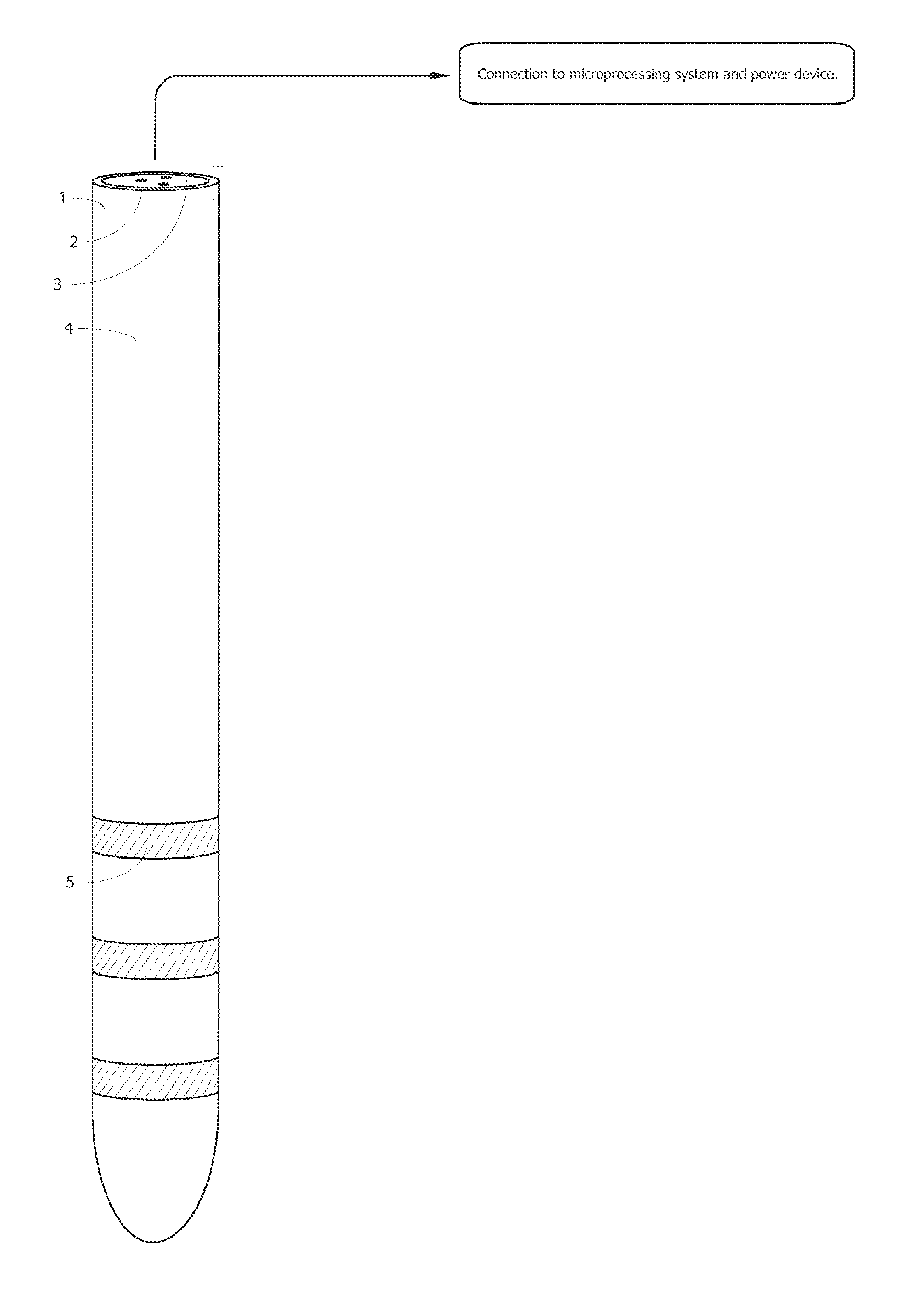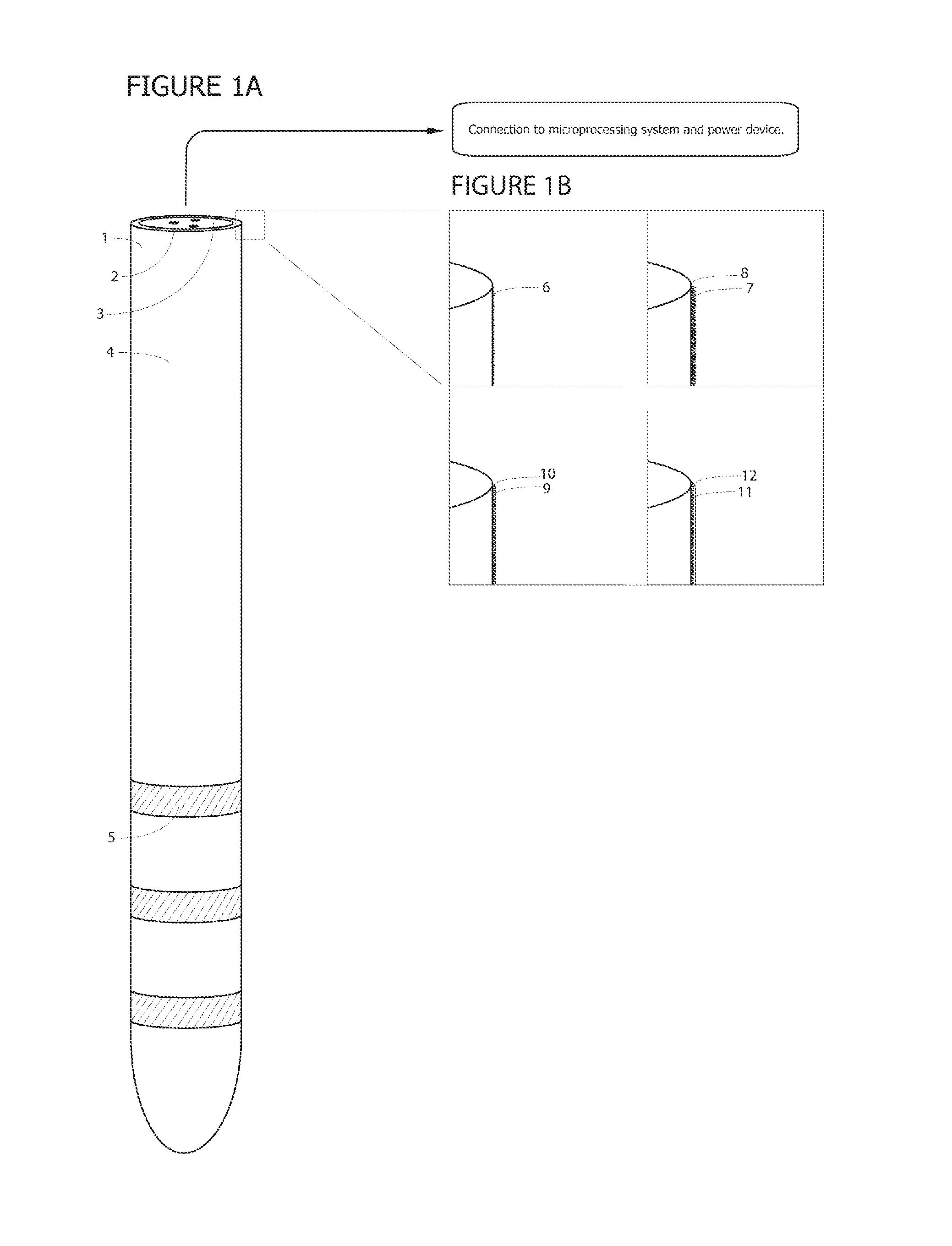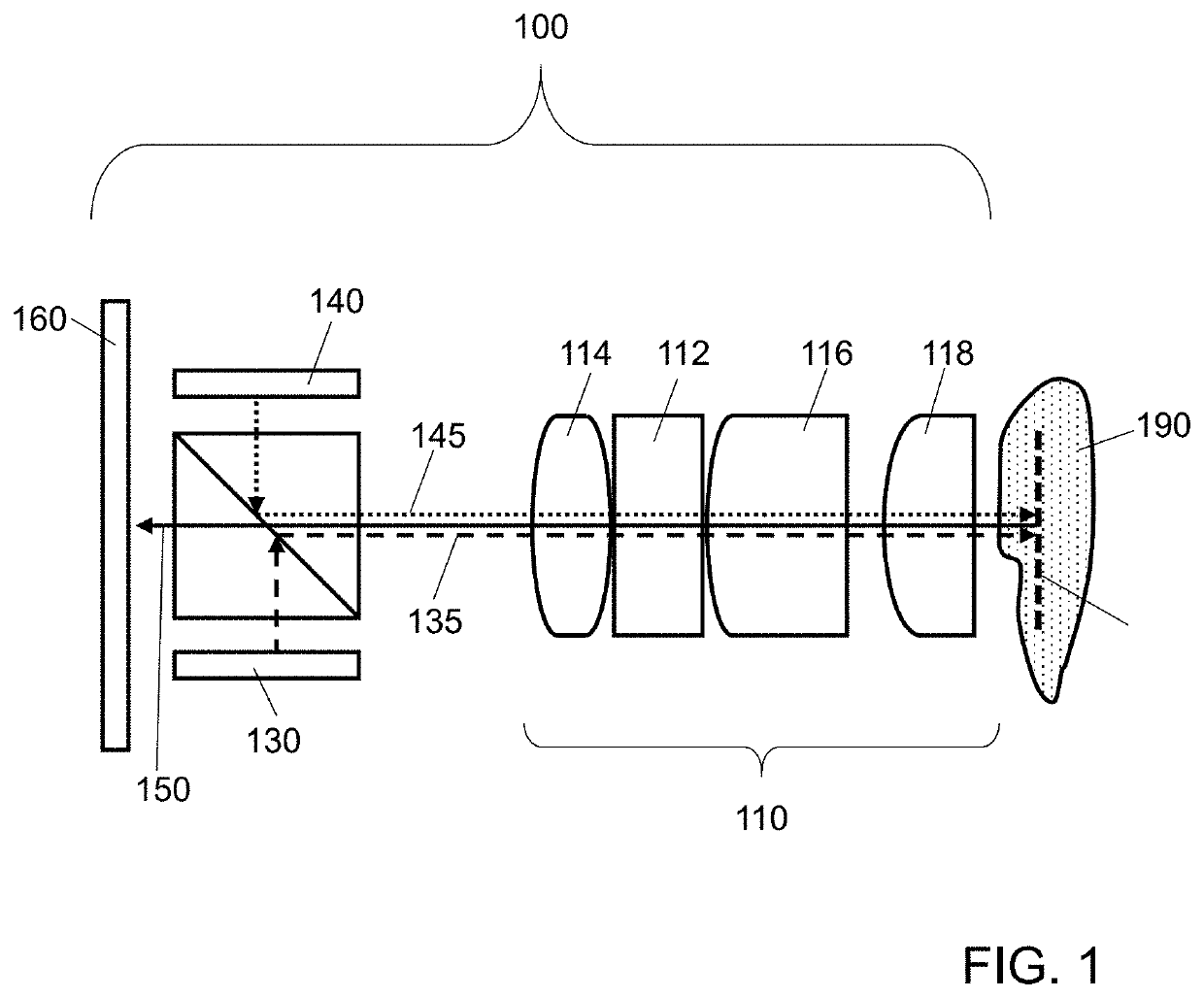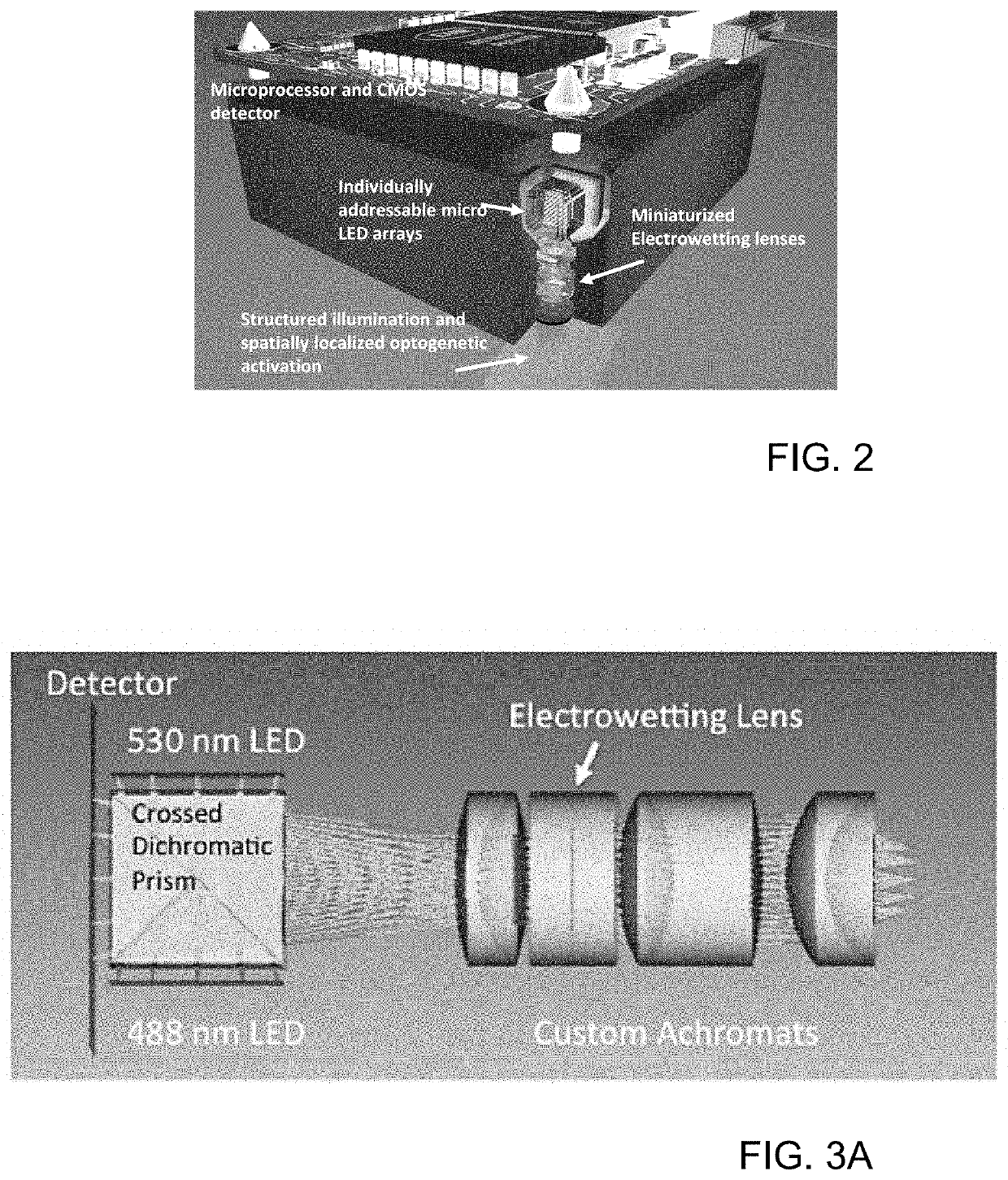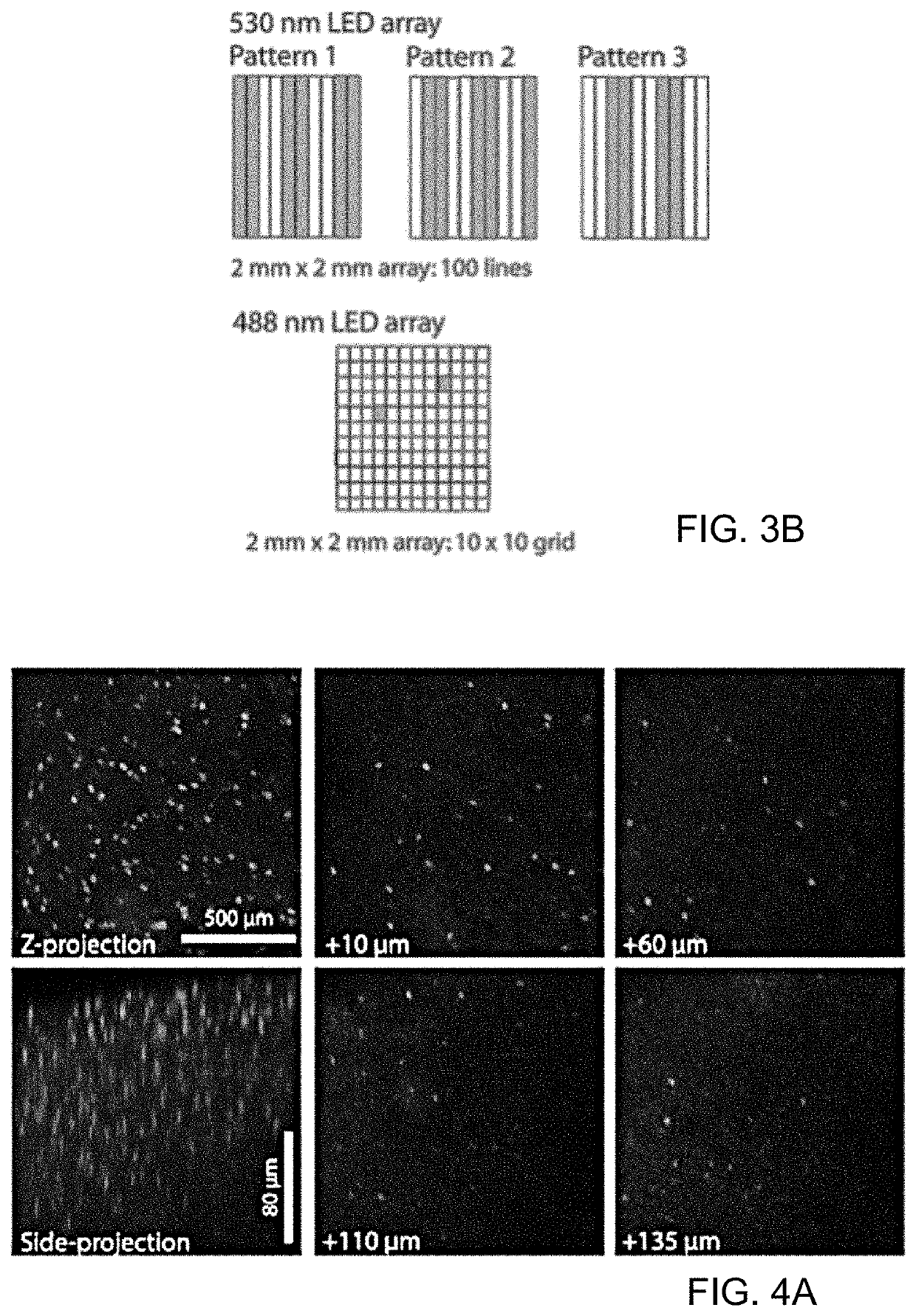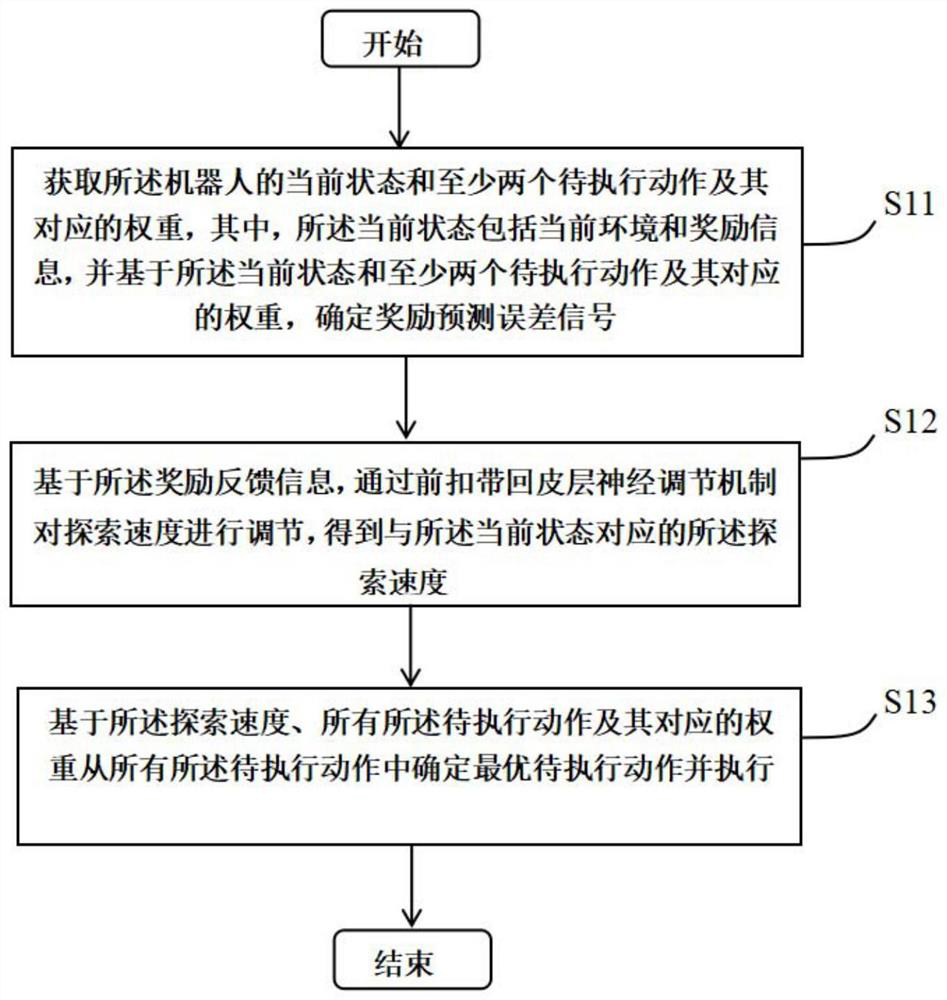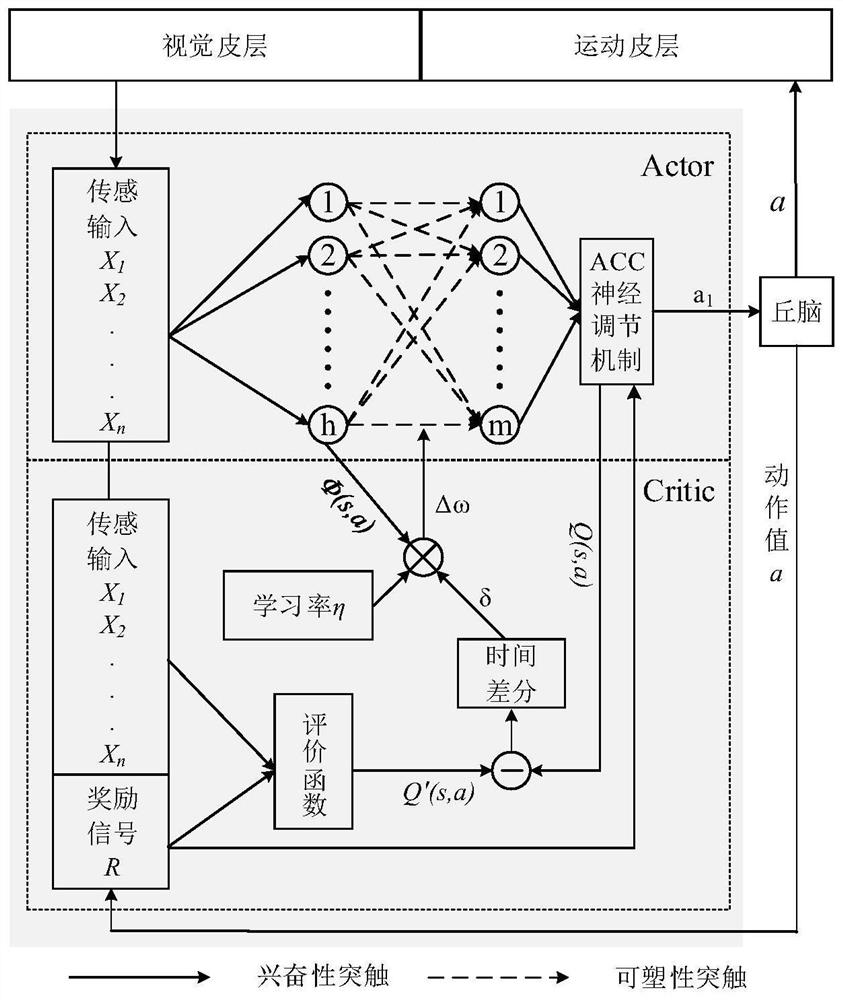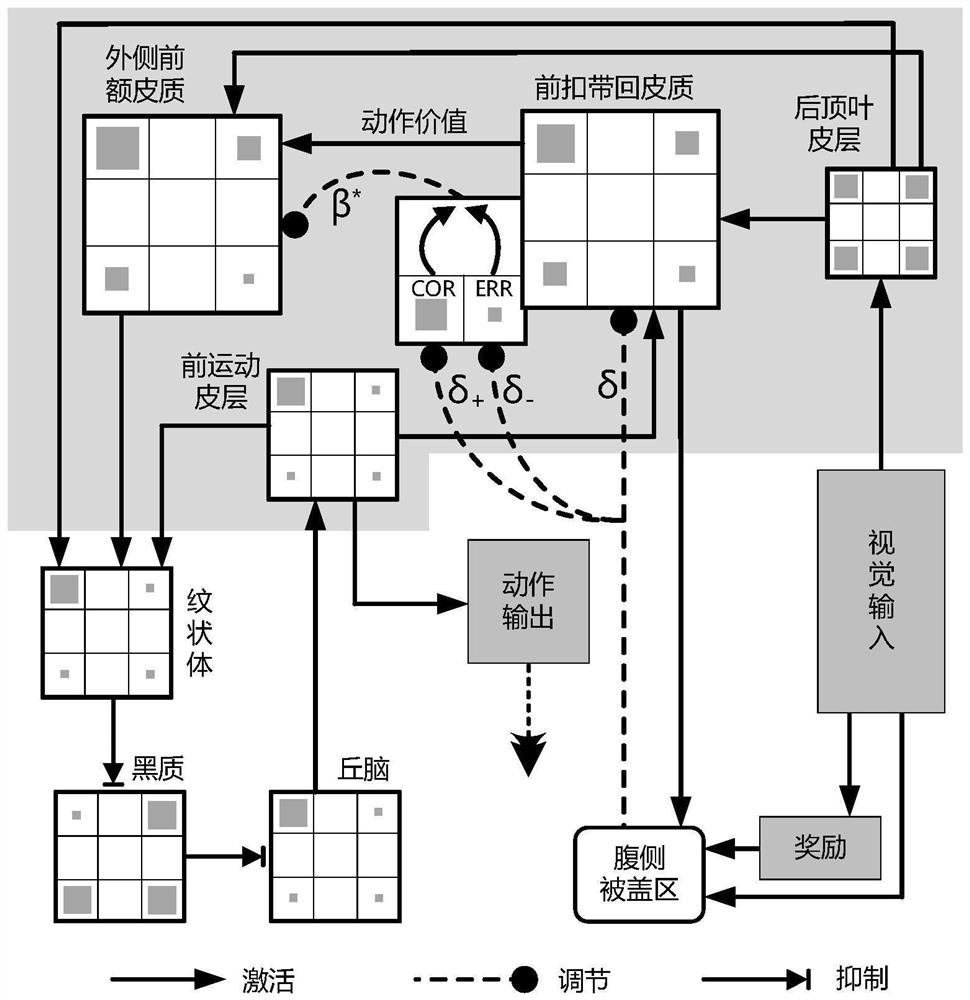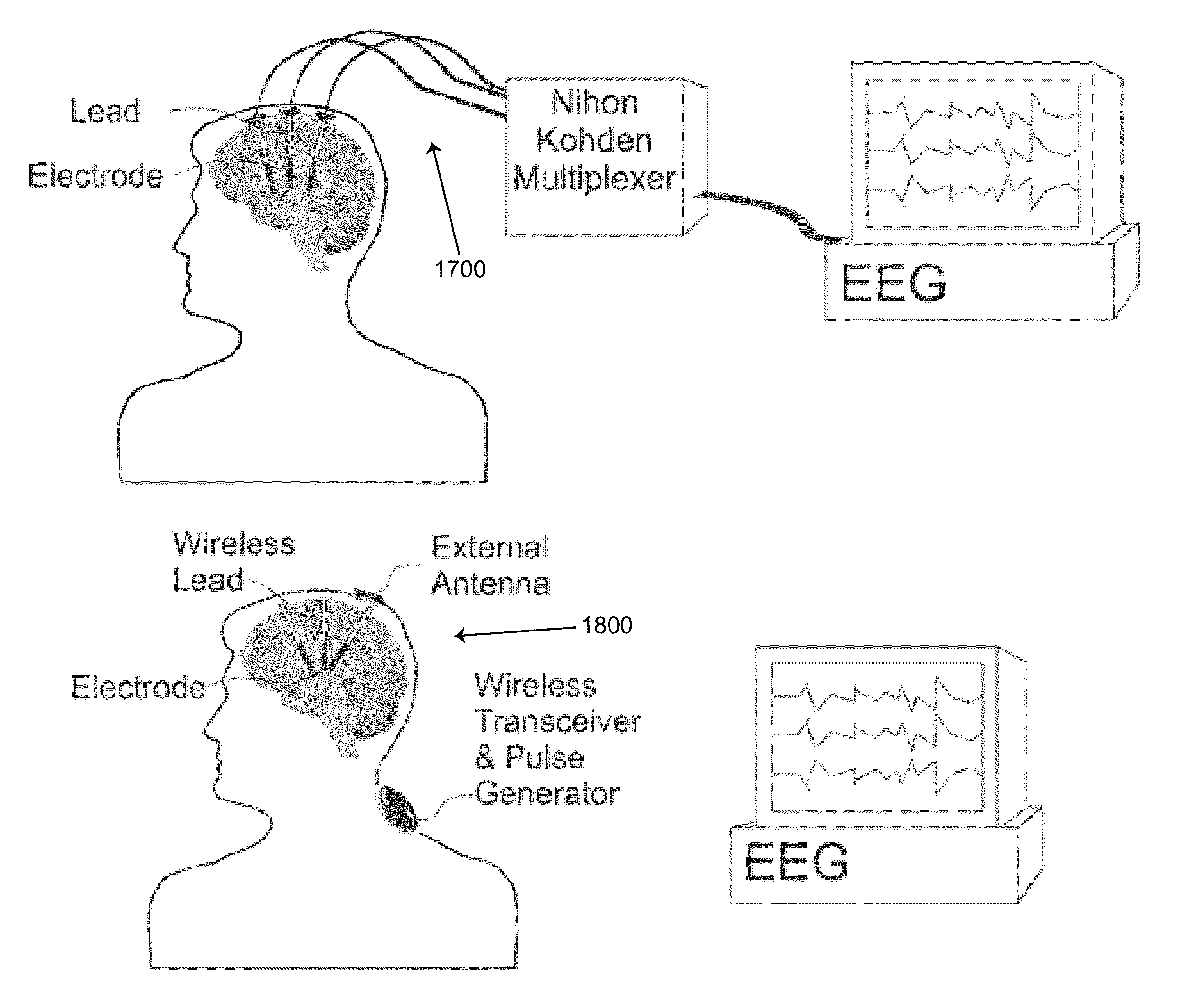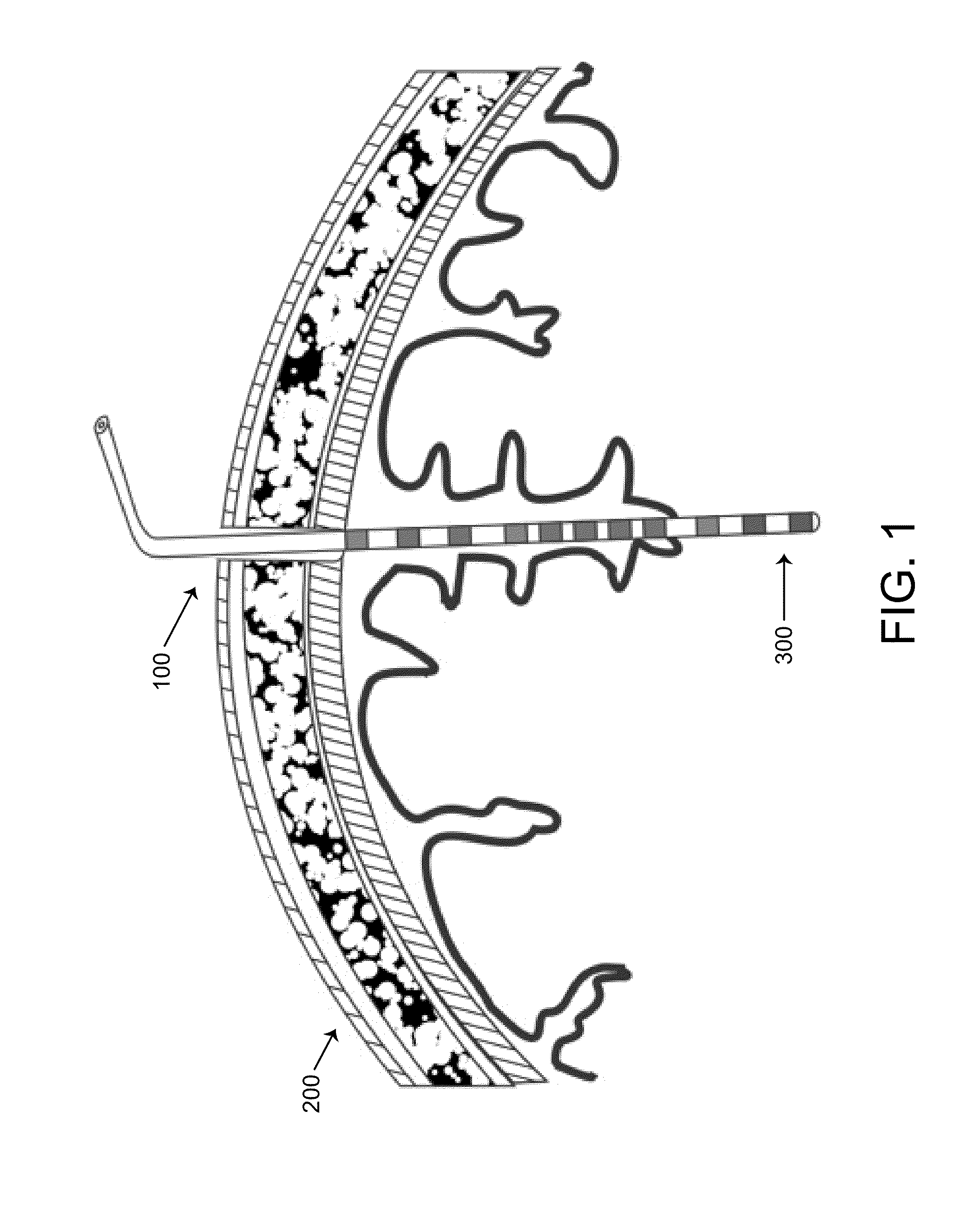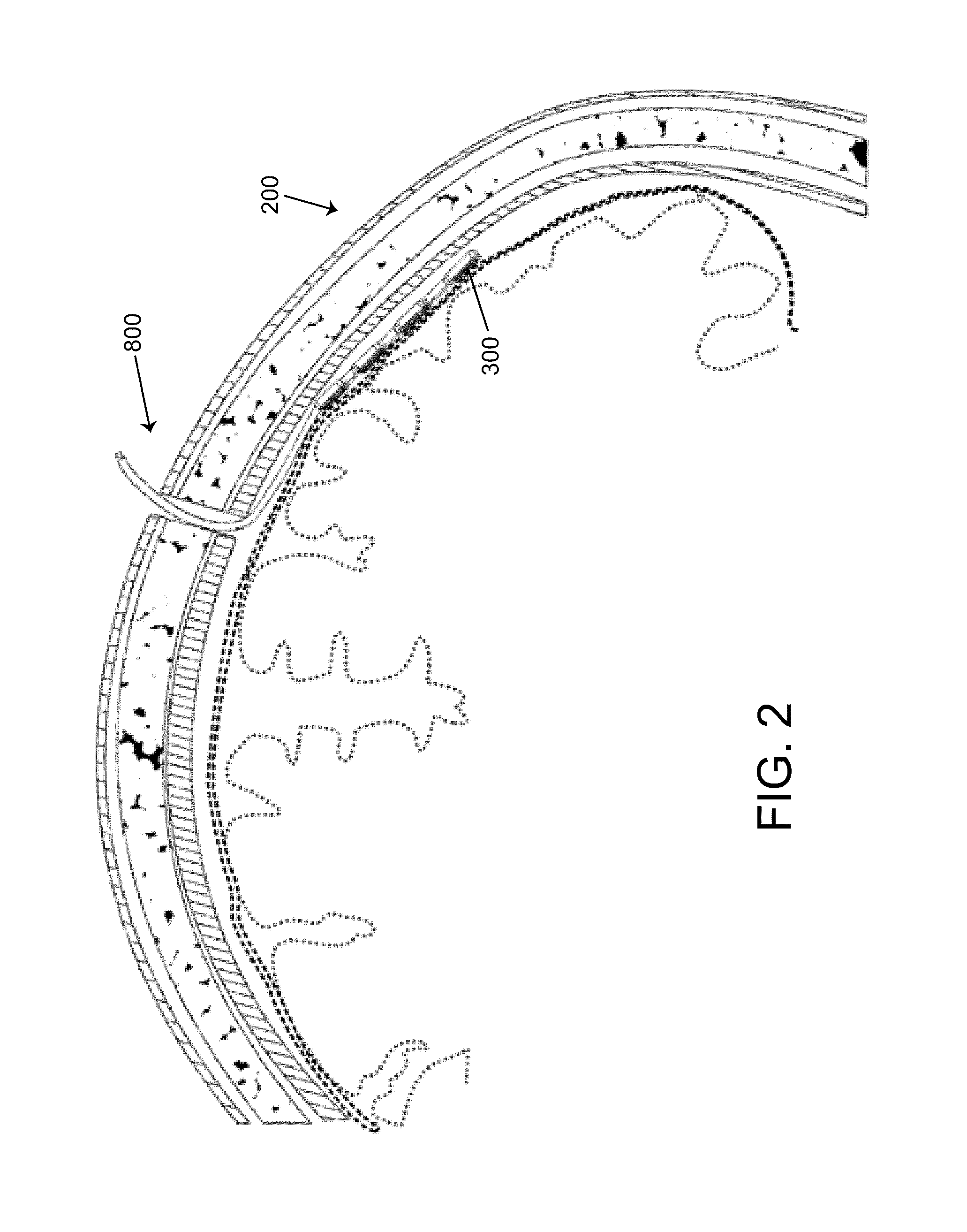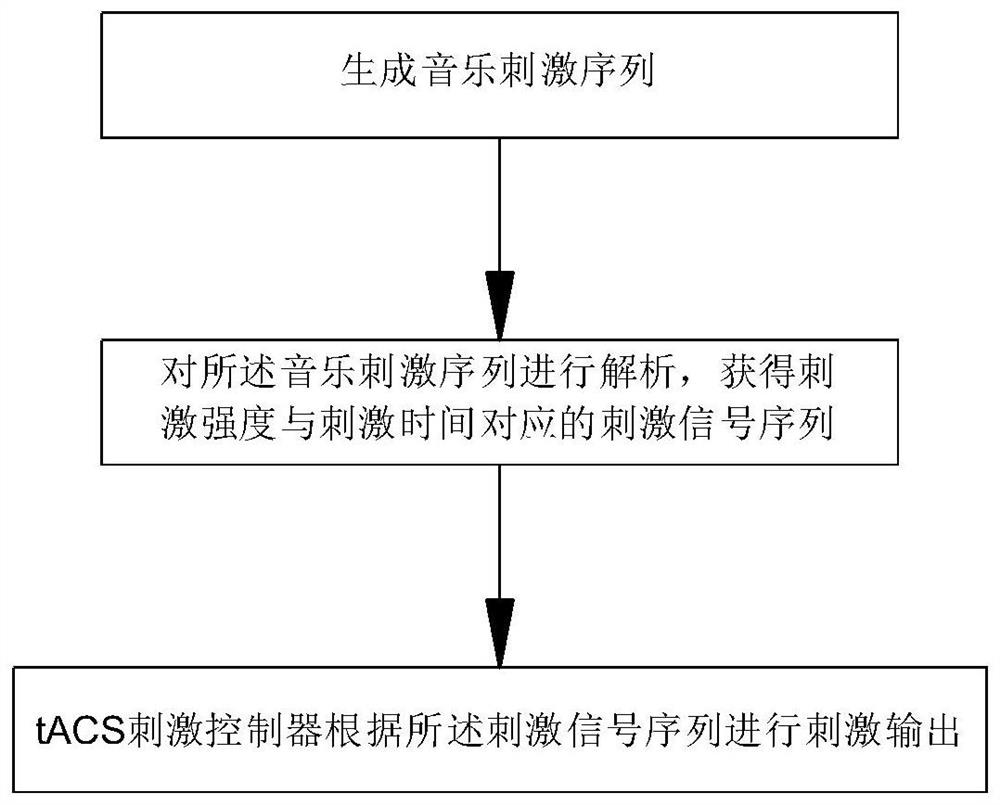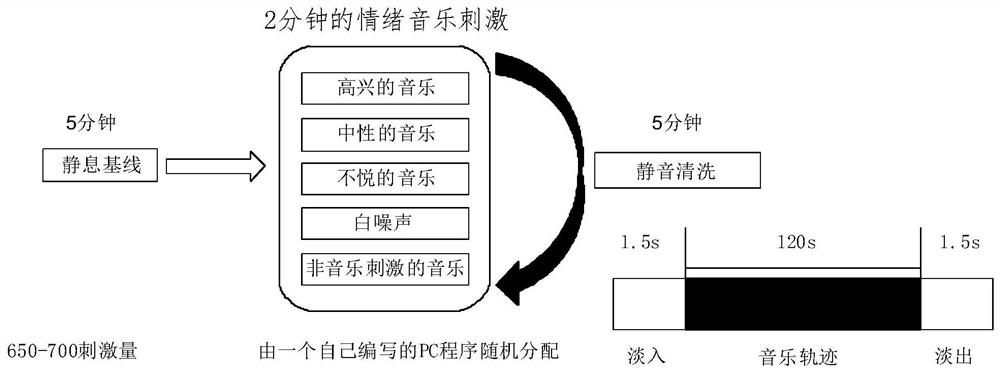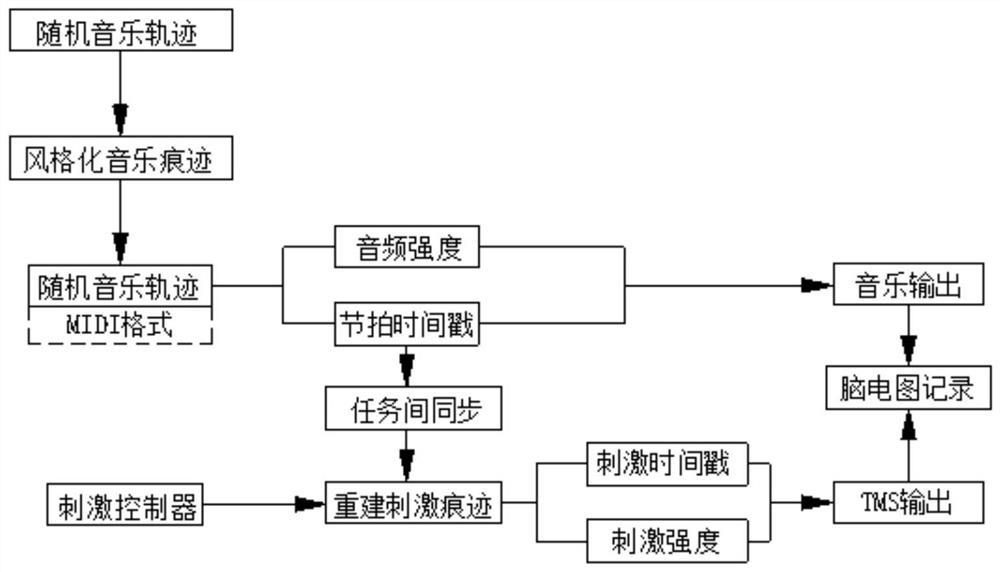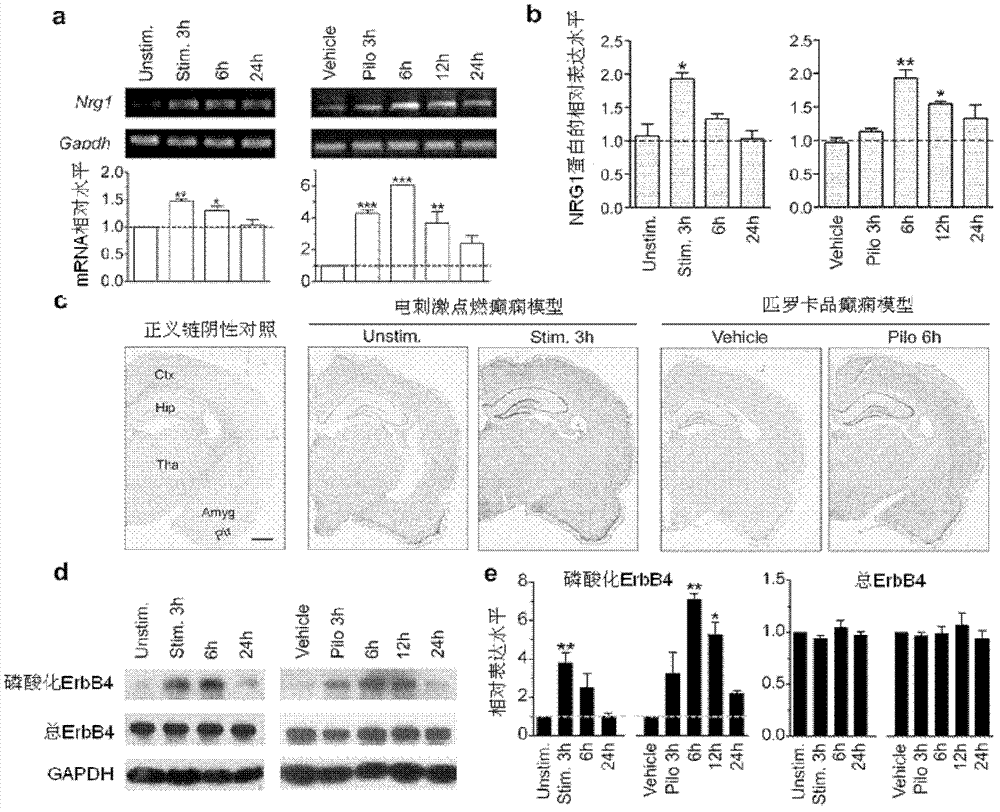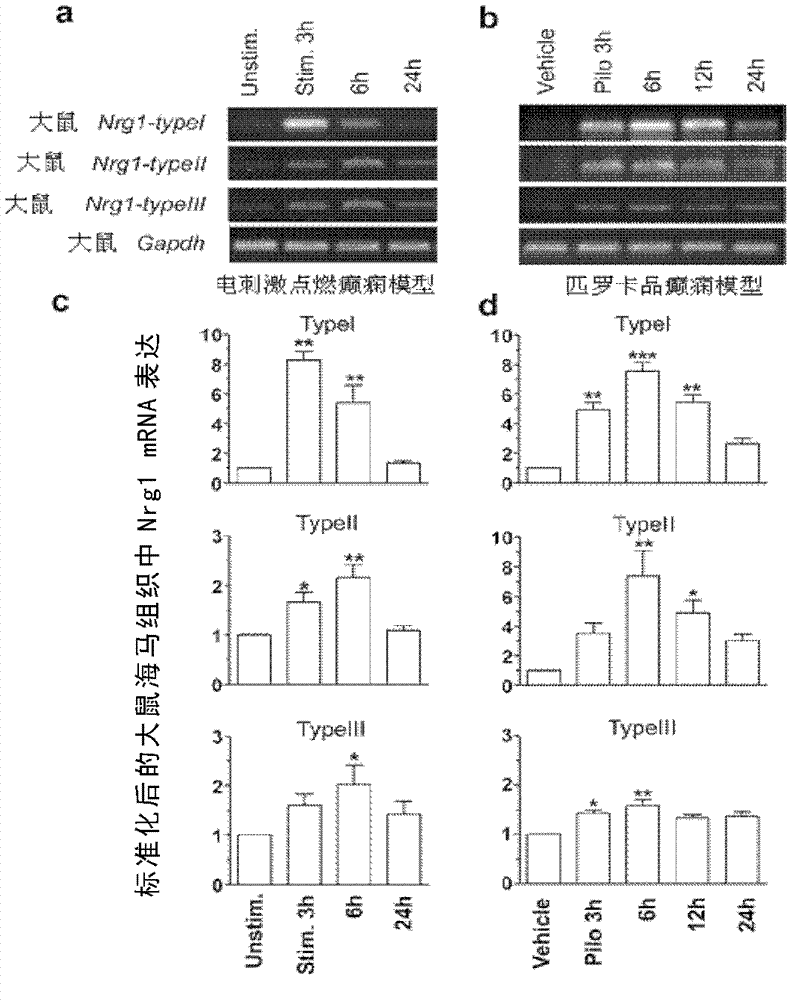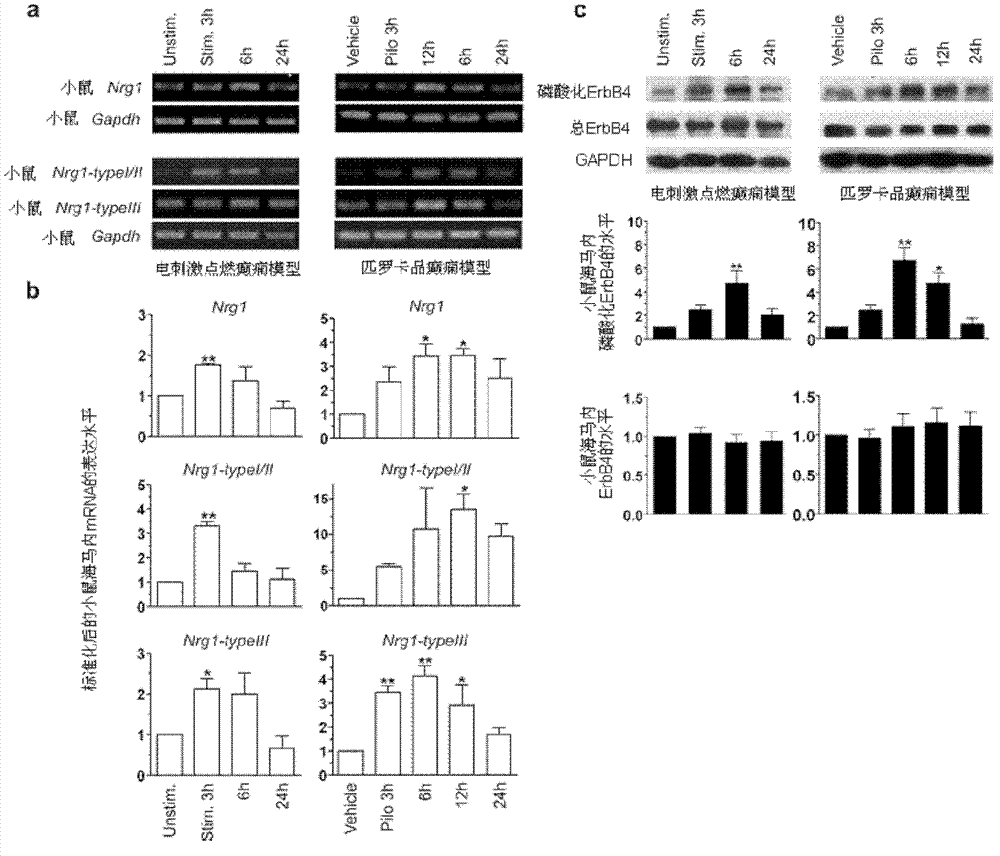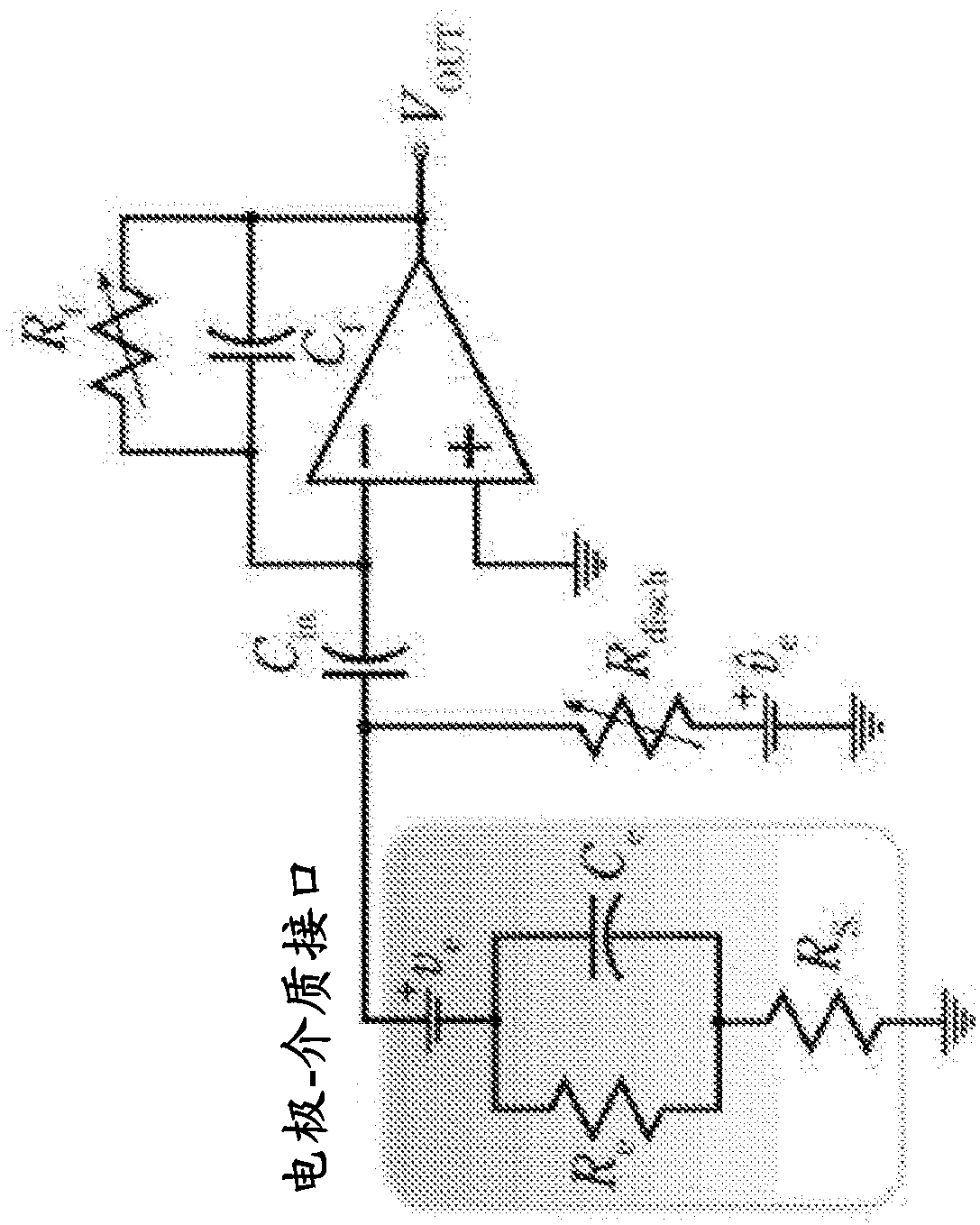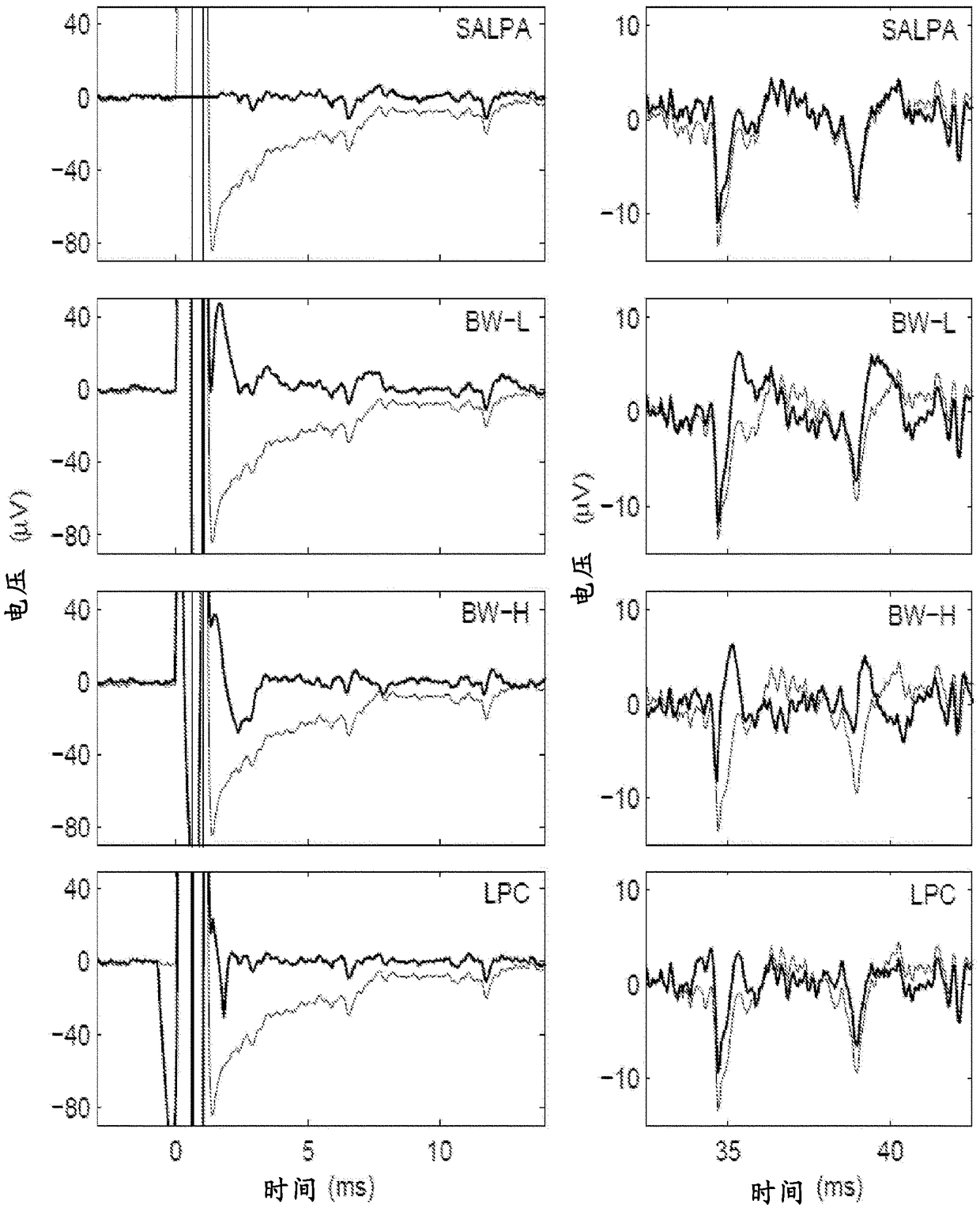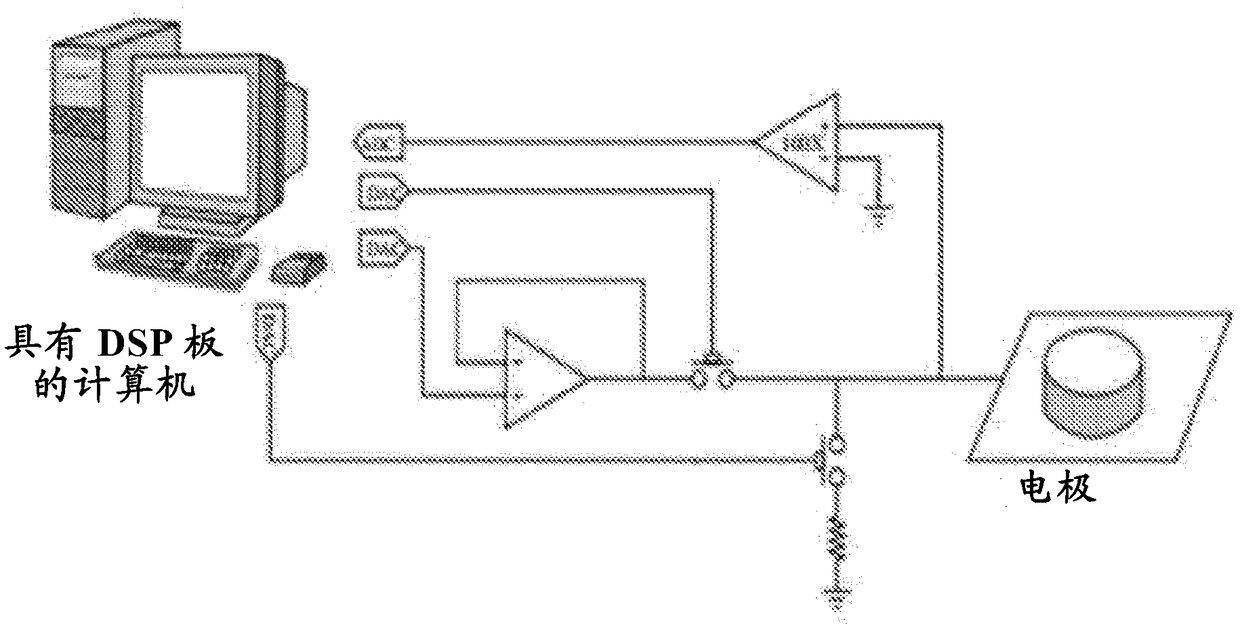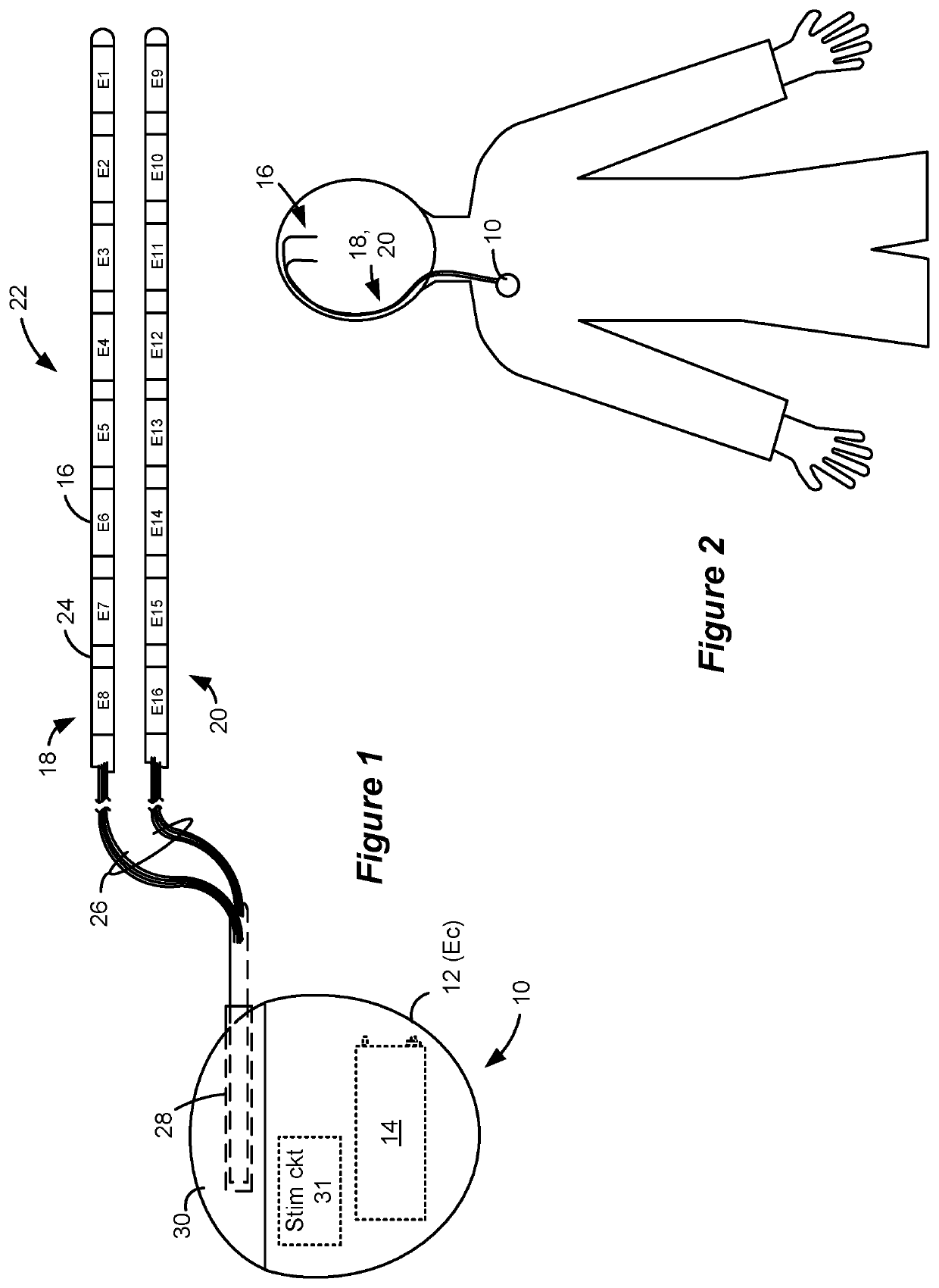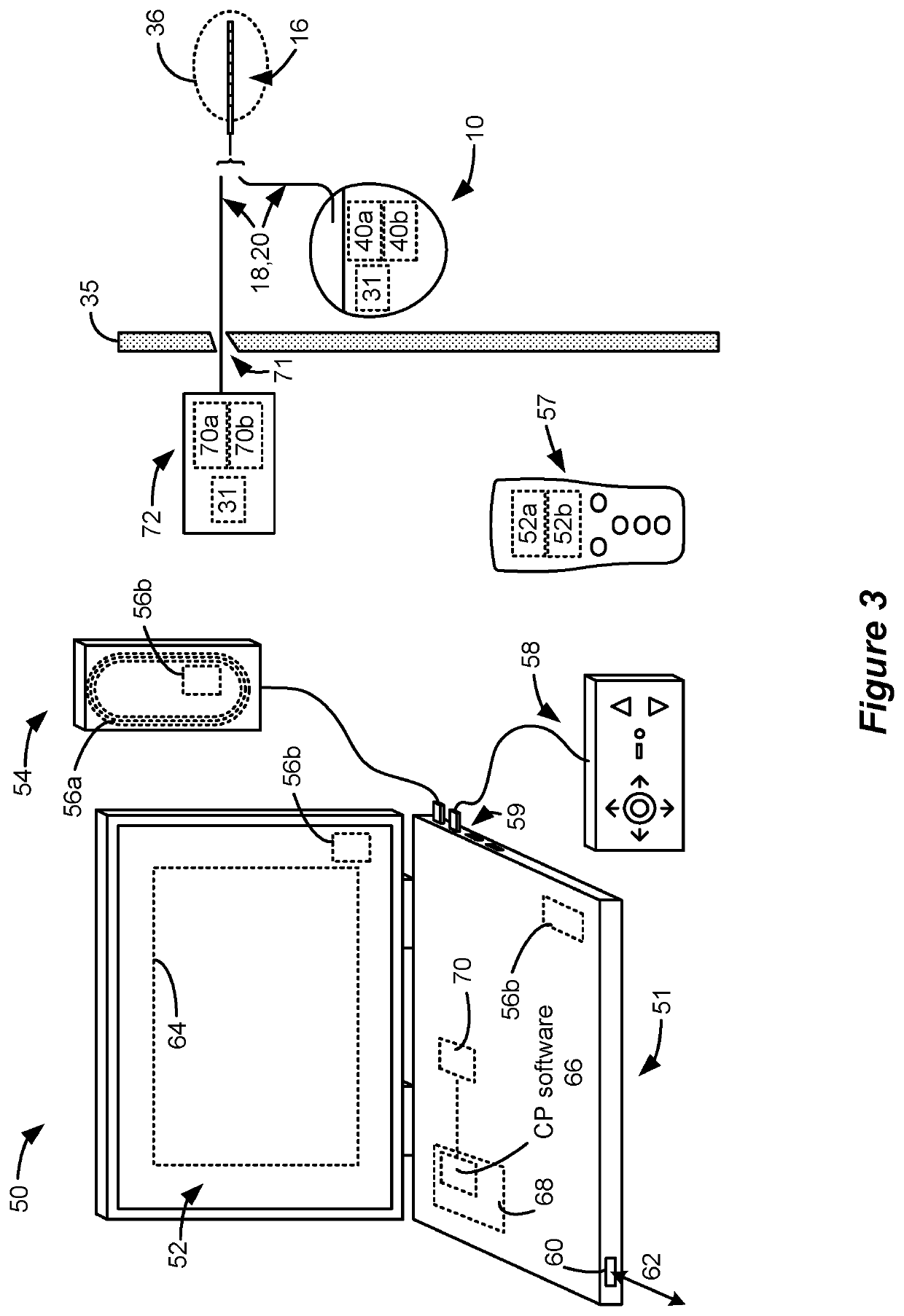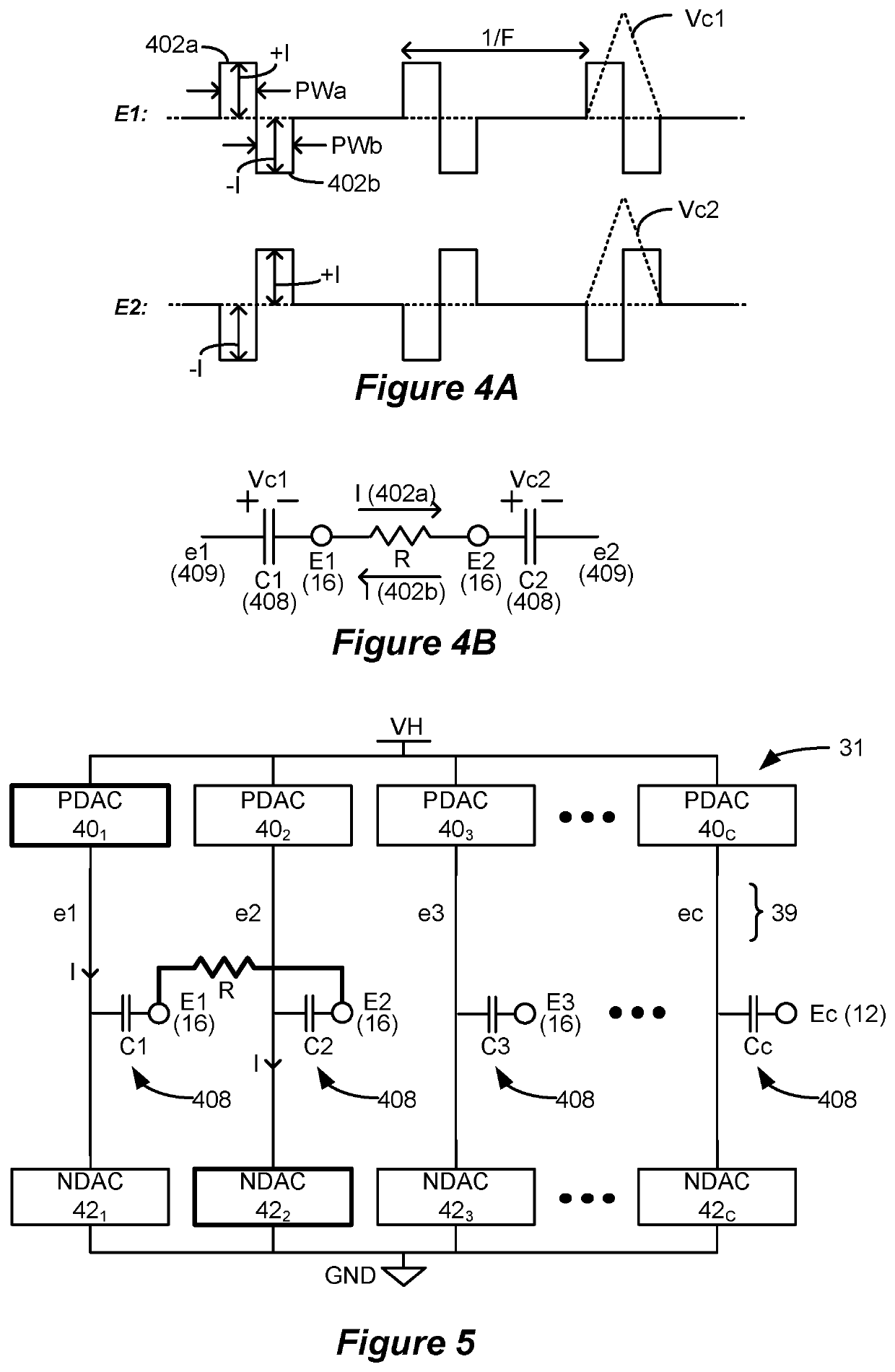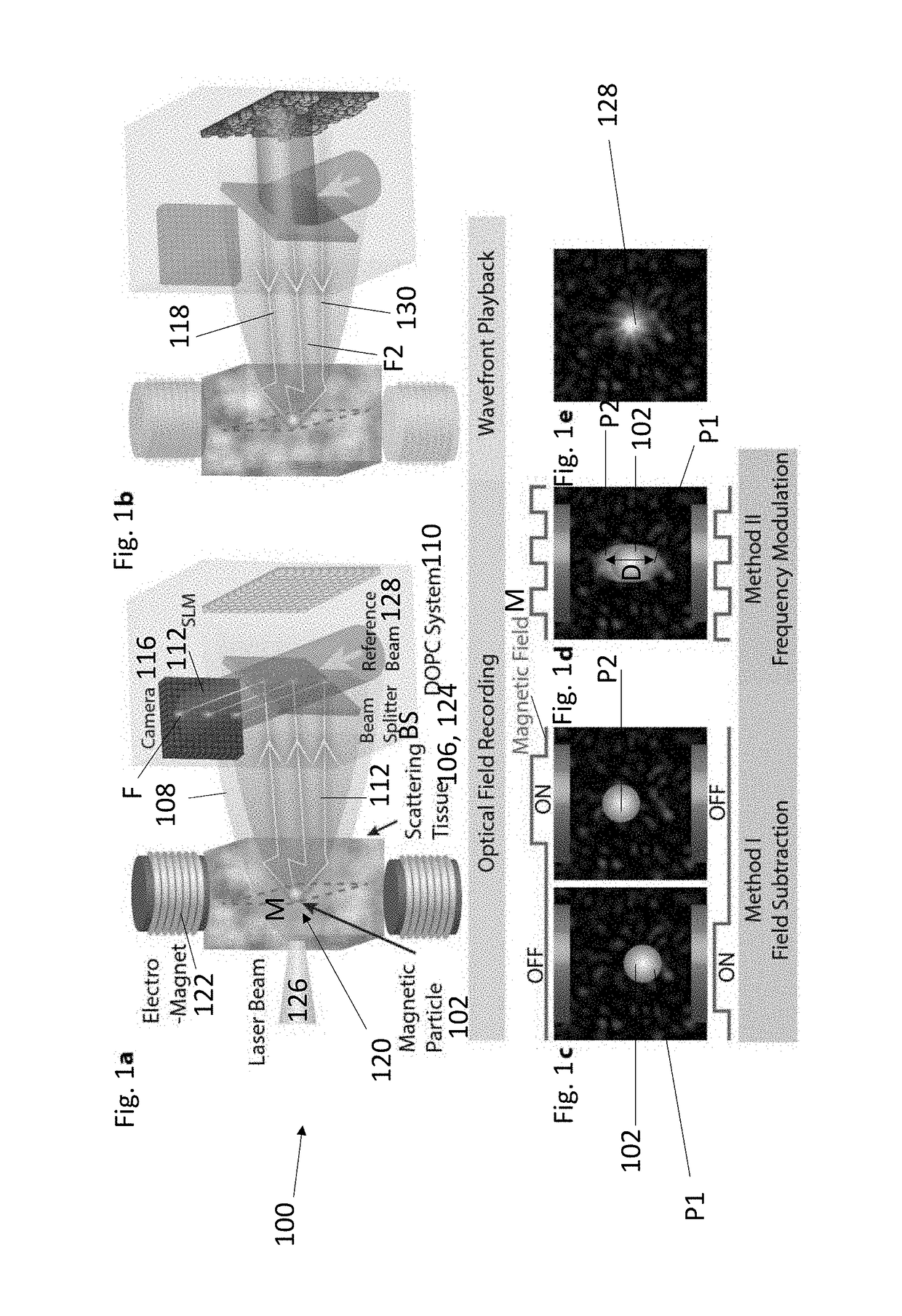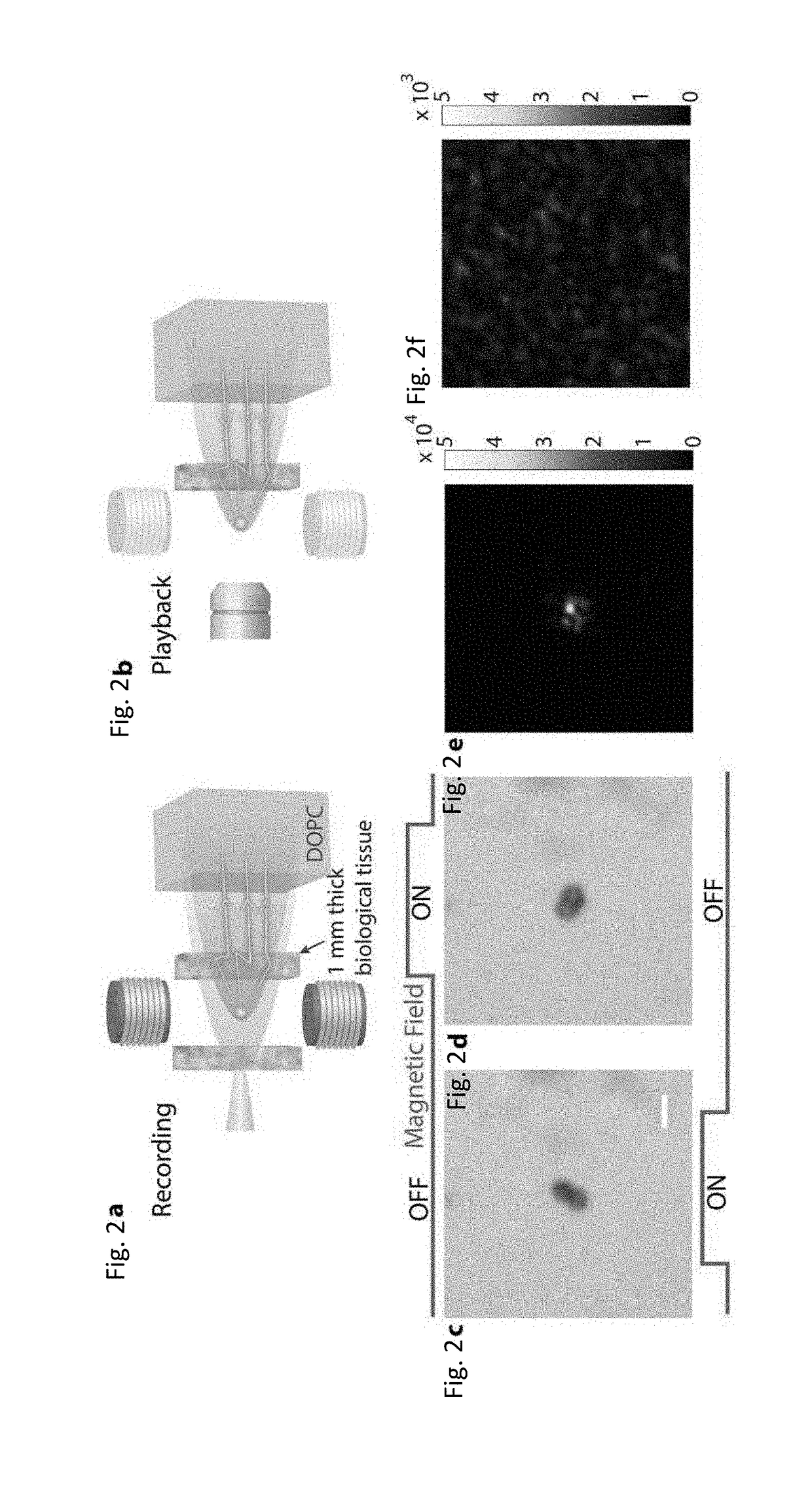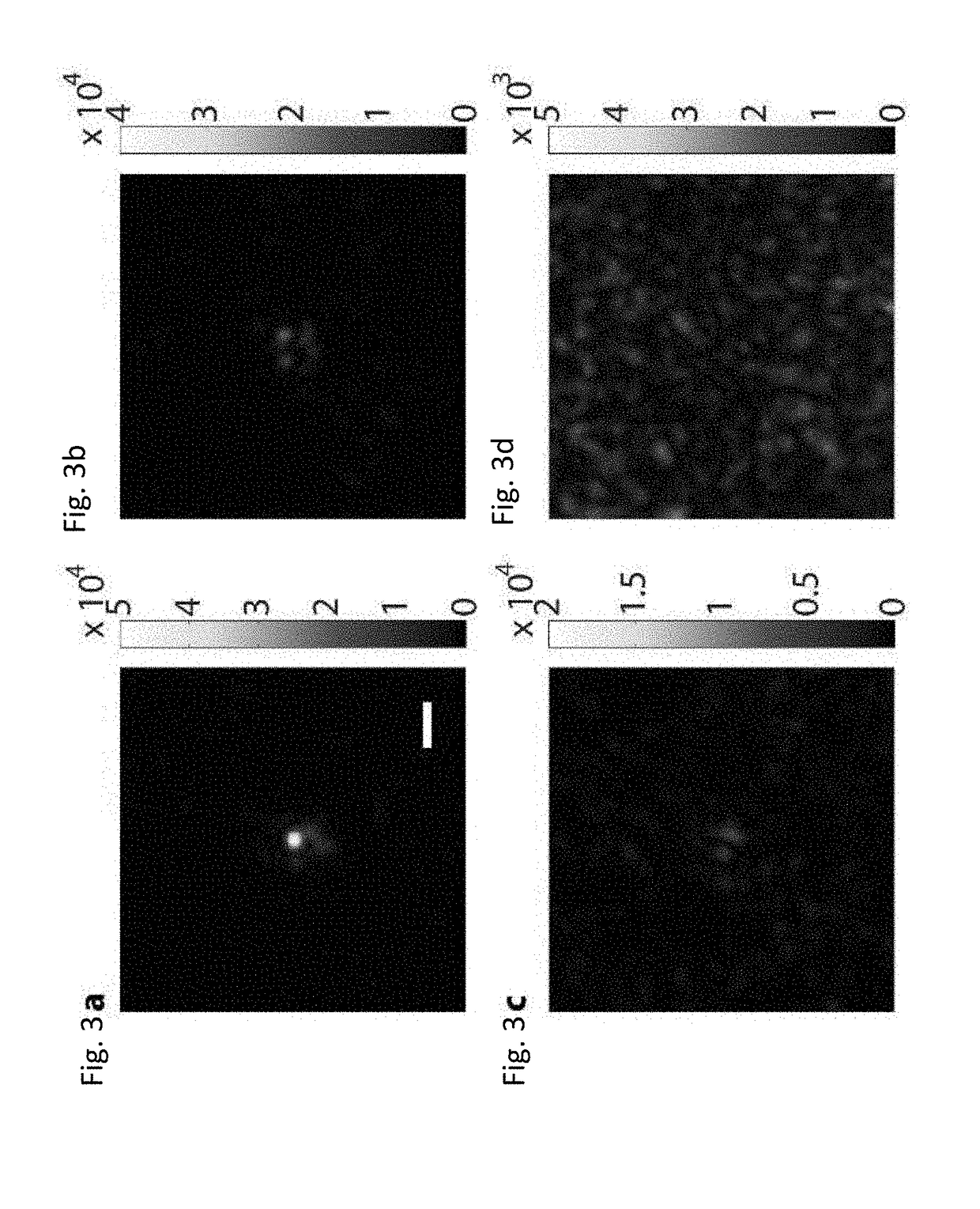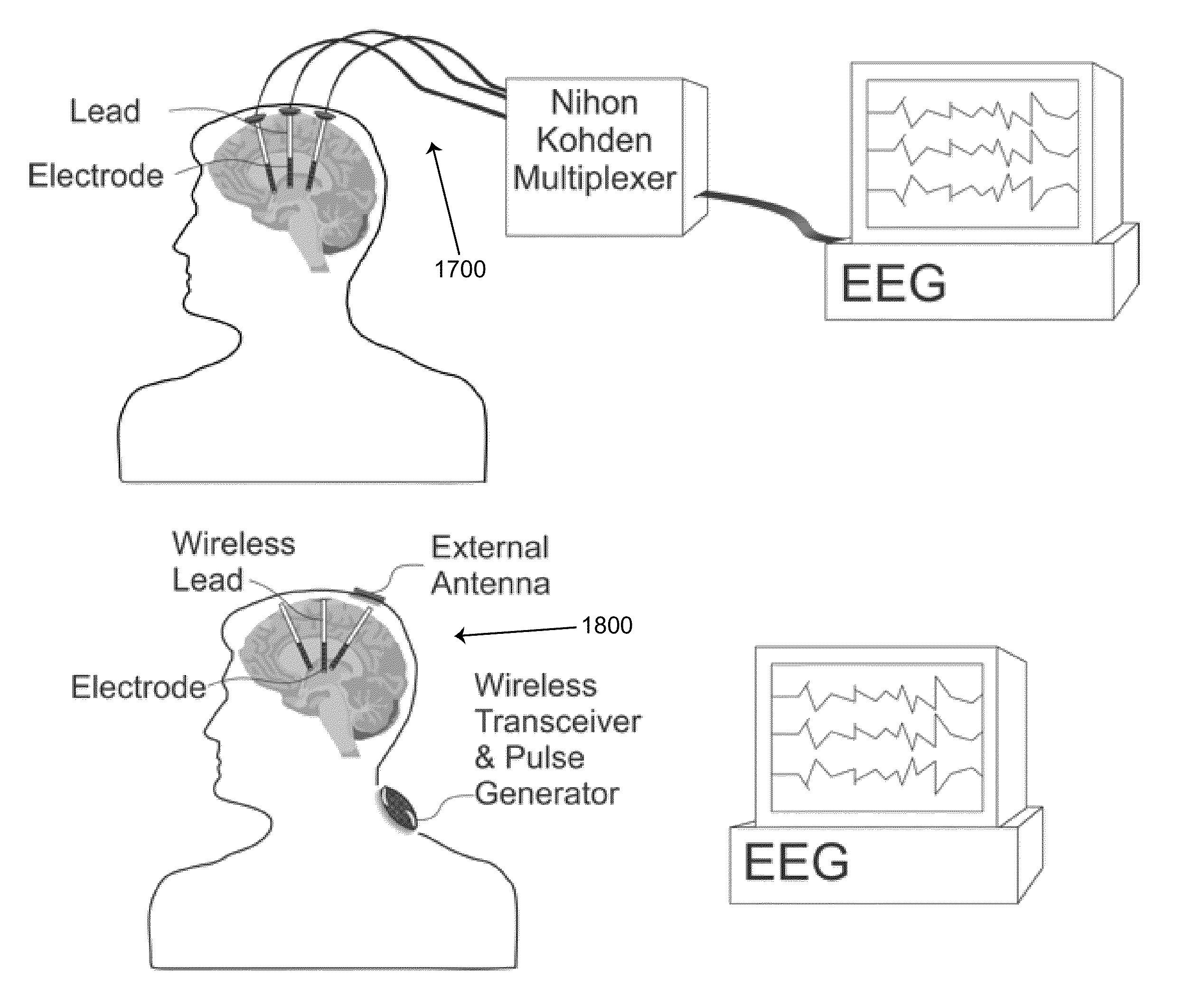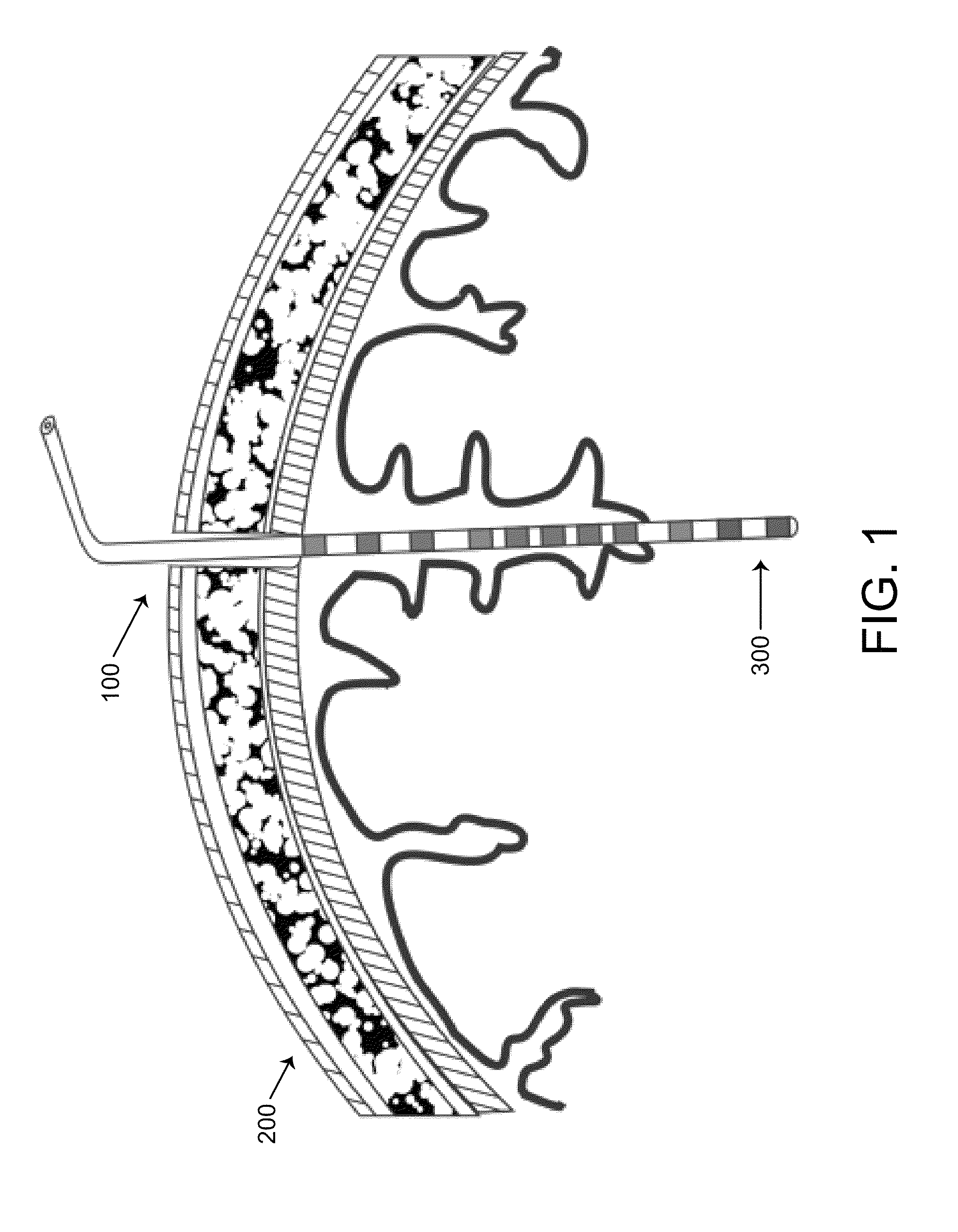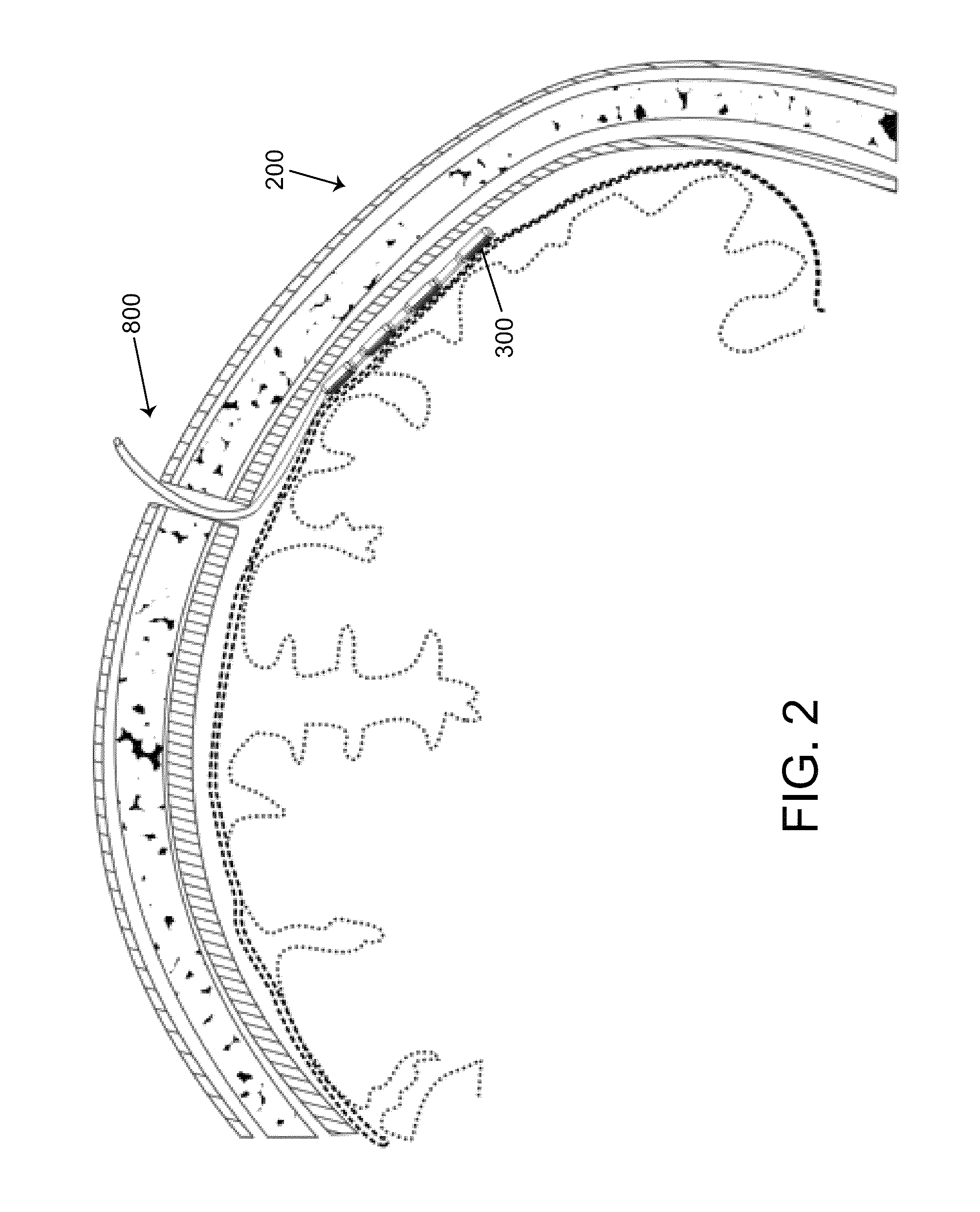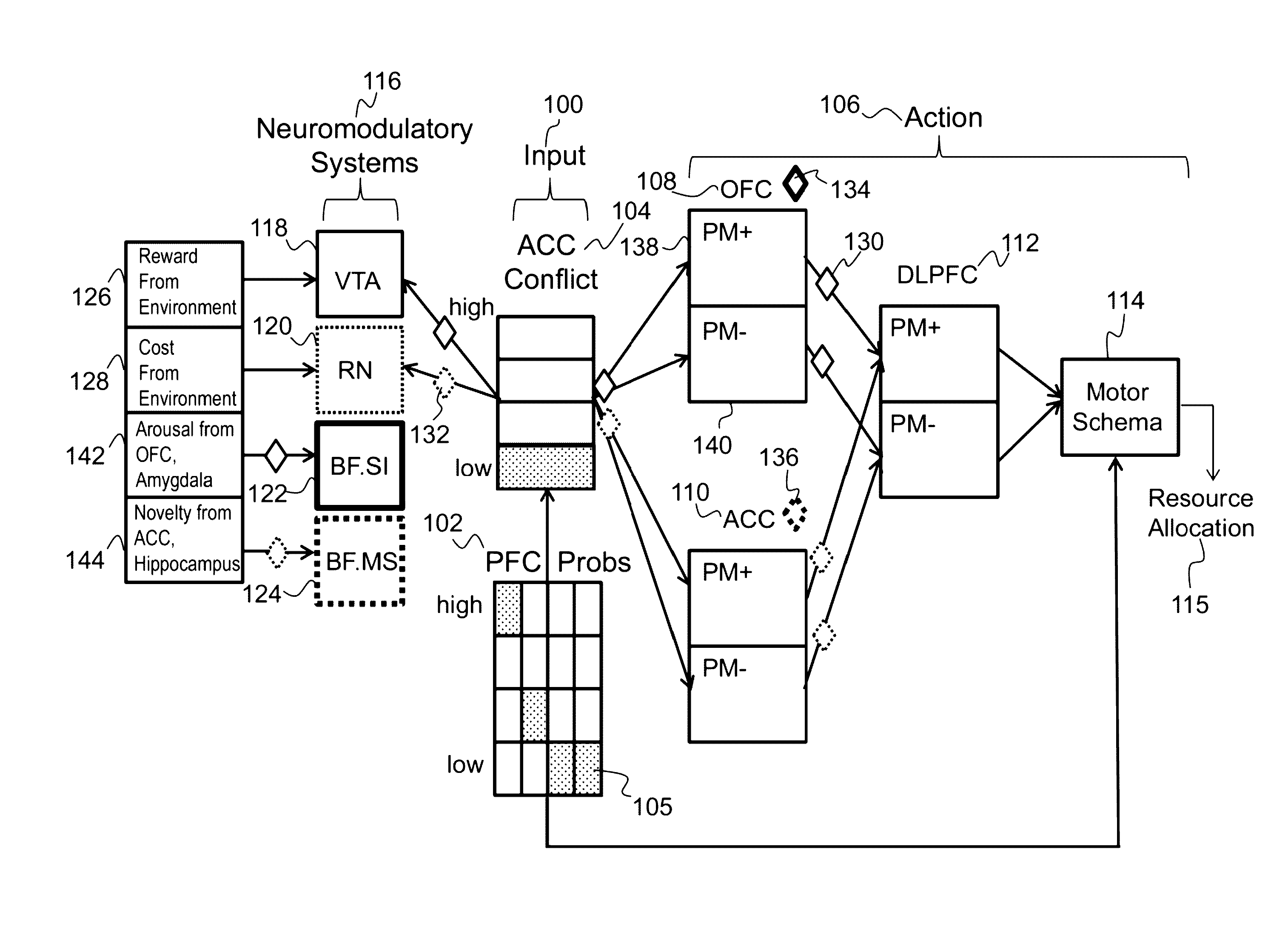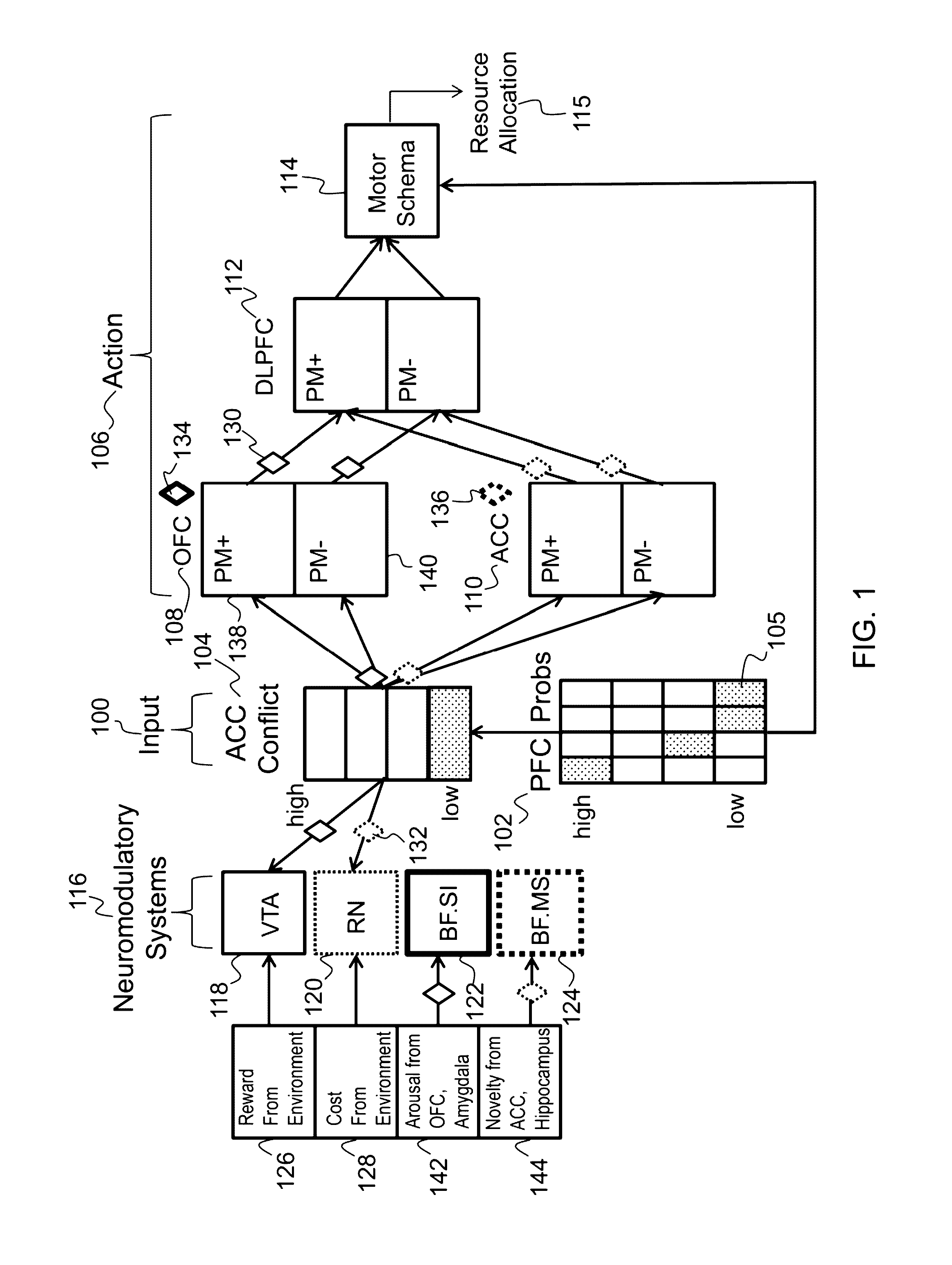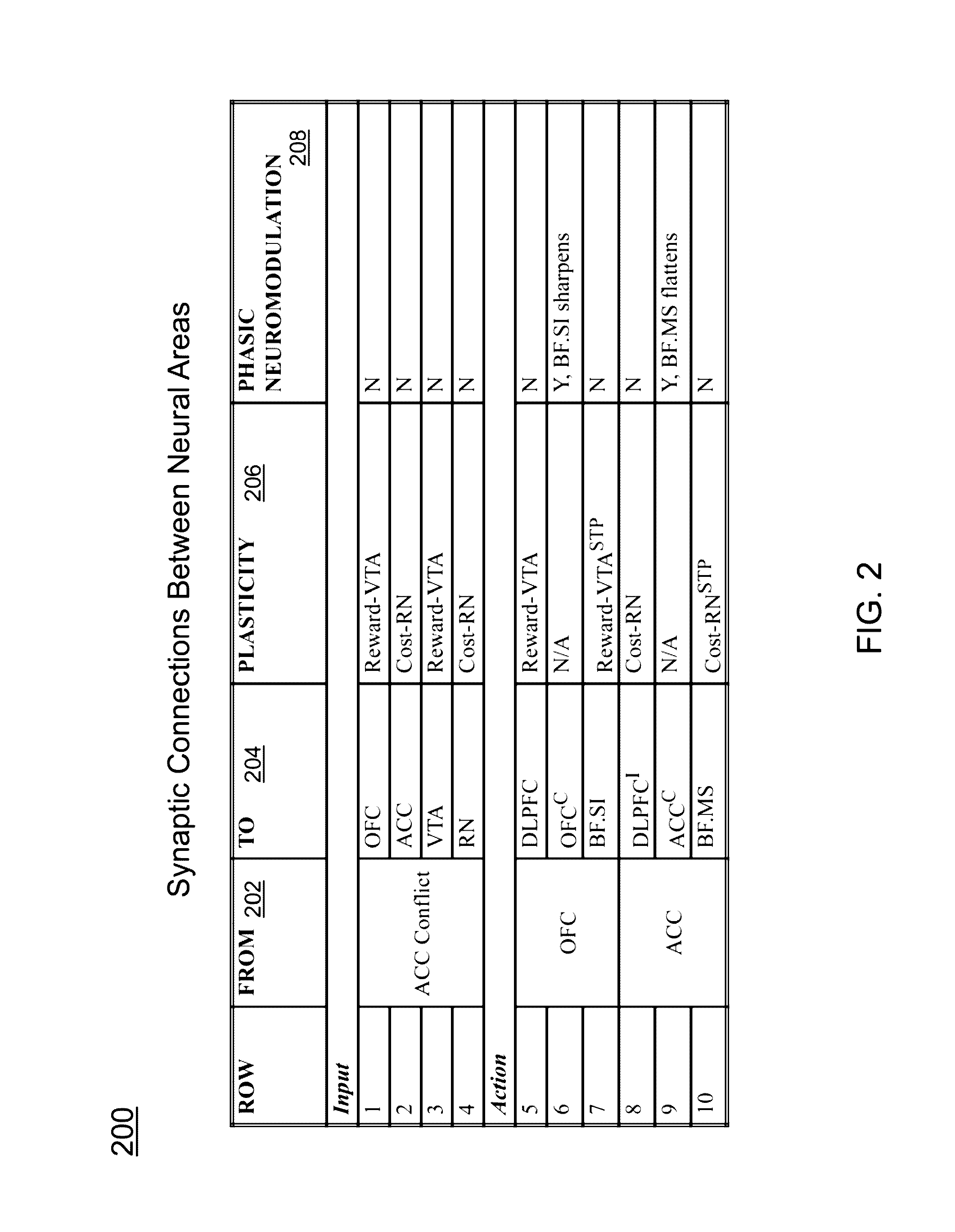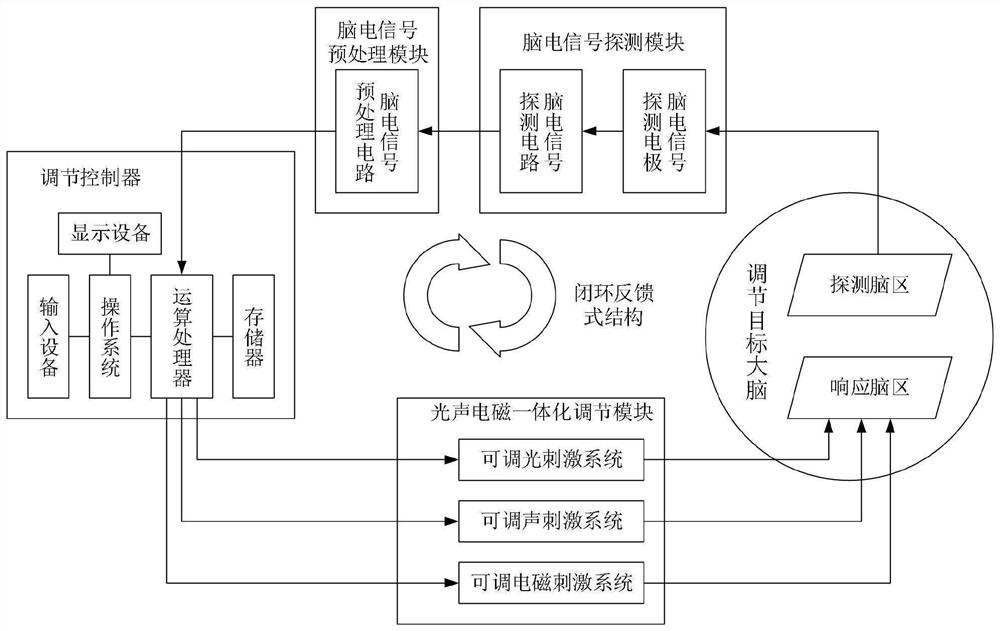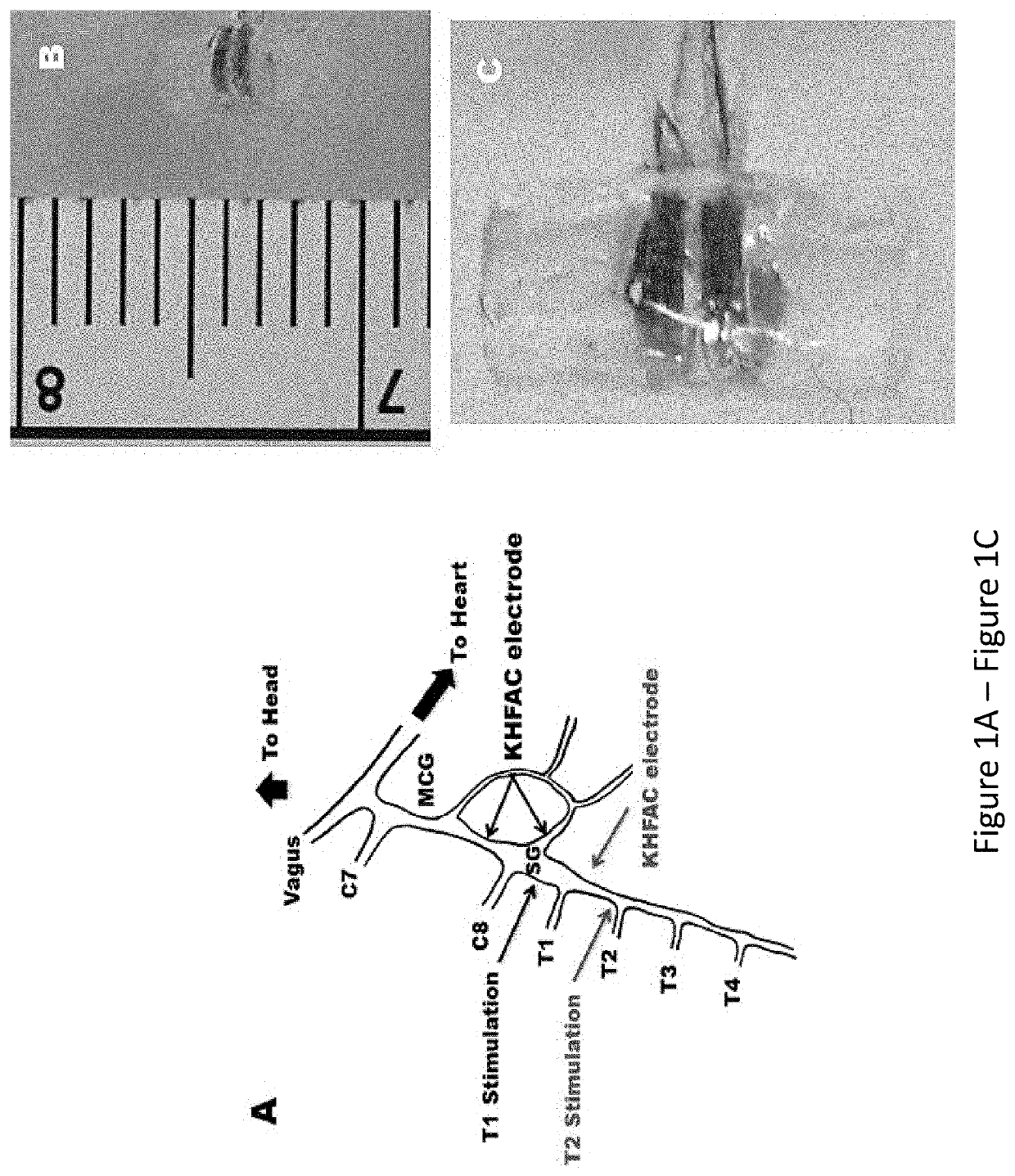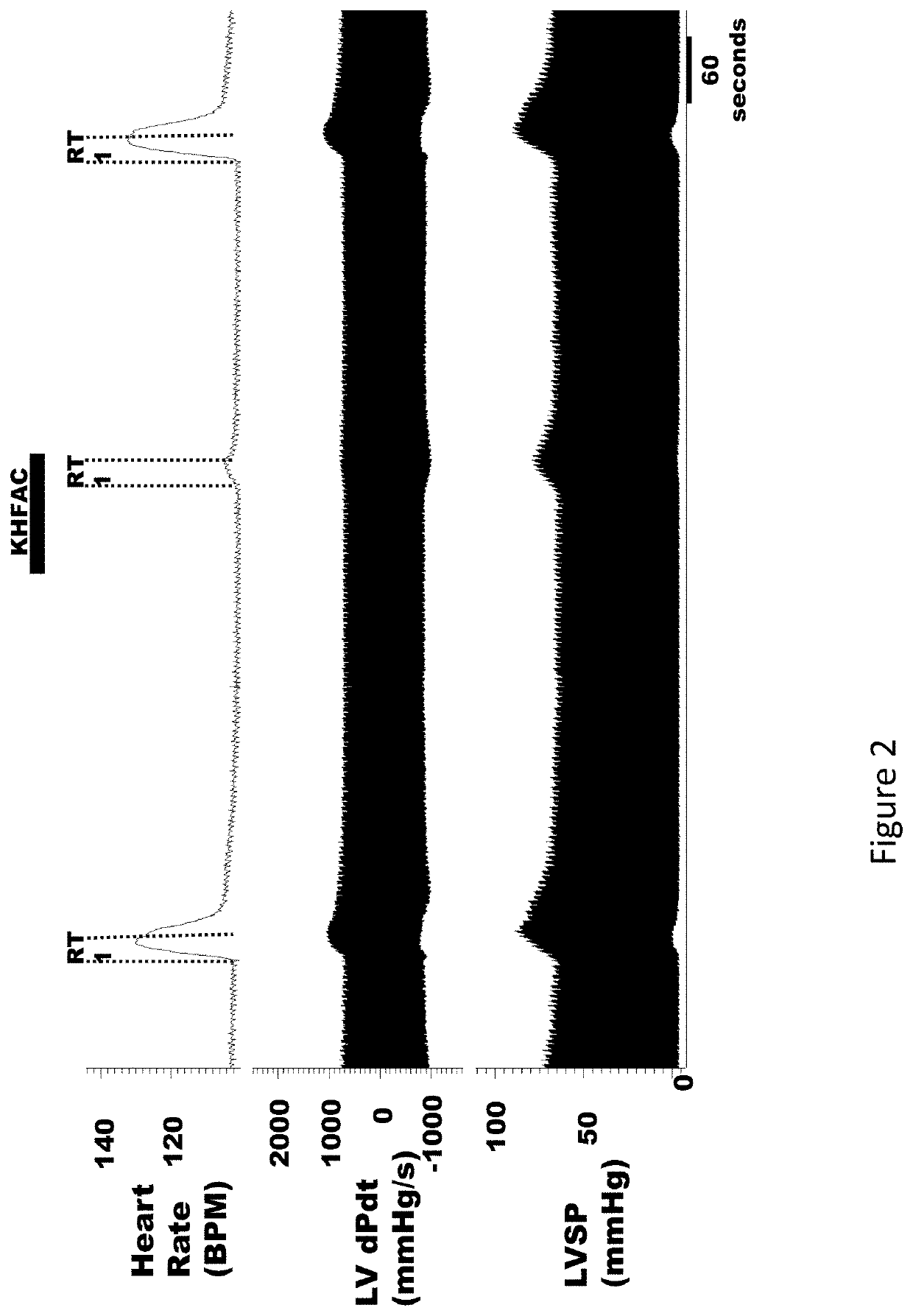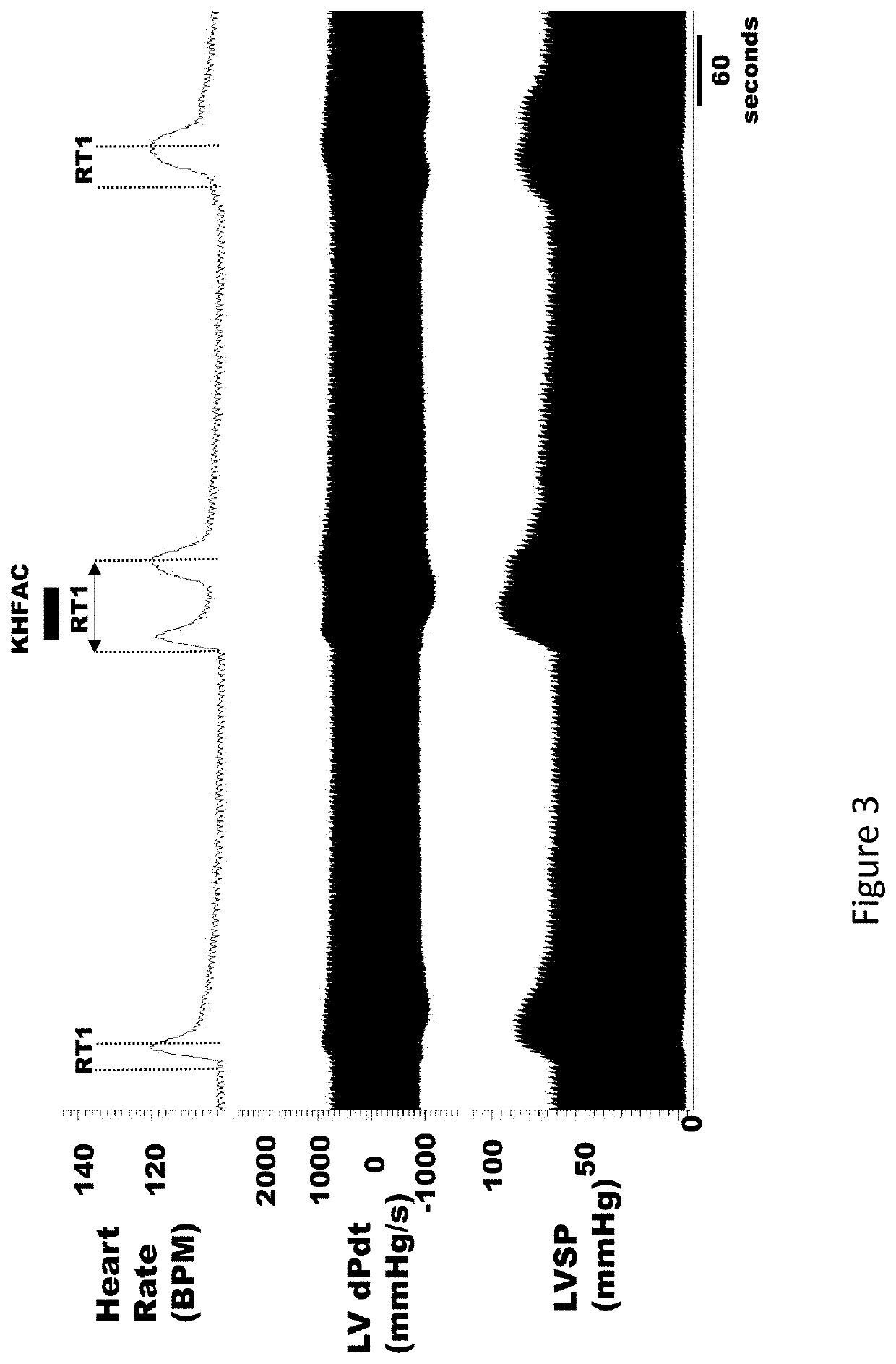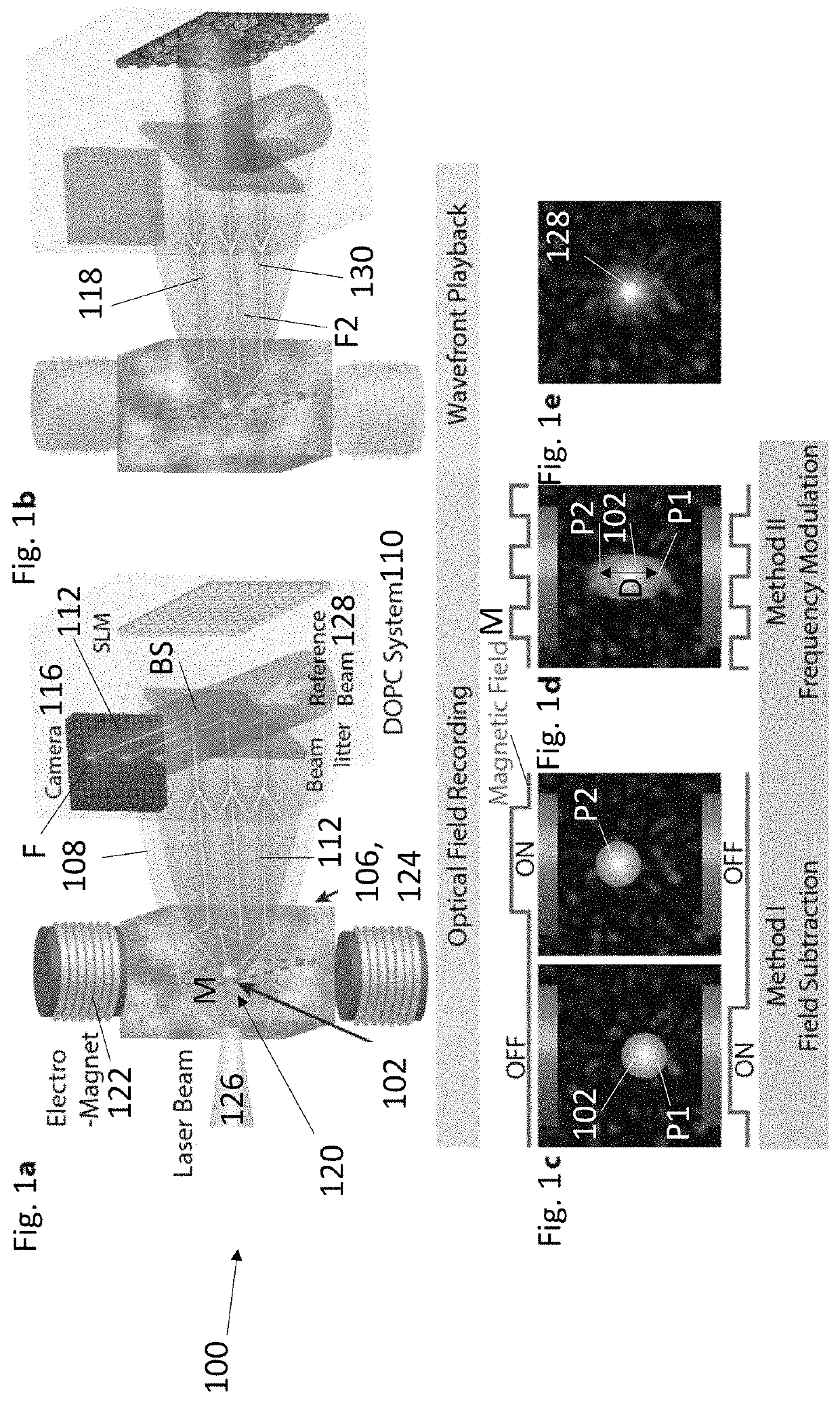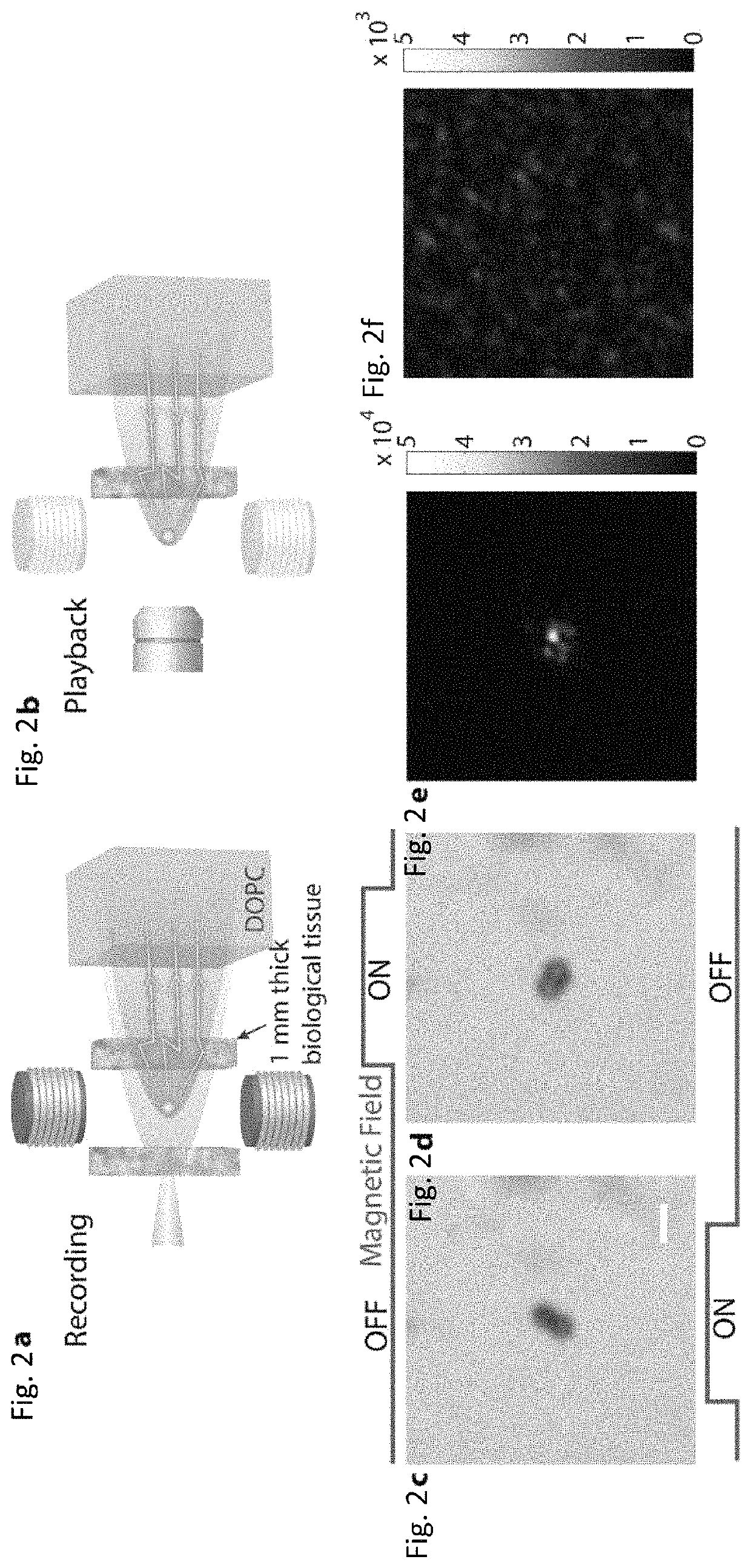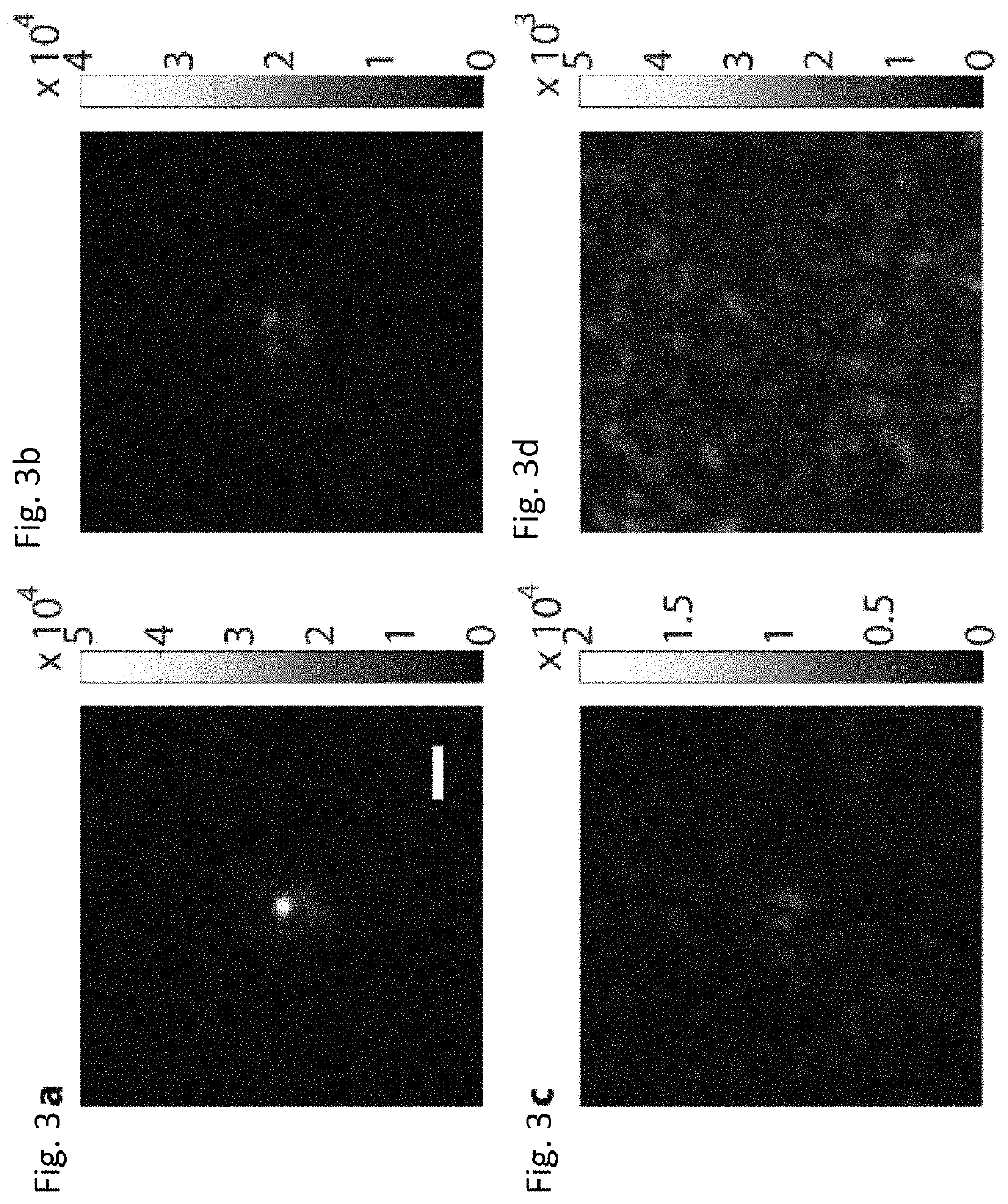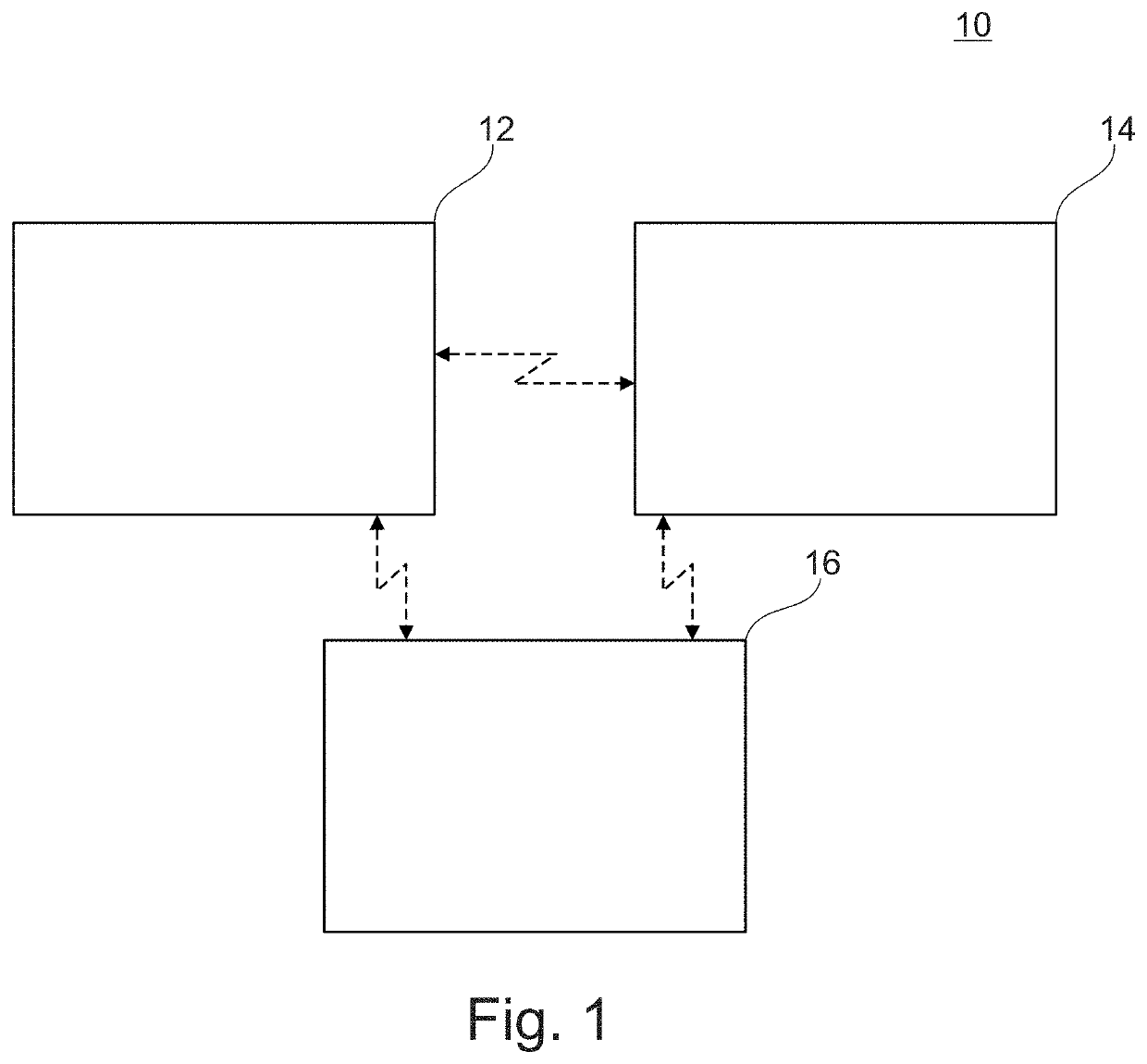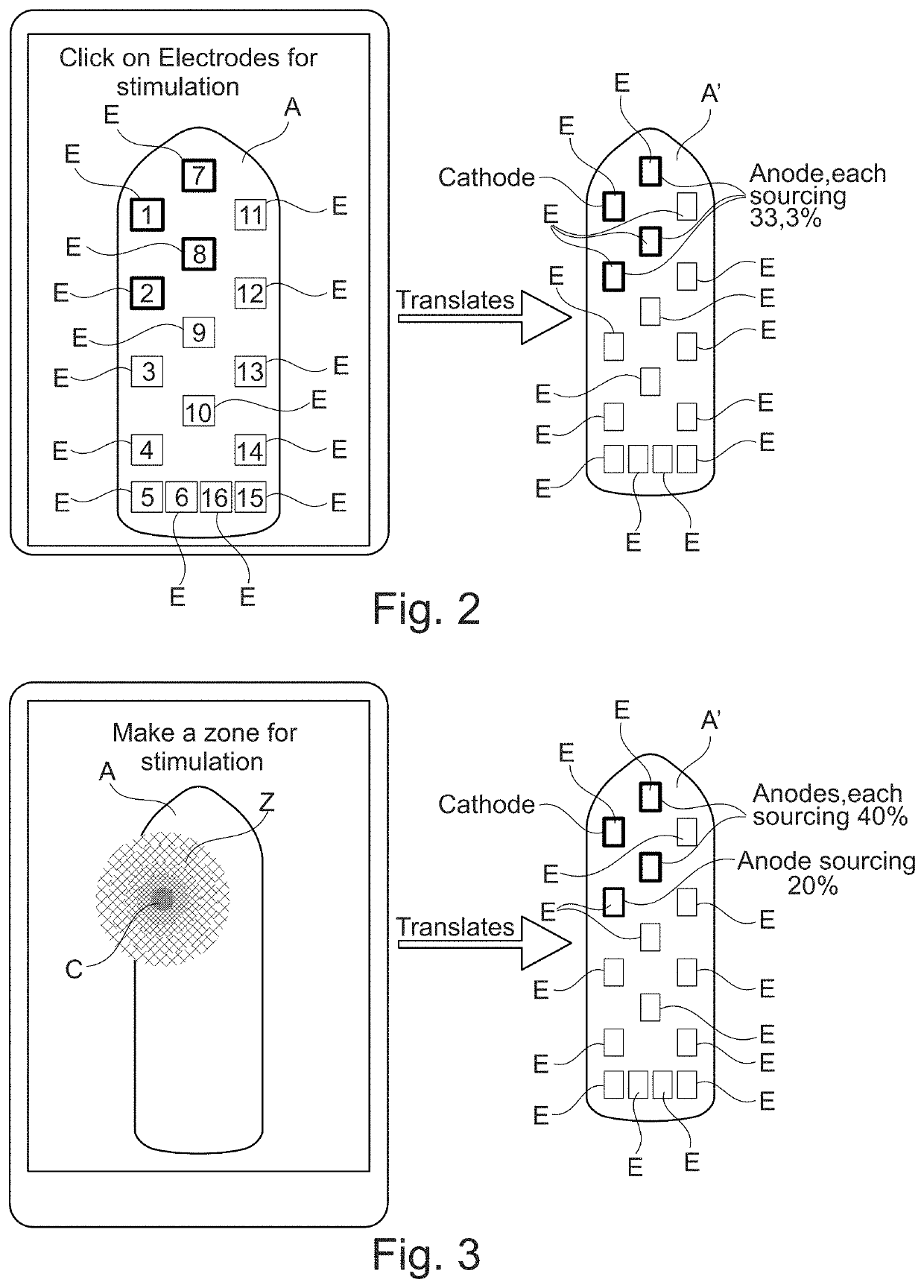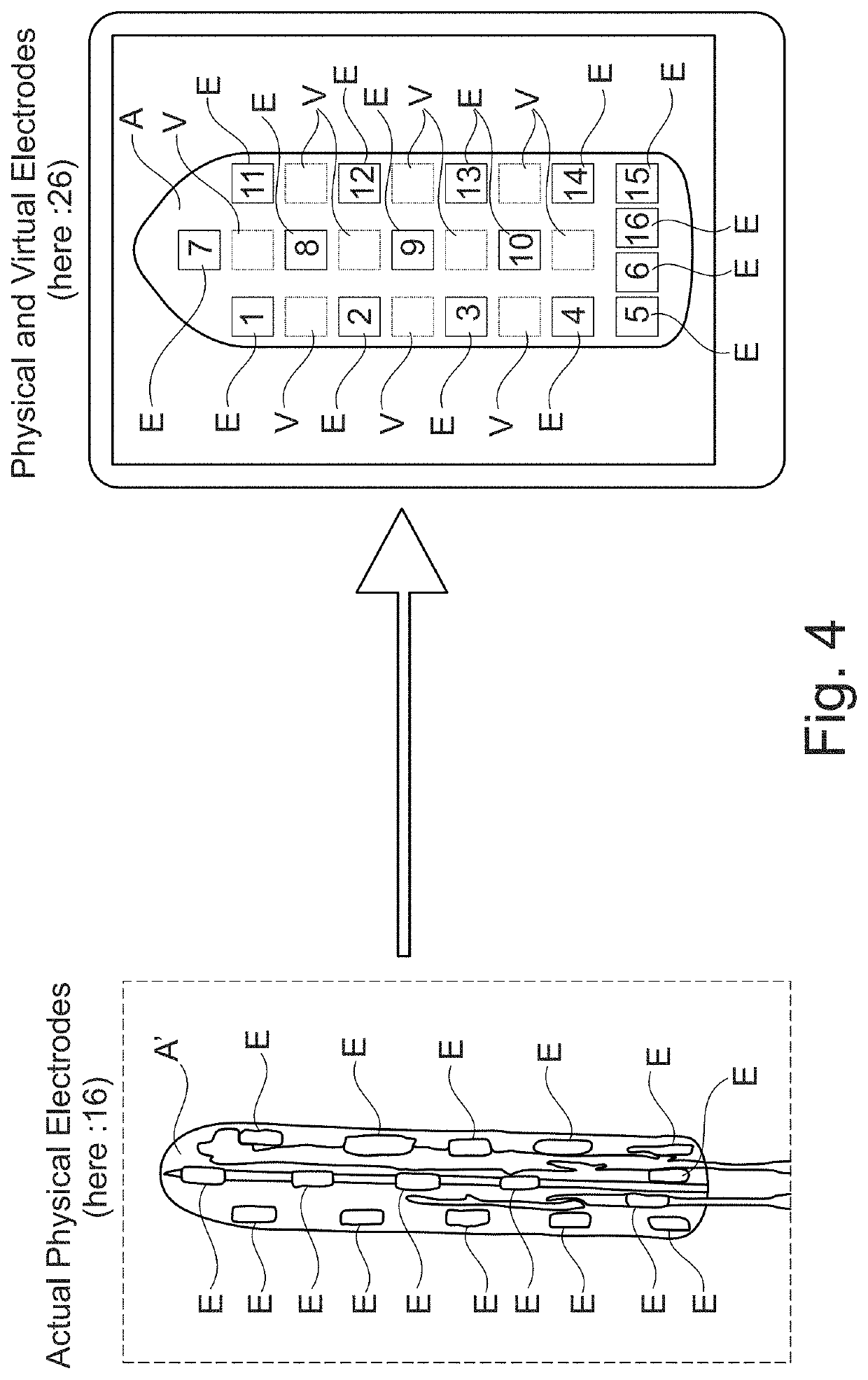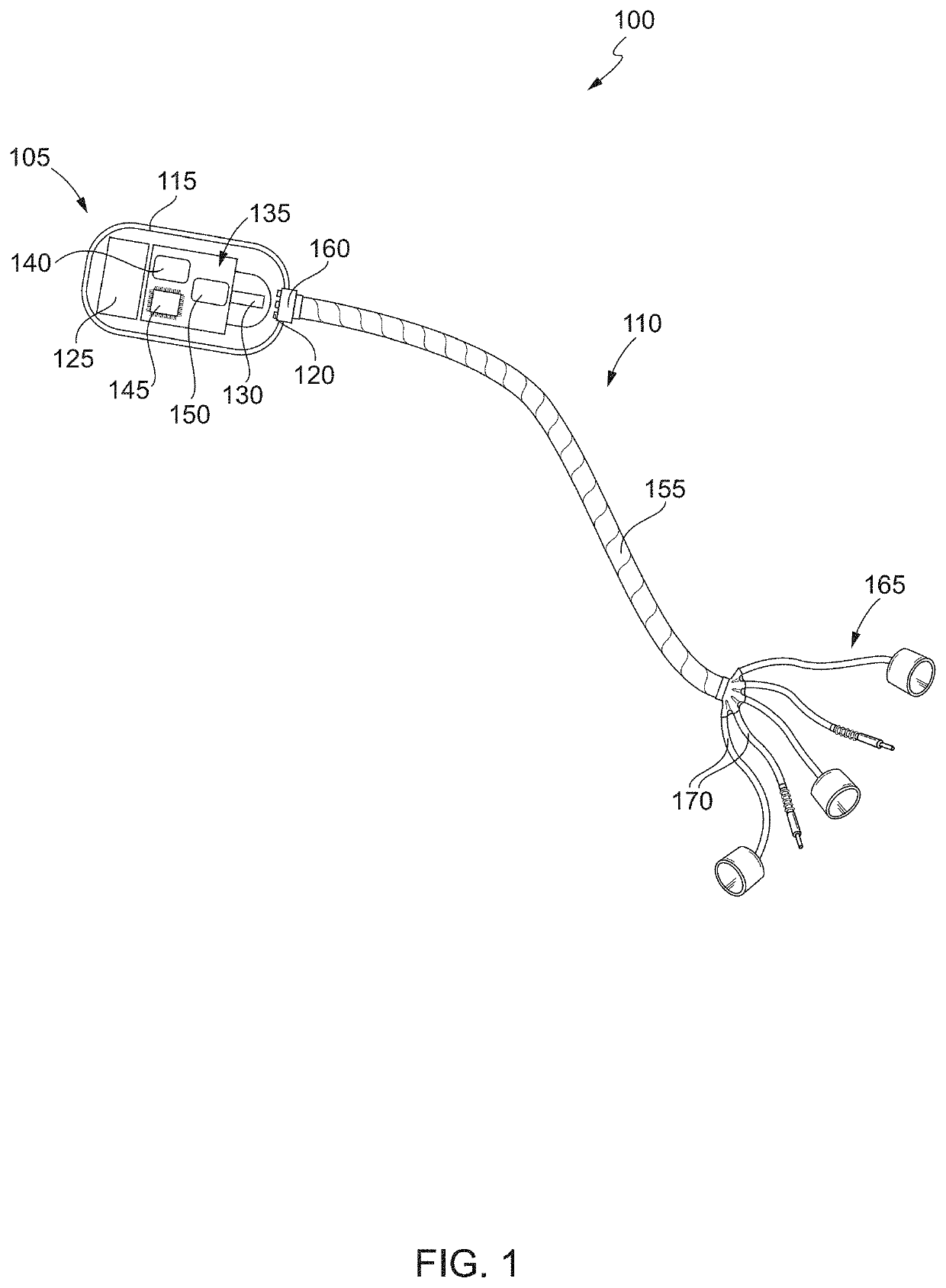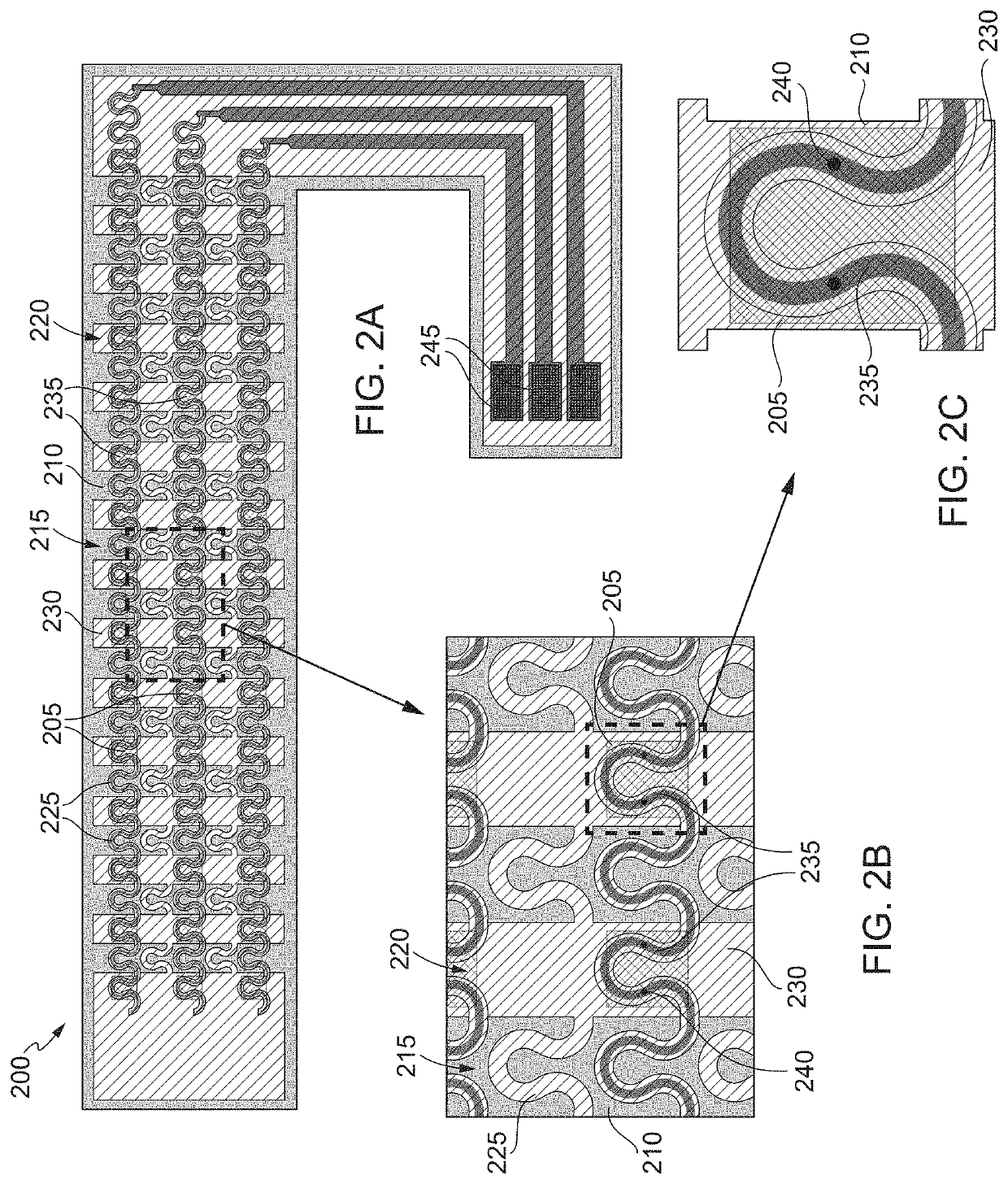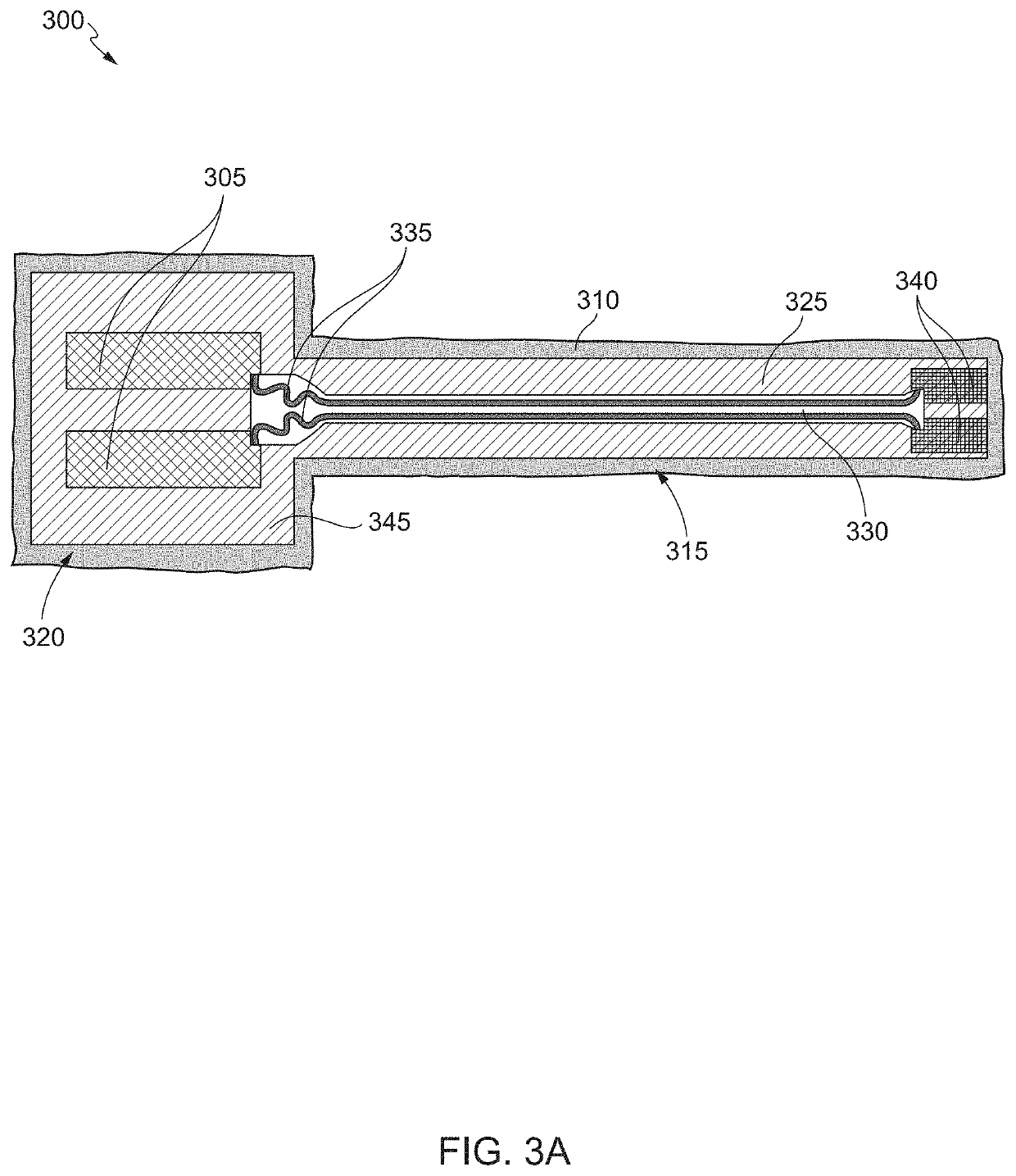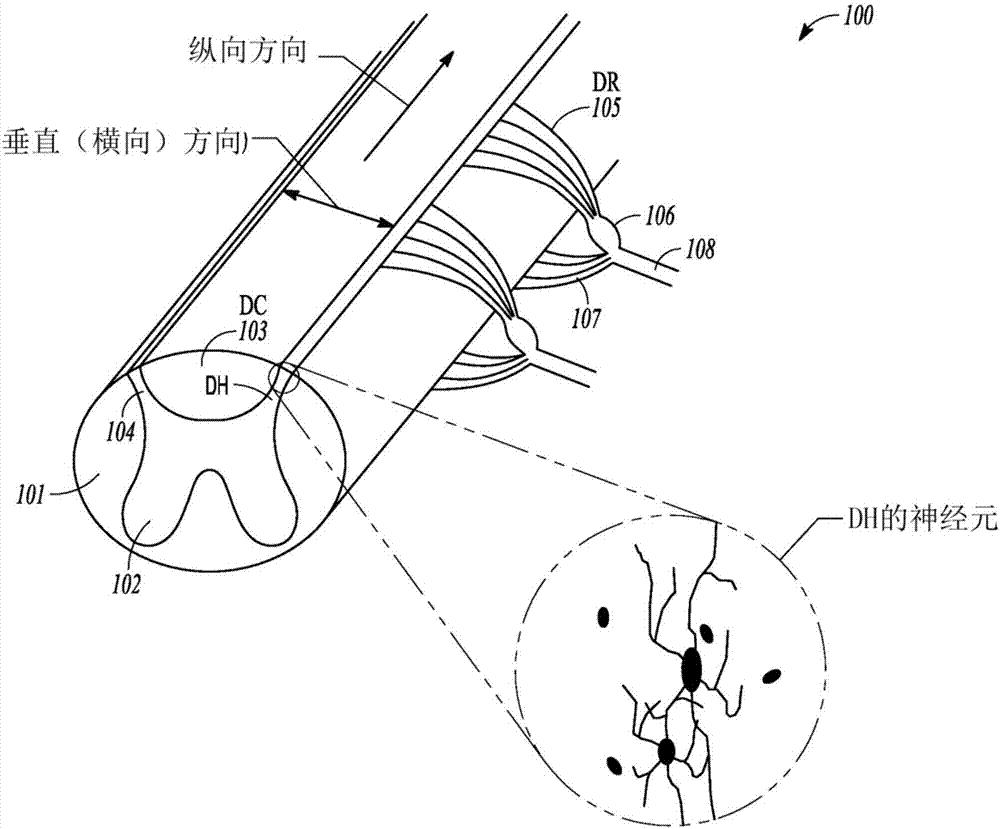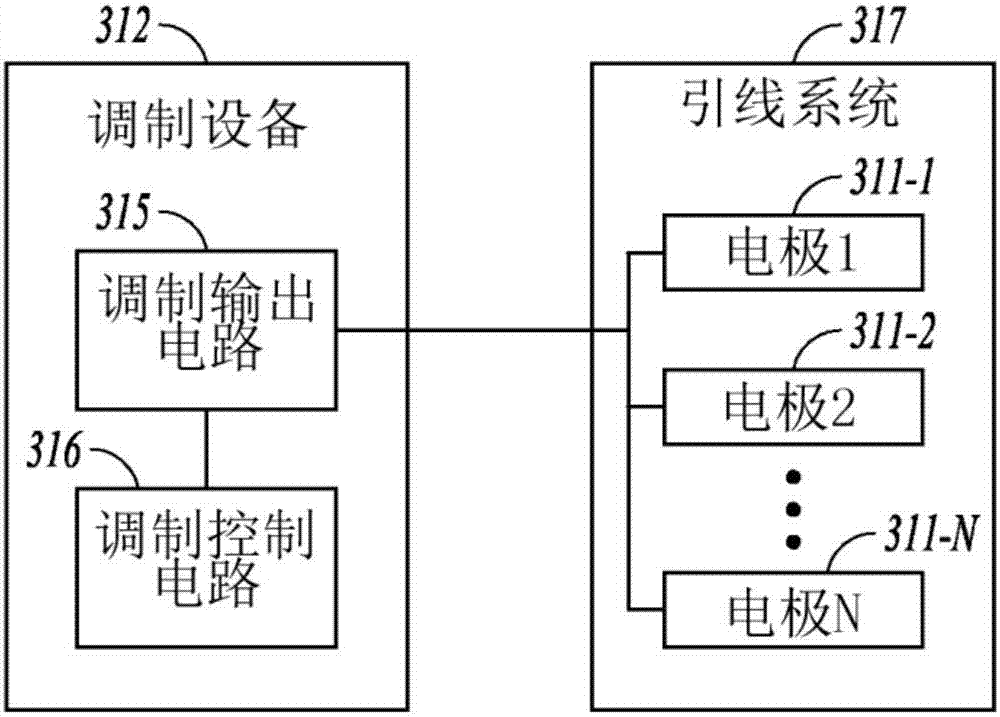Patents
Literature
Hiro is an intelligent assistant for R&D personnel, combined with Patent DNA, to facilitate innovative research.
35 results about "Neural modulation" patented technology
Efficacy Topic
Property
Owner
Technical Advancement
Application Domain
Technology Topic
Technology Field Word
Patent Country/Region
Patent Type
Patent Status
Application Year
Inventor
Neuromodulation is technology that acts directly upon nerves. It is the alteration—or modulation—of nerve activity by delivering electrical or pharmaceutical agents directly to a target area.
Apparatus and method for closed-loop intracranial stimulation for optimal control of neurological disease
InactiveUS20050021104A1Reducing time and number of interactionSatisfactory treatmentHead electrodesExternal electrodesDiseaseNervous system
A neurological control system for modulating activity of any component or structure comprising the entirety or portion of the nervous system, or any structure interfaced thereto, generally referred to herein as a “nervous system component.” The neurological control system generates neural modulation signals delivered to a nervous system component through one or more intracranial (IC) stimulating electrodes in accordance with treatment parameters. Such treatment parameters may be derived from a neural response to previously delivered neural modulation signals sensed by one or more sensors, each configured to sense a particular characteristic indicative of a neurological or psychiatric condition.
Owner:CYBERONICS INC
Apparatus and method for closed-loop intracranial stimulation for optimal control of neurological disease
InactiveUS20050021103A1Shorten the timeReduce the numberHead electrodesImplantable neurostimulatorsNervous systemIntracranial stimulation
A neurological control system for modulating activity of any component or structure comprising the entirety or portion of the nervous system, or any structure interfaced thereto, generally referred to herein as a “nervous system component.” The neurological control system generates neural modulation signals delivered to a nervous system component through one or more intracranial (IC) stimulating electrodes in accordance with treatment parameters. Such treatment parameters may be derived from a neural response to previously delivered neural modulation signals sensed by one or more sensors, each configured to sense a particular characteristic indicative of a neurological or psychiatric condition.
Owner:CYBERONICS INC
Apparatus and method for closed-loop intracranial stimulation for optimal control of neurological disease
InactiveUS7242984B2Reducing time and number of interactionSatisfactory treatmentHead electrodesExternal electrodesDiseaseIntracranial stimulation
A neurological control system for modulating activity of any component or structure comprising the entirety or portion of the nervous system, or any structure interfaced thereto, generally referred to herein as a “nervous system component.” The neurological control system generates neural modulation signals delivered to a nervous system component through one or more intracranial (IC) stimulating electrodes in accordance with treatment parameters. Such treatment parameters may be derived from a neural response to previously delivered neural modulation signals sensed by one or more sensors, each configured to sense a particular characteristic indicative of a neurological or psychiatric condition.
Owner:CYBERONICS INC
Apparatus and method for closed-loop intracranial stimulation for optimal control of neurological disease
InactiveUS20070073355A1Reducing time and number of interactionSatisfactory treatmentHead electrodesImplantable neurostimulatorsIntracranial stimulationNervous system
A neurological control system for modulating activity of any component or structure comprising the entirety or portion of the nervous system, or any structure interfaced thereto, generally referred to herein as a “nervous system component.” The neurological control system generates neural modulation signals delivered to a nervous system component through one or more intracranial (IC) stimulating electrodes in accordance with treatment parameters. Such treatment parameters may be derived from a neural response to previously delivered neural modulation signals sensed by one or more sensors, each configured to sense a particular characteristic indicative of a neurological or psychiatric condition.
Owner:CYBERONICS INC
Monitoring efficacy of neural modulation therapy
A neurological control system for modulating activity of any component or structure comprising the entirety or portion of the nervous system, or any structure interfaced thereto, generally referred to herein as a “nervous system component.” The neurological control system generates neural modulation signals delivered to a nervous system component through one or more neuromodulators to control neurological state and prevent neurological signs and symptoms. Such treatment parameters may be derived from a neural response to previously delivered neural modulation signals sensed by one or more sensors, each configured to sense a particular characteristic indicative of a neurological or psychiatric condition.
Owner:CYBERONICS INC
Methods and systems for predicting future symptomatology in a patient suffering from a neurological or psychiatric disorder
InactiveUS7277758B2Reducing time and number of interactionSatisfactory treatmentHead electrodesExternal electrodesDiseaseNervous system
A neurological control system for modulating activity of any component or structure comprising the entirety or portion of the nervous system, or any structure interfaced thereto, generally referred to herein as a “nervous system component.” The neurological control system generates neural modulation signals delivered to a nervous system component through one or more intracranial (IC) stimulating electrodes in accordance with treatment parameters. Such treatment parameters may be derived from a neural response to previously delivered neural modulation signals sensed by one or more sensors, each configured to sense a particular characteristic indicative of a neurological or psychiatric condition.
Owner:CYBERONICS INC
Apparatus and method for closed-loop intracranial stimulation for optimal control of neurological disease
InactiveUS20050119703A1Shorten the timeSatisfactory treatmentHead electrodesExternal electrodesNervous systemIntracranial stimulation
A neurological control system for modulating activity of any component or structure comprising the entirety or portion of the nervous system, or any structure interfaced thereto, generally referred to herein as a “nervous system component.” The neurological control system generates neural modulation signals delivered to a nervous system component through one or more intracranial (IC) stimulating electrodes in accordance with treatment parameters. Such treatment parameters may be derived from a neural response to previously delivered neural modulation signals sensed by one or more sensors, each configured to sense a particular characteristic indicative of a neurological or psychiatric condition.
Owner:CYBERONICS INC
Methods and systems for continuous EEG monitoring
InactiveUS20070161919A1Enhanced signalElectroencephalographyHead electrodesNervous systemNeurological signs
A neurological control system for modulating activity of any component or structure comprising the entirety or portion of the nervous system, or any structure interfaced thereto, generally referred to herein as a “nervous system component.” The neurological control system generates neural modulation signals delivered to a nervous system component through one or more neuromodulators to control neurological state and prevent neurological signs and symptoms. Such treatment parameters may be derived from a neural response to previously delivered neural modulation signals sensed by one or more sensors, each configured to sense a particular characteristic indicative of a neurological or psychiatric condition.
Owner:CYBERONICS INC
Methods and systems for determining subject-specific parameters for a neuromodulation therapy
A neurological control system for modulating activity of any component or structure comprising the entirety or portion of the nervous system, or any structure interfaced thereto, generally referred to herein as a “nervous system component.” The neurological control system generates neural modulation signals delivered to a nervous system component through one or more neuromodulators to control neurological state and prevent neurological signs and symptoms. Such treatment parameters may be derived from a neural response to previously delivered neural modulation signals sensed by one or more sensors, each configured to sense a particular characteristic indicative of a neurological or psychiatric condition.
Owner:CYBERONICS INC
Cloosed-loop feedback-driven neuromodulation
InactiveUS20050222626A1Shorten the timeSatisfactory treatmentHead electrodesAngle modulation detailsIntracranial stimulationNervous system
A neurological control system for modulating activity of any component or structure comprising the entirety or portion of the nervous system, or any structure interfaced thereto, generally referred to herein as a “nervous system component.” The neurological control system generates neural modulation signals delivered to a nervous system component through one or more neuromodulators, comprising intracranial (IC) stimulating electrodes and other actuators, in accordance with treatment parameters. Such treatment parameters may be derived from a neural response to previously delivered neural modulation signals sensed by one or more sensors, each configured to sense a particular characteristic indicative of a neurological or psychiatric condition.
Owner:CYBERONICS INC
Methods and systems for diagnosis and treatment of neural diseases and disorders
InactiveUS20140303424A1Shorten the timeReduce the numberMedical simulationUltrasonic/sonic/infrasonic diagnosticsDiseaseNervous system
The invention disclosed herein relates to methods and systems for modulating activity of a nervous system component. Neural pattern recognition is used to identify a neurological and / or psychiatric disease or disorder based on input generated by electric signals indicative of the subject's brain activity. In an embodiment, the method comprises receiving an input from one or more sensors, each sensor configured to sense a particular characteristic indicative of a neurological or psychiatric condition or state; developing treatment parameters based on the input received from the one or more sensors; and generating neural modulation signals for delivery to a nervous system component through one or more output devices in accordance with one or more developed treatment parameters.
Owner:GLASS IAIN
Devices and methods for treating urological disorders
Some implementations provide a method for treating urological disorders in a patient, the method including: placing an introducer into a patient's body through an incision site on the patient's body, the patient suffering from an urological disorder; placing an implantable wireless device into an inner lumen of the introducer, the implantable wireless device suitable to fit into the inner lumen and configured to receive electromagnetic energy non-inductively from a source located outside the patient's body; through the inner lumen of the introducer, positioning the implantable wireless device adjacent to or near one or more excitable tissue in the patient, the one or more excitable tissue regulating a nerve activity associated with the urological disorder; and causing neural modulation of the one or more excitable tissue through one or more electrodes on the implantable wireless device.
Owner:CURONIX LLC
Closed-loop feedback-driven sympathetic neuromodulation for affect control
ActiveUS9345880B1Reducing time and number of interactionSatisfactory treatmentHead electrodesCatheterNervous systemClosed loop feedback
A neurological control system for modulating activity of any component or structure comprising the entirety or portion of the nervous system, or any structure interfaced thereto, generally referred to herein as a “nervous system component.” The neurological control system generates neural modulation signals delivered to a nervous system component through one or more neuromodulators, comprising intracranial (IC) and peripheral stimulating electrodes and other actuators, in accordance with treatment parameters. The neurological control system may directly or indirectly control a portion of the autonomic nervous system, including the sympathetic and parasympathetic nervous system. Such treatment parameters may be derived from a neural or physiological response to previously delivered neural modulation signals sensed by one or more sensors, each configured to sense a particular characteristic indicative of a neurological or psychiatric condition.
Owner:DILORENZO DANIEL J
Decorin and Gliosis and Related System and Method
InactiveUS20110195106A1Decrease gliosis and other tissue reactionIncreased longevitySpinal electrodesHead electrodesDiseaseImplanted device
Brain stimulators are used to treat a variety of disorders, and their range of uses continues expand. However, one problem with long-term stimulation of neural tissue is the need to increase the stimulation parameters to continue to maintain the same clinical effect. This is thought to be due to local tissue reaction to the implanted foreign body. Because the implanted stimulator functions by means of contact with functional cells within the tissue, prevention of tissue reaction to the stimulator would make a significant improvement to the device's performance and longevity.It is proposed that coating a neural stimulator device with decorin, and / or homologous molecules of functional or structural likeness to decorin, can function to decrease gliosis and other local tissue reaction in neural tissue. The present invention provides a novel system and method of device design and utilization that can prevent and suppress known associated tissue reactions associated with neural modulation of tissue with an implanted device, thereby improving the device's performance and longevity.
Owner:MCMURTREY RICHARD JAY
Optical interfaces and methods for rapid volumetric neural modulation and sensing
The present disclosure provides methods and systems for modulation and imaging of tissue. Various embodiments relate to optical interfaces and methods for rapid volumetric neural sensing and modulation, using structured illumination and
Owner:UNIV OF COLORADO THE REGENTS OF
Robot control method and equipment
ActiveCN111645076AAchieve dynamic balanceFast learning convergenceProgramme-controlled manipulatorPrimateEngineering
The purpose of the application is to provide a robot control method and equipment. The exploration speed is dynamically adjusted by simulating an anterior cingulate cortex nerve adjustment mechanism in the brain physiological mechanism of primates, and the exploration and utilization degree is adjusted in real time according to the environment, so that the dynamic balance between the utilization environment and the exploration environment of the robot is realized, the learning convergence speed in the behavior decision process of the robot is improved, and a better global solution is obtained.
Owner:ZHENGZHOU UNIV
Method, system and apparatus for remote neural modulation brain stimulation and feedback control
ActiveUS20140277257A1Convenient treatmentSignificant clinical effectHead electrodesSensorsEngineeringFeedback control
A method, system and apparatus is presented for a wireless neural modulation feedback control system as it relates to an implantable medical device comprised of a radio frequency (RF) receiver circuit, one or more dipole or patch antenna(s), one or more electrode leads connected to at least one dipole or patch antenna(s), and at least one microelectronic neural modulation circuit, and an external or internally implanted RF device to neurally modulate brain tissue in order to treat medical conditions that can be mediated by neuronal activation or inhibition, such as Parkinson's, Alzheimer's, epilepsy, other motor or mood based disorders, and / or pain. The implantable receiver captures energy radiated by the RF transmitter unit and converts this energy to an electrical waveform by the implanted neural modulation circuit to deliver energy that can be utilized by the attached electrode pads in order to activate targeted neurons in the brain.
Owner:CURONIX LLC
Superposition enhancement neural modulation method and device based on music and energy wave function
PendingCN113171534AEnhanced neuromodulatory effectsElectrophonic musical instrumentsSleep inducing/ending devicesSpinal cordSenile dementia
The invention provides a superposition enhancement neural modulation method and a device based on music and an energy wave function. The method comprises the following steps: generating a music stimulation sequence; analyzing the music stimulation sequence to obtain a stimulation signal sequence corresponding to stimulation intensity and stimulation time; and performing stimulation output by a stimulation controller according to the stimulation signal sequence. According to the invention, the stimulation timestamp and the intensity of the stimulation controller are recoded by using the inherent rhythm and the energy wave function of the music to induce the superposition enhanced neural modulation effect, so that the method can be applied to various treatment and evaluation scenes, for example, post-stroke limb dyskinesia, cognitive impairment, aphasia, senile dementia, Parkinson's disease, spinal cord neural network excitability, disturbance of consciousness and the like.
Owner:浙江柔灵科技有限公司
Application of neuregulin 1 and acceptor thereof as target for preparing and screening anti-epileptic drugs
The invention relates to an application of neuregulin 1 (NRG1) and acceptor thereof as a target for preparing and screening anti-epileptic drugs. The application of NRG1 for inhibiting the development and progression of epilepsy by activating leukemia virus oncogene homolog 4 (ErbB4) of bird red blood cells in inhibitory neurons in the brain is proposed for the first time; and novel target is provided for effective prevention, control or treatment of the epilepsy.
Owner:SHANGHAI INST OF BIOLOGICAL SCI CHINESE ACAD OF SCI
Systems and methods for reducing noise caused by stimulation artifacts in neural signals received by neuro-modulation devices
System and methods that cancel artifacts of stimulation signals from neural signals are disclosed. In several embodiments, the systems and methods determine a threshold value for the neural signal inthe absence of artifacts. The threshold value can then be used to detect an artifact in received neural signals. In a number of embodiments, a template can be used to cancel an artifact from a neuralsignal in response to the neural signal being greater than the threshold value.
Owner:RGT UNIV OF CALIFORNIA
Selective electrical modulation of neural populations
Methods of providing electrical neural modulation to a patient's brain are disclosed herein. The methods involve differentially modulating two or more target regions of the brain. For example, a first target region may be provided with an electrical neural modulation signal that activates that target region while a second target region is provided with an electrical neural modulation signal that suppresses or deactivates that target region. As the implantable pulse generators (IPGs) described herein include independent current sources, such differential modulation can be provided with a single IPG.
Owner:BOSTON SCI NEUROMODULATION CORP
Focusing light inside scattering media with magnetic particle guided wavefront shaping
ActiveUS20190064736A1Scattering properties measurementsActive addressable light modulatorPhotodynamic therapyWavefront
A magnetic field controlled guidestar for focusing light deep inside scattering media using optical phase conjugation. Compared with the optical and ultrasonic field, the magnetic field has an exceptional penetration depth. The magnetic particle guidestar has a high light-tagging efficiency, good biocompatibility, and a small diameter which enables a sharp and bright focusing deep inside biological tissue. This new method can benefit a wide range of biomedical applications including deep-tissue imaging, neural modulation, and targeted photothermal and photodynamic therapies.
Owner:CALIFORNIA INST OF TECH +1
Method, system and apparatus for remote neural modulation brain stimulation and feedback control
ActiveUS9433789B2Convenient treatmentMinimize occurrenceElectroencephalographyHead electrodesEngineeringFeedback control
A method, system and apparatus is presented for a wireless neural modulation feedback control system as it relates to an implantable medical device comprised of a radio frequency (RF) receiver circuit, one or more dipole or patch antenna(s), one or more electrode leads connected to at least one dipole or patch antenna(s), and at least one microelectronic neural modulation circuit, and an external or internally implanted RF device to neurally modulate brain tissue in order to treat medical conditions that can be mediated by neuronal activation or inhibition, such as Parkinson's, Alzheimer's, epilepsy, other motor or mood based disorders, and / or pain. The implantable receiver captures energy radiated by the RF transmitter unit and converts this energy to an electrical waveform by the implanted neural modulation circuit to deliver energy that can be utilized by the attached electrode pads in order to activate targeted neurons in the brain.
Owner:CURONIX LLC
Method and apparatus for an action selection system based on a combination of neuromodulatory and prefrontal cortex area models
Described is a system for action selection based on a combination of neuromodulatory and prefrontal cortex models. The system inputs group attack probability estimates for multiple groups in a prefrontal cortex (PFC) input area of a model instance. The system encodes a dispersion of the group attack probability estimates in an anterior cingulated cortex (ACC) conflict input area of the model instance, resulting in activation of the ACC conflict input area. The activation is propagated to an action area and a neuromodulatory area of the model instance. An action strategy is selected in the action area. The action strategy is implemented, and a reward and a cost is generated for the implemented action strategy. An assessment of possible action strategies is updated based on the generated reward and cost. Each model instance modulates its subsequent action strategy selection based on the updated assessment of the possible action strategies.
Owner:HRL LAB
Closed-loop feedback type opto-acoustic-electromagnetic integrated brain work rhythm adjusting device
PendingCN113476060AEasy to use for a long timeReal-time work rhythm adjustmentMedical devicesDiagnostic recording/measuringPhysical medicine and rehabilitationClosed loop feedback
The invention discloses a closed-loop feedback type opto-acoustic-electromagnetic integrated brain work rhythm adjusting device. The closed-loop feedback type opto-acoustic-electromagnetic integrated brain work rhythm adjusting device comprises an electroencephalogram signal detection module, an electroencephalogram signal preprocessing module, an adjusting controller and an opto-acoustic-electromagnetic integrated adjusting module, and the closed-loop feedback type opto-acoustic-electromagnetic integrated brain work rhythm adjusting device, a detection brain area and a response brain area jointly form a closed-loop feedback type structure. Signals collected by the electroencephalogram signal detection module from the detection brain area are preprocessed by the electroencephalogram signal preprocessing module and then transmitted into the adjusting controller to calculate the difference value between the signals and a reference value, an opto-acoustic-electromagnetic integrated nerve adjusting signal is generated, the opto-acoustic-electromagnetic integrated adjusting module is controlled to adjust the a response brain area of a target brain, therefore, the working rhythm of the target brain reaches a reference value. According to the device, working rhythm adjustment gain far beyond single stimulation can be provided, a plurality of working rhythms of the brain can be adjusted with different gains so as to deal with complex nerve dysfunction, and the closed-loop feedback structure is adopted, so that long-term use of a patient in various scenes is facilitated.
Owner:南京曦光信息科技研究院有限公司
Neural modulation of autonomic nervous system to alter memory and plasticity of the autonomic network
ActiveUS20200206510A1Change plasticityImplantable neurostimulatorsArtificial respirationNervous systemCell biology
The present invention provides systems and methods for modulating the plasticity and / or memory of the autonomic nervous system.
Owner:RGT UNIV OF CALIFORNIA
Focusing light inside scattering media with magnetic particle guided wavefront shaping
ActiveUS11156960B2Scattering properties measurementsActive addressable light modulatorBiocompatibilityDeep tissue imaging
A magnetic field controlled guidestar for focusing light deep inside scattering media using optical phase conjugation. Compared with the optical and ultrasonic field, the magnetic field has an exceptional penetration depth. The magnetic particle guidestar has a high light-tagging efficiency, good biocompatibility, and a small diameter which enables a sharp and bright focusing deep inside biological tissue. This new method can benefit a wide range of biomedical applications including deep-tissue imaging, neural modulation, and targeted photothermal and photodynamic therapies.
Owner:CALIFORNIA INST OF TECH +1
Planning and/or control system for a neuromodulation system
PendingUS20210146140A1Reduce stimulus intensityIncrease intensityPhysical therapies and activitiesSpinal electrodesGraphicsControl system
A planning and / or control system for providing stimulation is disclosed. The system can include a graphical presentation module configured and arranged for providing graphical information about an electrode array comprising multiple electrodes and / or an implantation side for the electrode array comprising at least one target area, a selection module configured and arranged for determining a stimulation zone and / or a stimulation direction on the electrode array comprising at least one electrode and / or for individually selecting at least one electrode and / or for selecting at least one target area, and a calculation module configured and arranged for determining a contribution of currents provided by electrodes of the stimulation zone and / or stimulation direction on the electrode array and / or the at least one electrode selected and / or to the at least one target area selected.
Owner:ONWARD MEDICAL NV
Thin-film electrode assembly with soft overmold
ActiveUS20200030599A1Spinal electrodesCircuit bendability/stretchabilityThin film electrodeThin membrane
The present disclosure relates to implantable neuromodulation devices and methods of fabrication, and in particular to a thin-film electrode assemblies and methods of fabricating the thin-film electrode assembly to include a soft overmold. Particularly, aspects of the present invention are directed to a thin-film electrode assembly that includes an overmold and a supporting structure formed within a portion of the overmold. The overmold includes a first polymer and the supporting structure includes a second polymer, different from the first polymer. The thin-film electrode assembly also includes a wire formed within a portion of the supporting structure, and an electrode formed on a top surface of the supporting structure and in electrical contact with the wire.
Owner:VERILY LIFE SCI LLC
System for determining neurological position of epidural leads
A system may include an electrode arrangement configured for implantation in an epidural space, a neural modulation generator configured to use electrodes in the electrode arrangement to generate modulation fields, at least one storage and a controller operably connected to the neural modulation generator. The storage(s) may be configured to store supra-perception threshold dorsal root modulation field parameter data and therapeutic modulation field parameter data, where the therapeutic modulation field parameter data may be different than the supra-perception threshold dorsal root modulation field parameter data. The system may be configured to deliver a placement modulation field from the electrode arrangement in the epidural space to the dorsal roots using the supra-perception threshold dorsal root modulation field parameter data, and deliver a therapeutic modulation field from the electrode arrangement placed in the desired position within the epidural space to a therapeutic neural target using the therapeutic modulation field parameter data.
Owner:BOSTON SCI NEUROMODULATION CORP
Features
- R&D
- Intellectual Property
- Life Sciences
- Materials
- Tech Scout
Why Patsnap Eureka
- Unparalleled Data Quality
- Higher Quality Content
- 60% Fewer Hallucinations
Social media
Patsnap Eureka Blog
Learn More Browse by: Latest US Patents, China's latest patents, Technical Efficacy Thesaurus, Application Domain, Technology Topic, Popular Technical Reports.
© 2025 PatSnap. All rights reserved.Legal|Privacy policy|Modern Slavery Act Transparency Statement|Sitemap|About US| Contact US: help@patsnap.com
